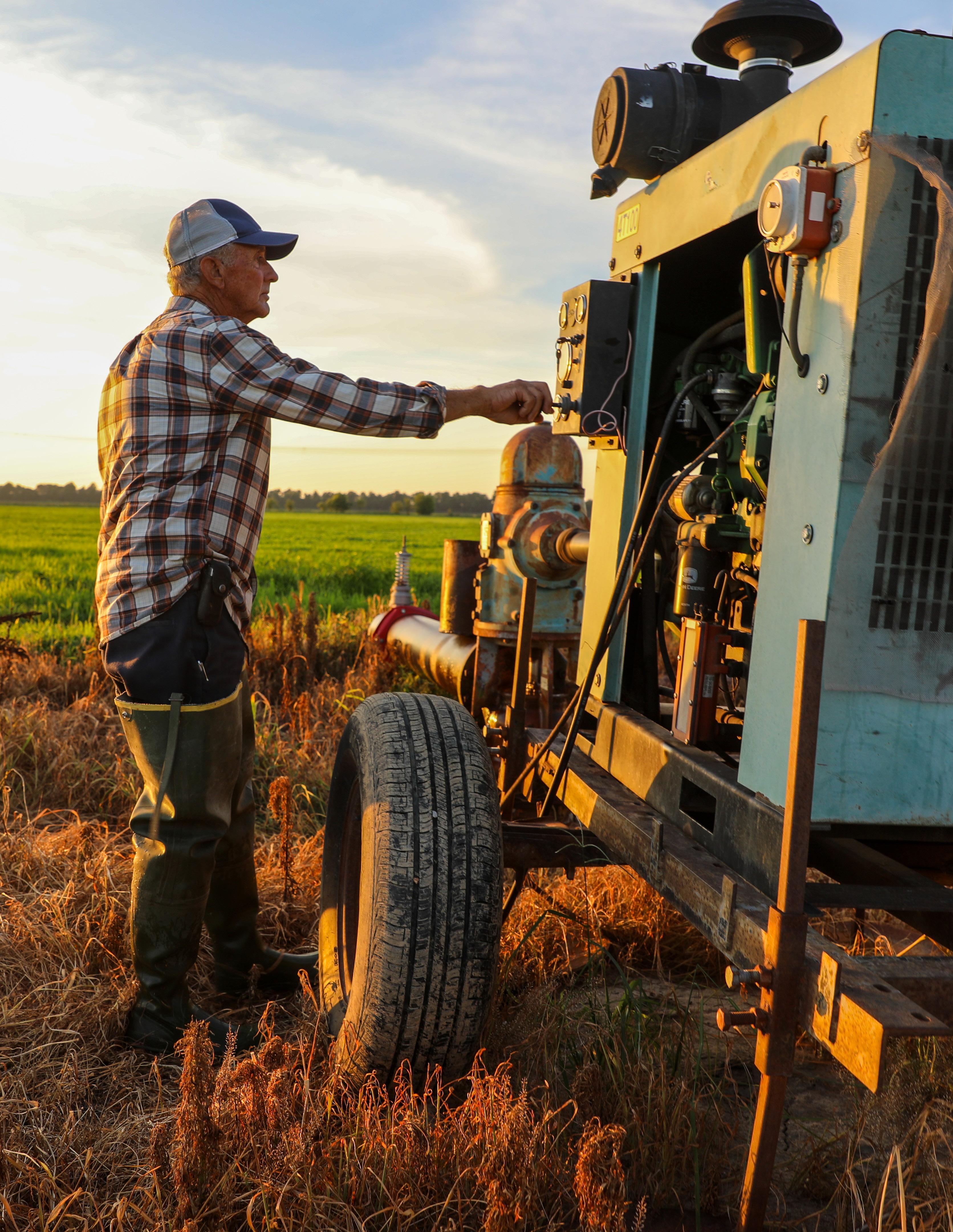

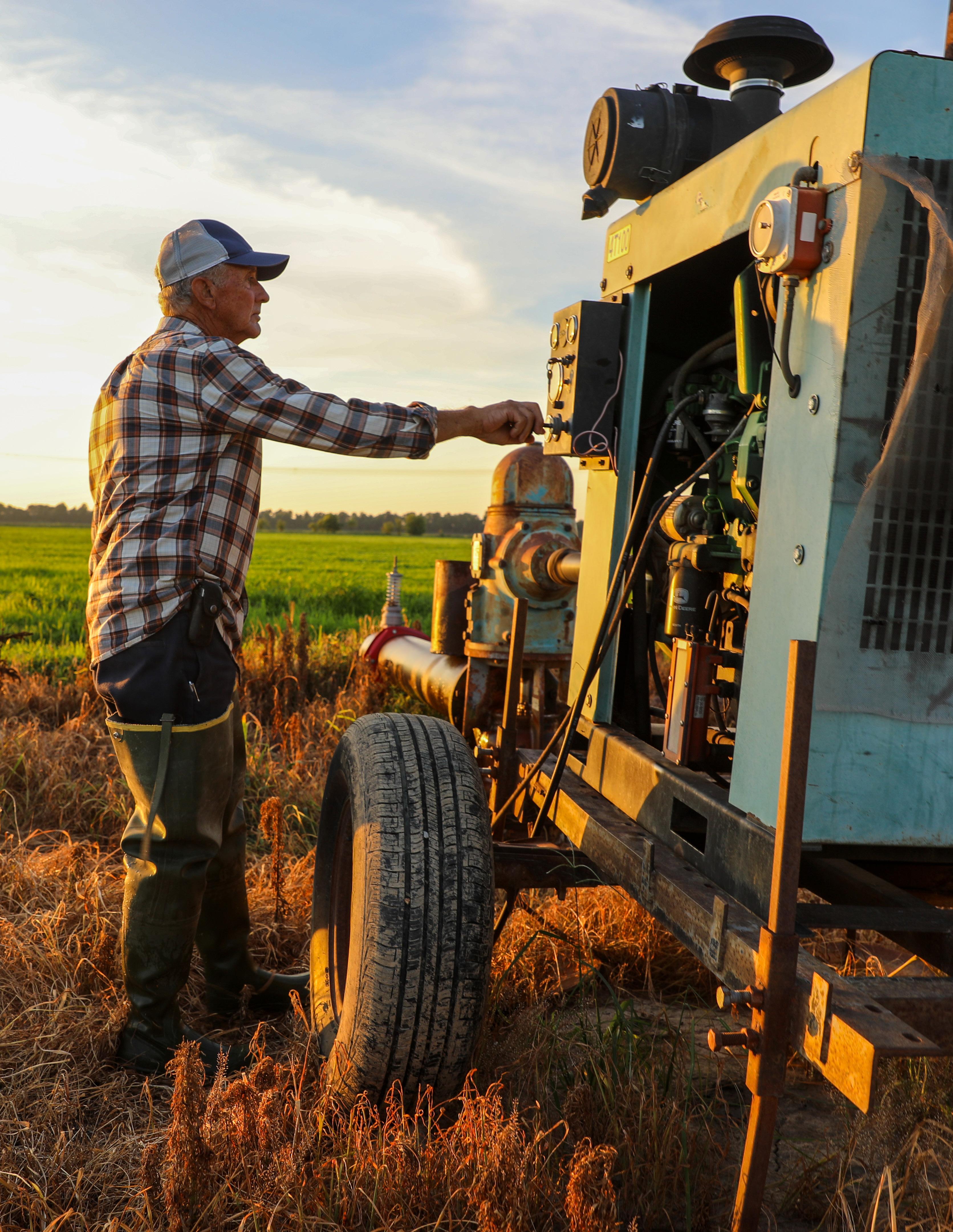








Thank you to the board of directors, the membership, and the employees for entrusting me to lead this amazing cooperative. It is the greatest honor of my nearly 30-year career in the rice industry.
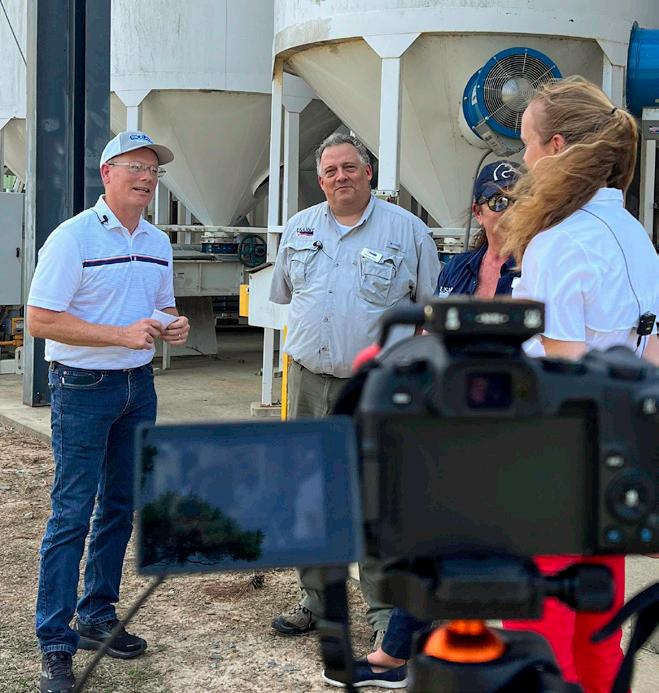
With my appointment in December and a refocused leadership team placed in January, we took the organization’s reins, but the die was cast for a difficult FY’24 for the Rice Division. Previous management’s large medium-grain position weighed heavily on the Rice Division, along with high labor costs, input costs, interest expense, and a low-quality rice crop. The team worked extremely hard to identify the major issues, made critical adjustments to mitigate the losses, and put the Rice Division on the right track for the future.
The Soybean Division had its third consecutive year of nearly record profits, led by the crush operation. The Riceland Operations Team did a great job running the facility to produce meal and oil for our customers while overcoming issues related to an aging facility. The Sales Team performed at a high level while battling falling prices for soybean oil due to oversupply in the US market.
The Drier Division did a fantastic job servicing our members at harvest. With only one rain event during harvest, a large crop came out of the field fast. The team executed its plan to make enough space to get the crop under cover and service our members at a high level.
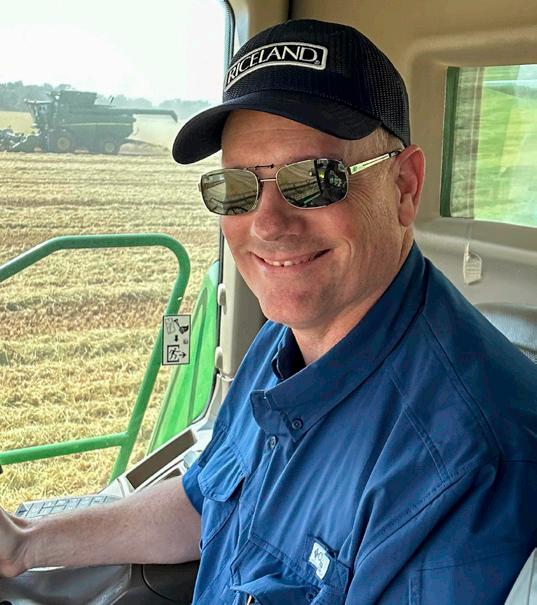
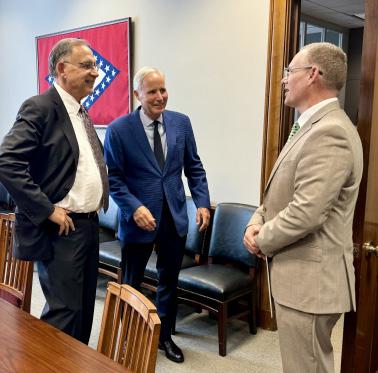
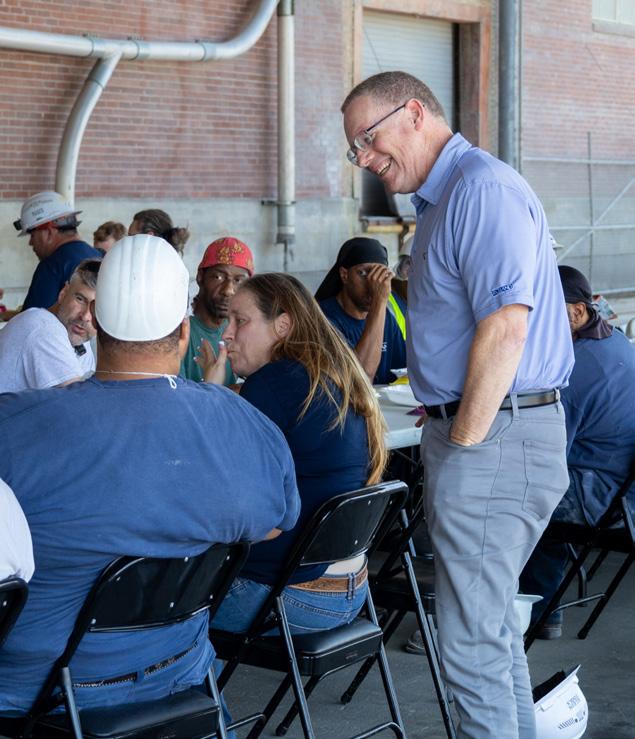
I love the theme of this year’s annual report: “Rooted in Community: Cultivating Connection through the Cooperative.” Riceland Foods has been ingrained in our local communities since the very beginning— it is in our DNA! Whether supporting local sporting activities or the local food bank, Riceland significantly impacts East Arkansas and the Bootheel of Missouri.
The team is laser-focused on improving the Rice Division’s financial performance. Many steps to restructure the division have been completed or are underway to improve future performance.

KEVIN MCGILTON PRESIDENT & CEO
To our valued members,
First, I want to tell the membership what a privilege and honor it is to be a part of this cooperative that means so much for so many farmer members. I also want to thank our board of directors for their trust. But mostly, I would like to thank Roger Pohlner, our former board chairman, for his service to Riceland Foods.
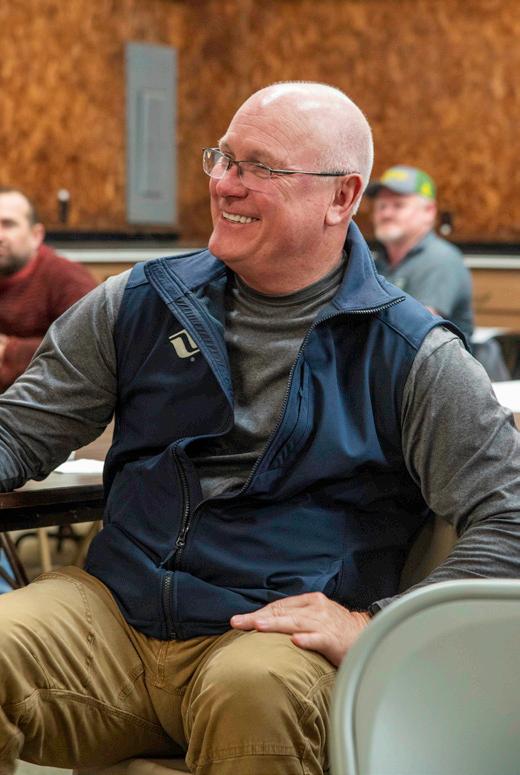
address the problems we have encountered this marketing year.
Kevin McGilton has been meeting our challenges head-on. He and our world-class staff have been working tirelessly for your cooperative, not only addressing our financial issues but leading in a manner that brings a team attitude in our fight to get better returns to you, our member-owners. Kevin and our staff are making strategic changes to improve. In all of the changes, they keep service to the membership at the forefront, which benefits all of us across Arkansas and Missouri. As a farmer member, my family farm puts a lot of trust in our cooperative. Year after year, we depend on Riceland for its wide-scale service and to extract value from our rice and soybeans. That’s the case for all of our members. We all collectively depend on Riceland for our living, not just our family farm’s success but the financial health of our rural communities. That is a tremendous responsibility.
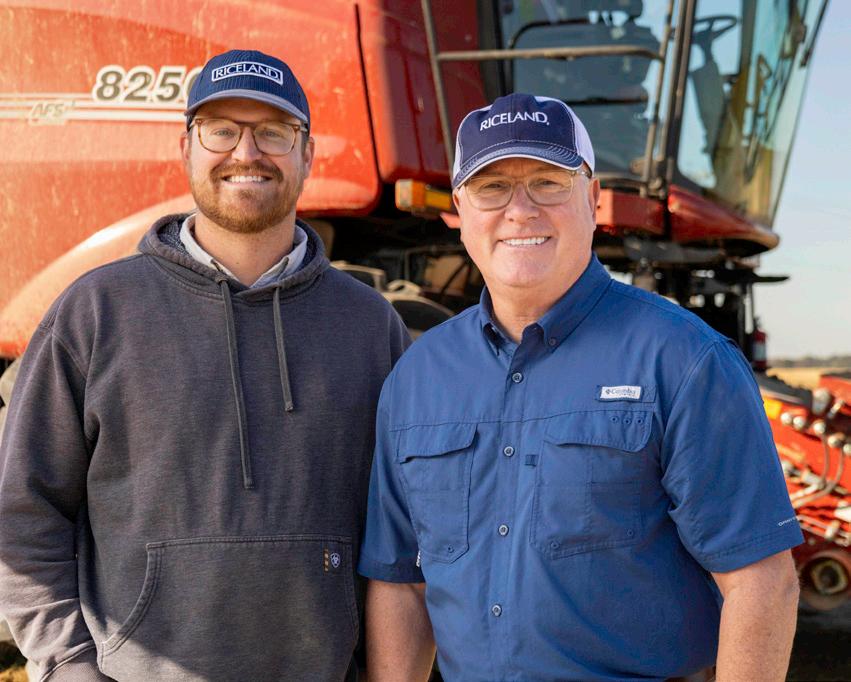
Roger’s leadership has been paramount in our past, and because of his unending service, we are on a trajectory for success. The challenges have been daunting recently, but Roger’s integrity never wavered in getting us to a good place. Thank you, Roger, for your leadership.
Addressing you, our membership, for the first time, is an honor but also challenging. We missed our mark with our seasonal rice pool. For a myriad of reasons, we came up short. I don’t want to dwell on this, but I want members to know significant changes have occurred and are taking place. Our new CEO is off and running to
We are certainly in trying times in agriculture. This is not just in Arkansas and Missouri. The agricultural economy is challenging all over our great nation. What we do at Riceland is more critical than ever. Our staff has been working to ensure our national delegation knows the extreme challenges our members face. Low commodity prices, coupled with the sky-high input costs, have hurt all of us. While my hopes for Congress aligning on new farm bill legislation were low, I hope the new bill will address the low reference prices and many other issues that challenge our farms. I want you all to know Riceland is voicing our concerns in that arena.
To close on a positive note, I want to express my deep gratitude towards our board of directors. We have a great mix of young and seasoned board members.
They collectively give hundreds of hours of service to Riceland and are leaders in their communities and agriculture. They always amaze me with their time commitment to serve on our board, as a committee chair, or on multiple committees, especially during harvest and planting season, to make our cooperative better. When presented with all the facts, the board inherently makes the right decision. It’s easy to serve on a board when things are going great. It’s not that easy when things are challenging.
But they are like most farmers; they are resilient. They don’t back down when things
Carl Brothers' Riceland journey began in 1965 when he worked the night shift learning electronic sorting equipment. Throughout his 53-year career, Carl was integral in the foundation of the Arkansas Rice Industry and for our cooperative.
"I was able to be involved as Riceland Foods began to grow its sales presence. We implemented direct marketing for the first time, which allowed us to maximize the revenue we were bringing back to our farmerswhich is really what we are all about."
CARL BROTHERS FORMER CHIEF OPERATING OFFICER
get tough and continue to meet our challenges with the tenacity all great leaders exhibit. Board members, too, depend on Riceland for their farms to be successful. I can’t thank them enough for their tremendous service. My special thanks to our new vice chairman of the board, Shannon Davis. He has hit the ground running, and his sound advice is much appreciated and needed.
Like all farmers, my prayers include prosperity not just for my family farm but for yours, too. On behalf of the board, our CEO, Kevin McGilton, and our incredible staff, thank you all for your membership in Riceland Foods, a cooperative that means so much to so many.
RICH HILLMAN CHAIRMAN, RFI BOARD OF DIRECTORS
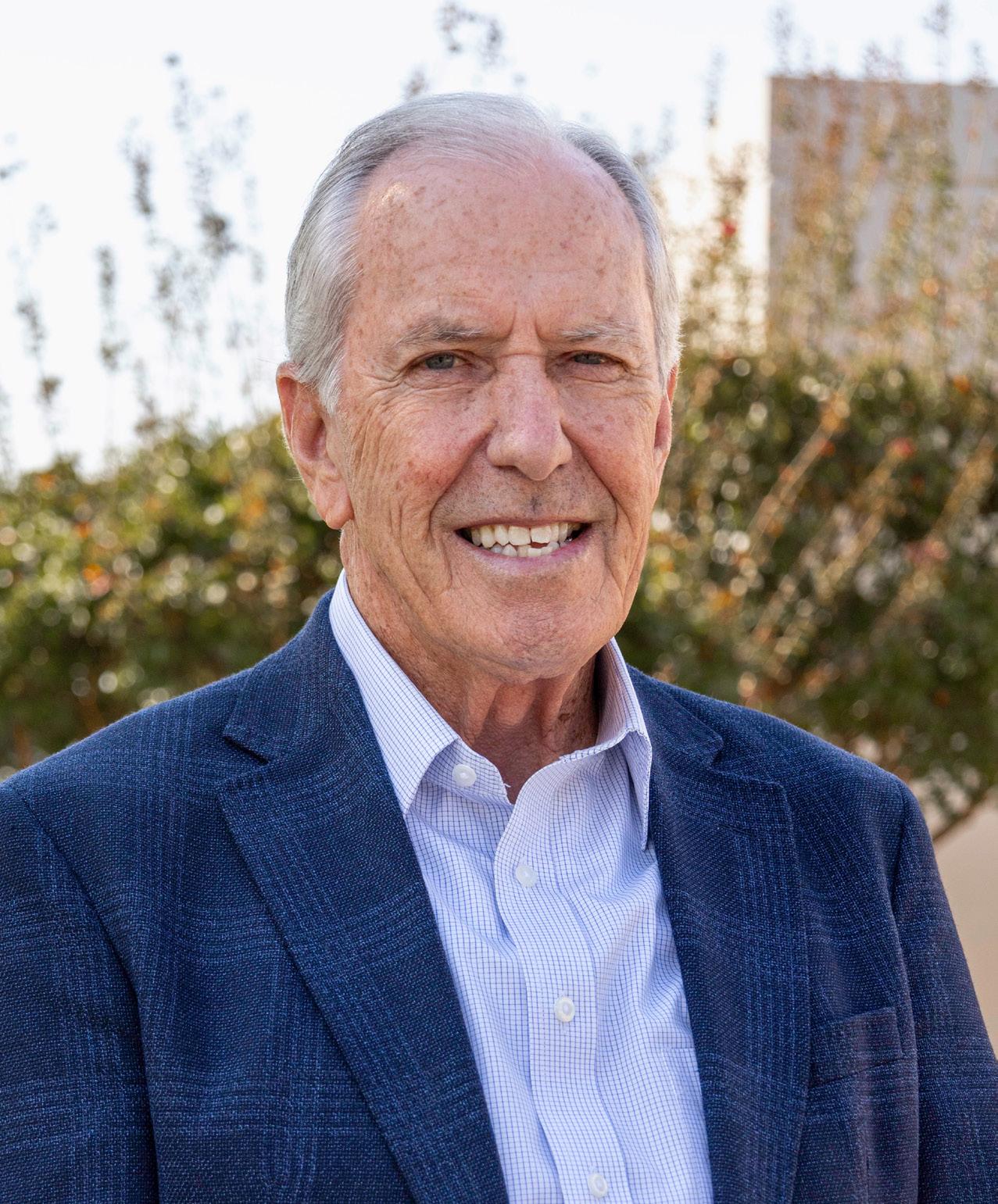

BEN NOBLE EVP, CHIEF OPERATING OFFICER
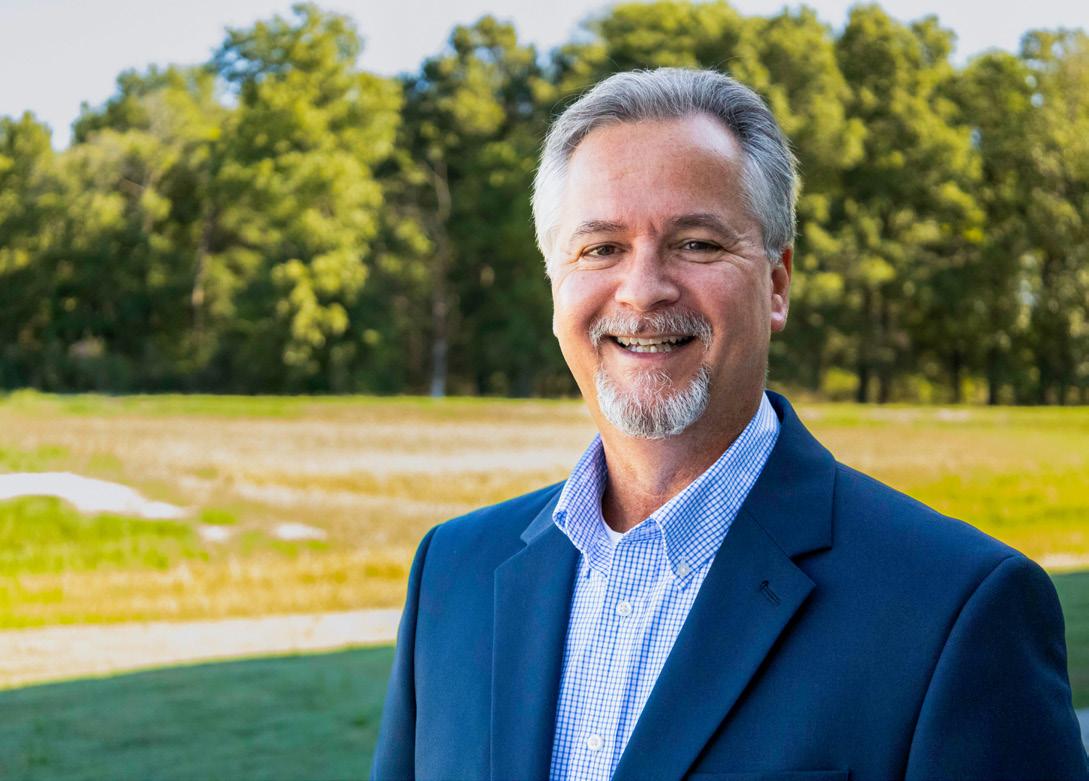
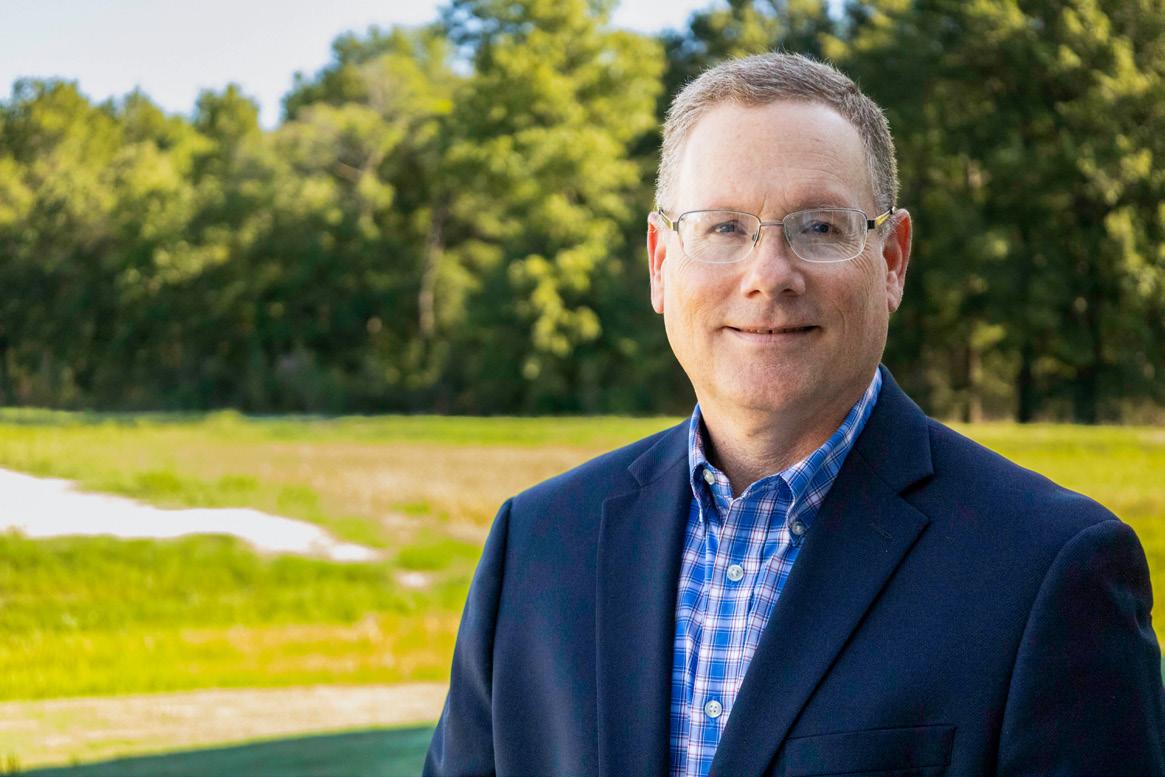
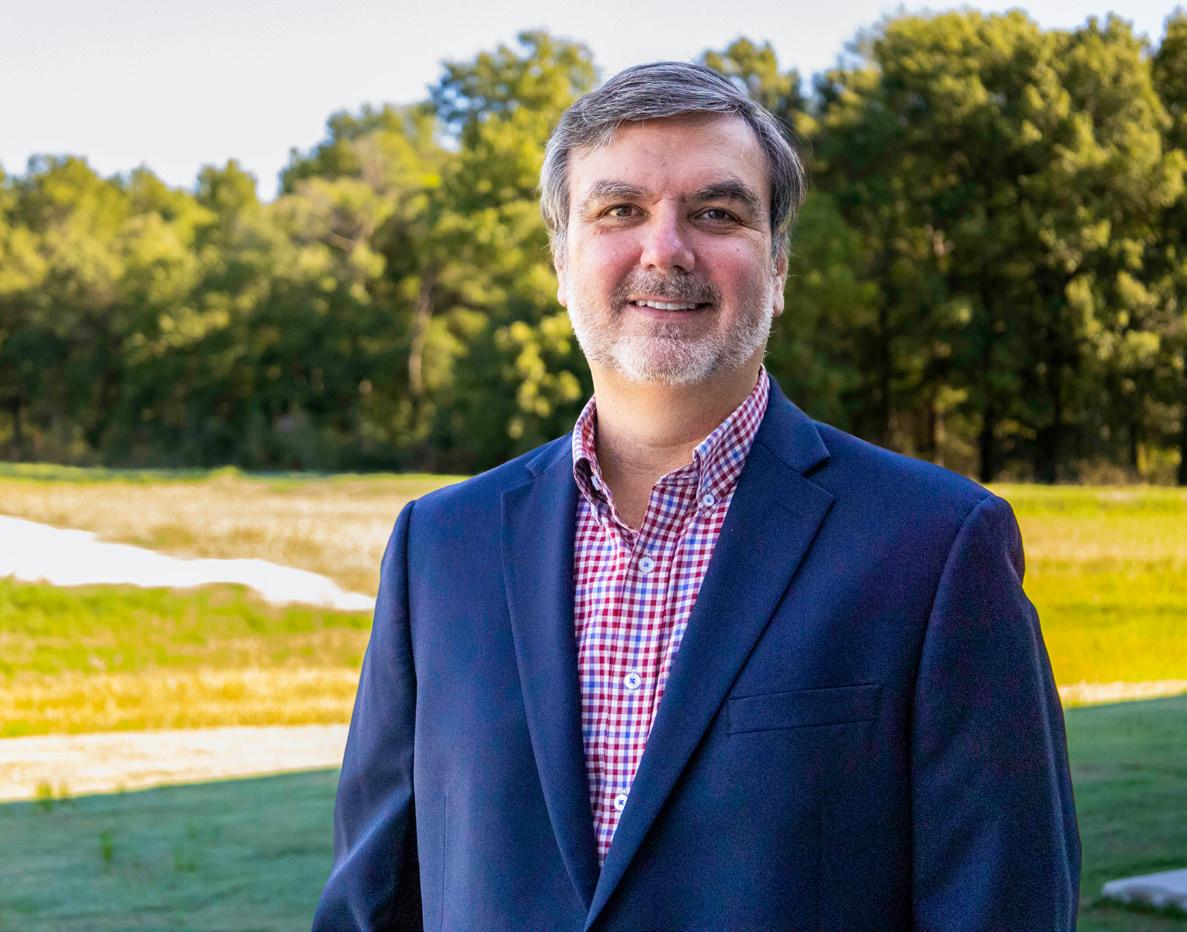
KEVIN MCGILTON PRESIDENT & CHIEF EXECUTIVE OFFICER

CHIEF LEGAL OFFICER & SECRETARY
CRAIG PARR CHIEF FINANCIAL OFFICER
LIONEL RILEY CHIEF HUMAN RESOURCES OFFICER
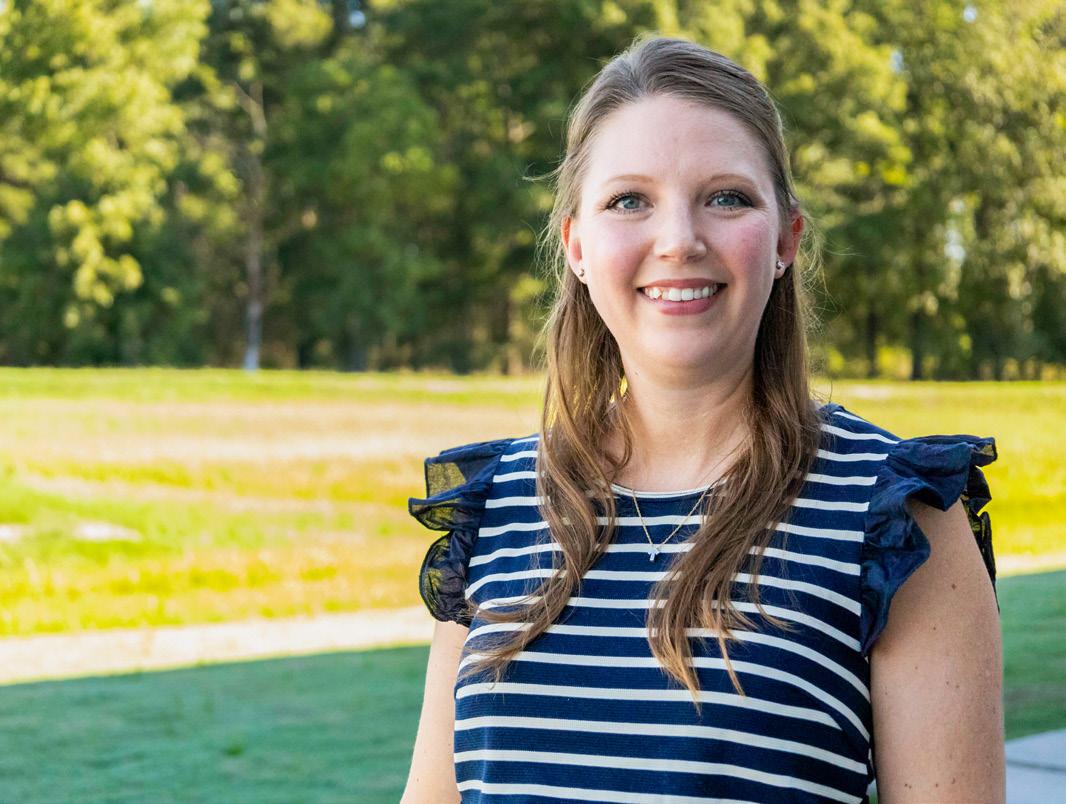
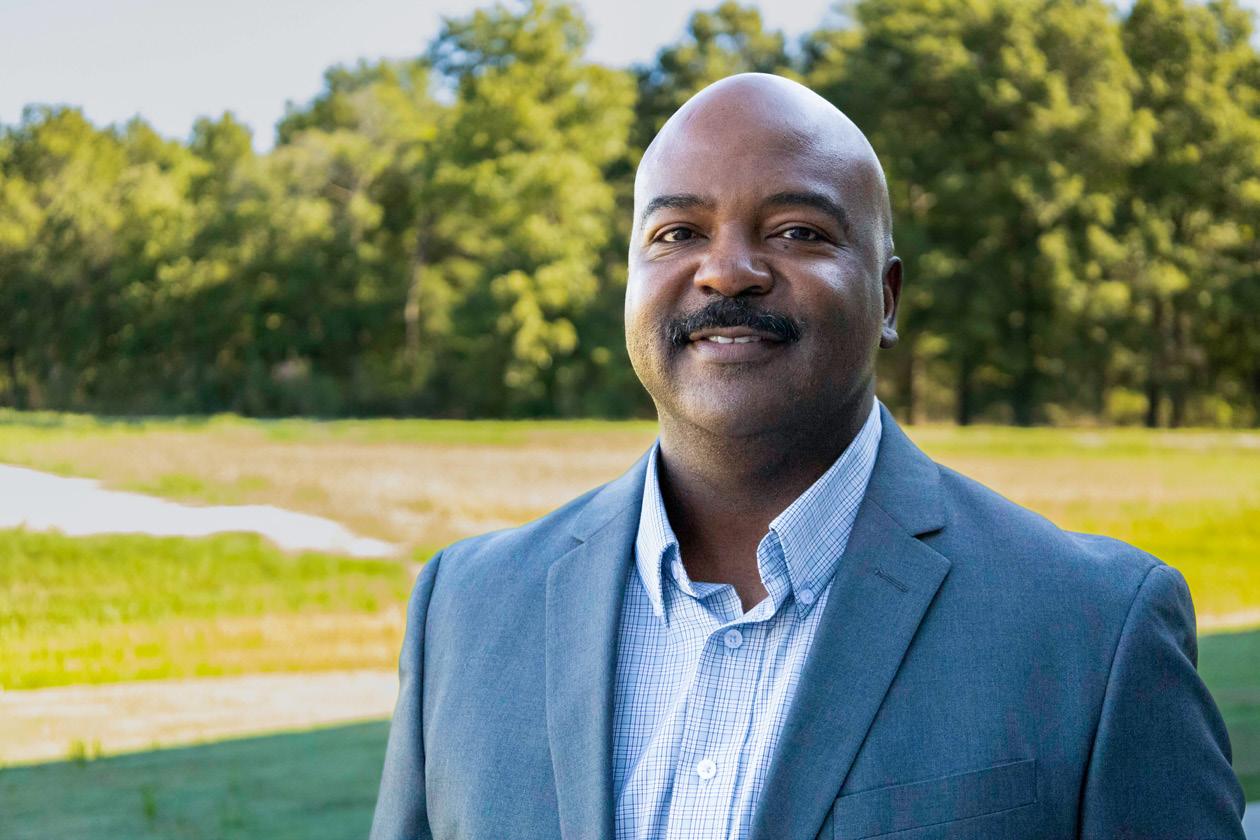
ADAMSON VP, MARKETING & COMMUNICATIONS
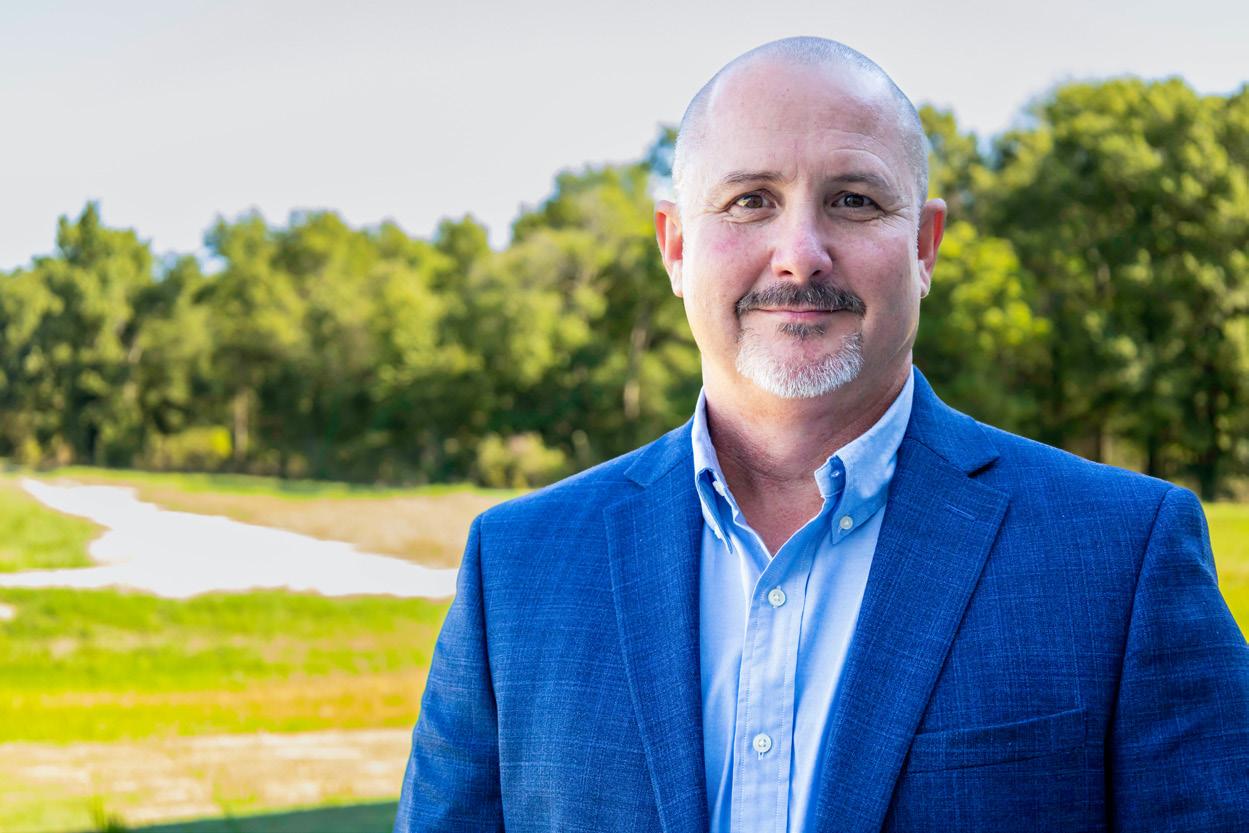
When discussing the deep-rooted history of Riceland Foods, two names stand out:
Danny and David Meins. These brothers not only worked for the cooperative but dedicated nearly five decades each to ensuring its success.

Starting in 1971, right out of high school, Danny had initially considered joining the Air Force. However, life had other plans, and instead, Riceland became the institution that shaped him. “Riceland raised me,” Danny said with a nostalgic smile, reflecting on how the cooperative stood by him, even through his youthful mistakes.
Danny’s natural ability to build relationships propelled him into a 30-year career in sales, eventually leading him to become Vice President of Ingredient Sales. His approach to business wasn’t about making transactions—it was about connecting with people. “I spent 30 years making people like me,” Danny joked, but it was evident that his genuine care for others earned him the loyalty of customers and colleagues alike.
After 47 years, Danny retired in 2018, leaving behind a legacy built on the belief that strong relationships and a cooperative spirit could carry the organization and its members through any challenge.
ENSURING MEMBERS’ SUCCESS

David Meins’ journey with Riceland began six years after his brother’s. Starting in maintenance, David soon found his calling in quality assurance. His attention to detail and desire for new challenges led him to various roles, including safety coordinator and eventually manager of the appraisal office, where he worked until his retirement in 2022.
One of David’s most significant contributions was his dedication to supporting farmers during difficult times. He recalls a particularly tough year when stink bug damage threatened farmers’ livelihoods. “Riceland looked for ways to provide value in everything, the complete product itself, and continues to do so,” Meins said with a chuckle, “from brand recognition to rice hulls and even soybeans, Riceland found ways to squeeze as much value out of every single truck brought in by its members.” Efforts like that were a lifeline for many, illustrating Riceland’s commitment to supporting its members through thick and thin.
David said, “Riceland adds value to everything— every part of the product.” His career reflected Riceland’s broader mission: to support its farmers in the good years, particularly the tough ones.
A SHARED COMMITMENT TO RICELAND’S VALUES
As they reflect on their careers, both brothers express deep gratitude for the opportunity to be a part of Riceland’s history. Danny fondly recalls the relationships he built, while David takes pride in the small adjustments and decisions that greatly impacted farmers’ livelihoods.
Together, their legacies remind us of the human side of agriculture—a side that thrives on community, trust, and the belief that we are all stronger together.
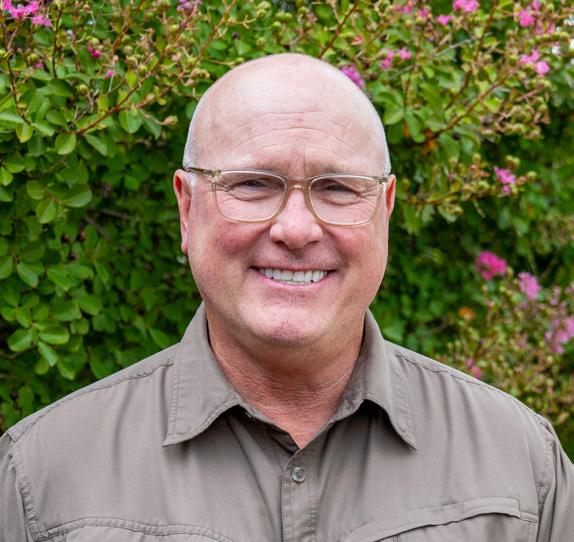
RICH HILLMAN DISTRICT 2
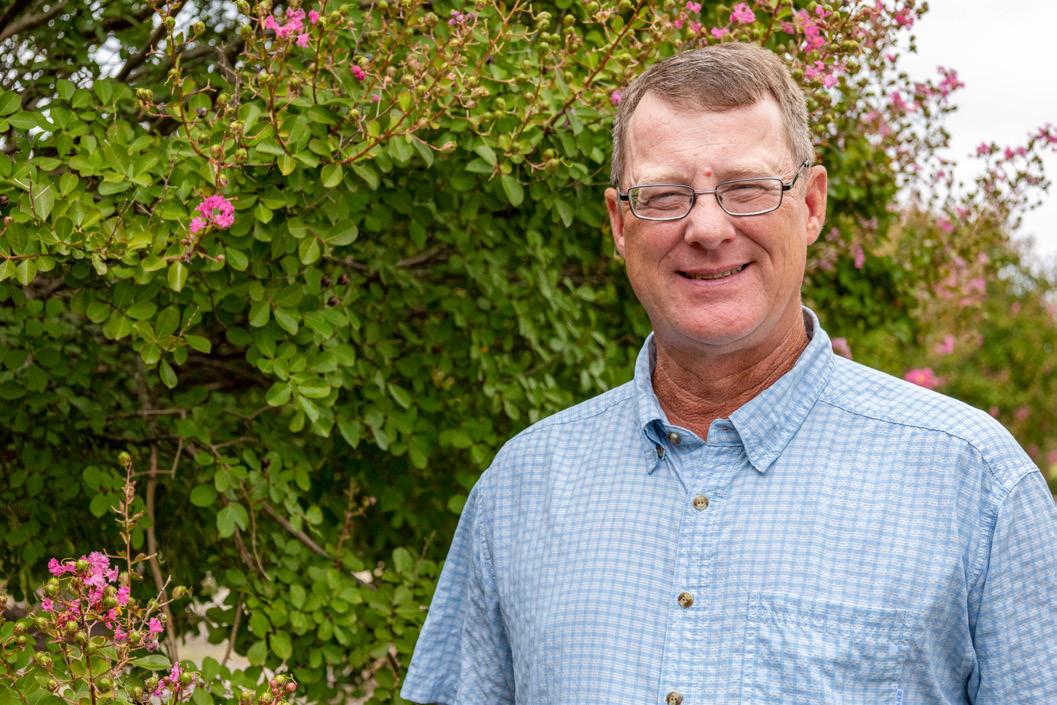
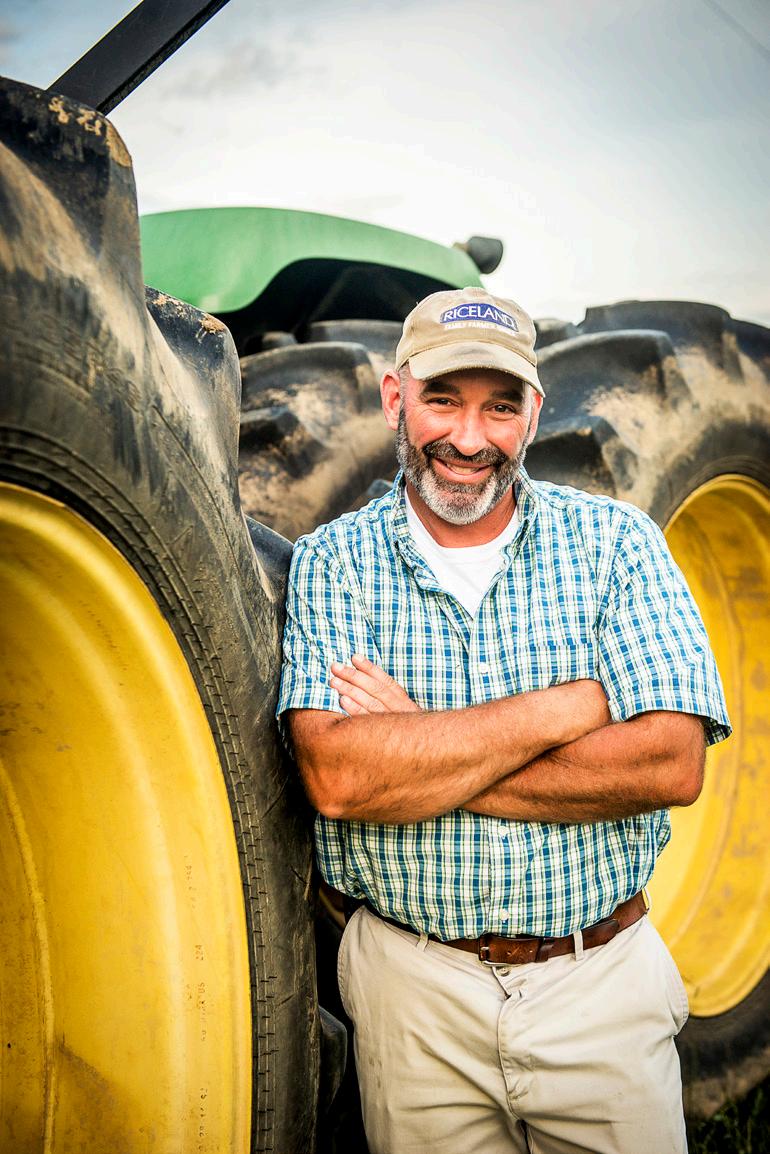
DONALD MORTON DISTRICT 2
CURTIS FOX DISTRICT 3 VICE CHAIRMAN
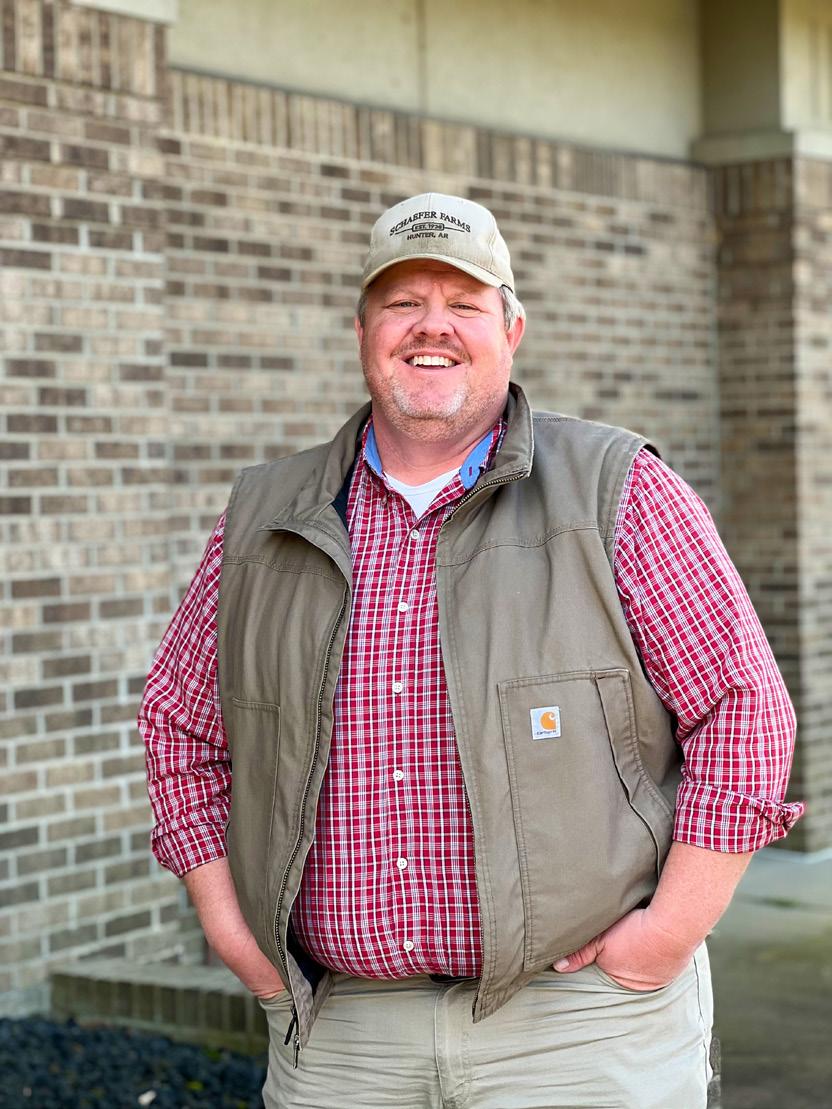
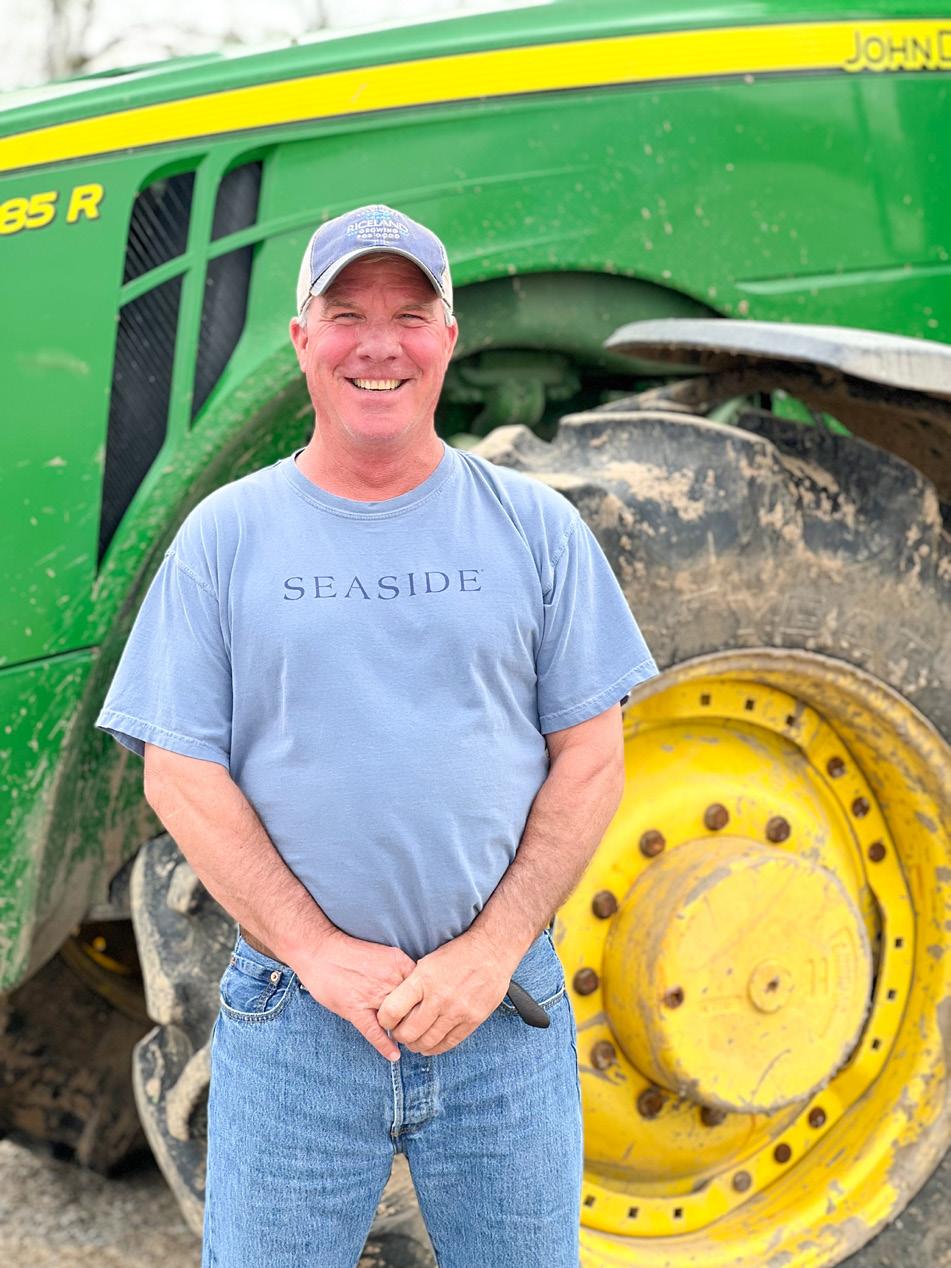
CLAY SCHAEFER DISTRICT 1
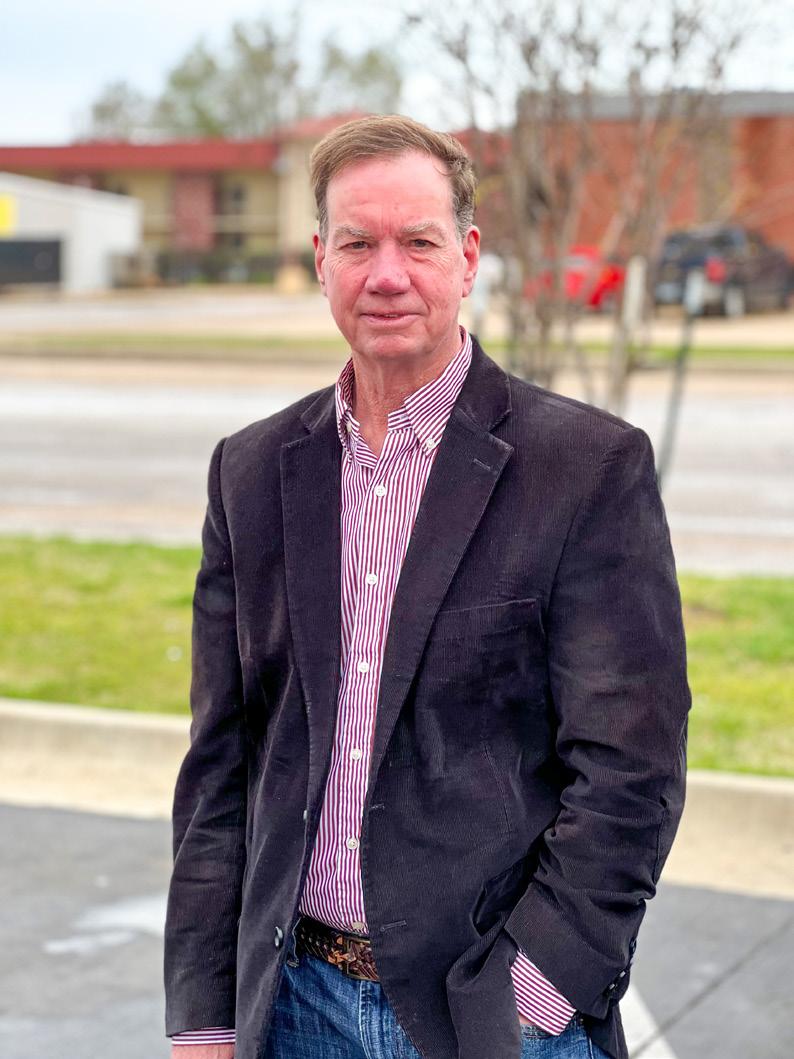
JOHN COOPER DISTRICT 1
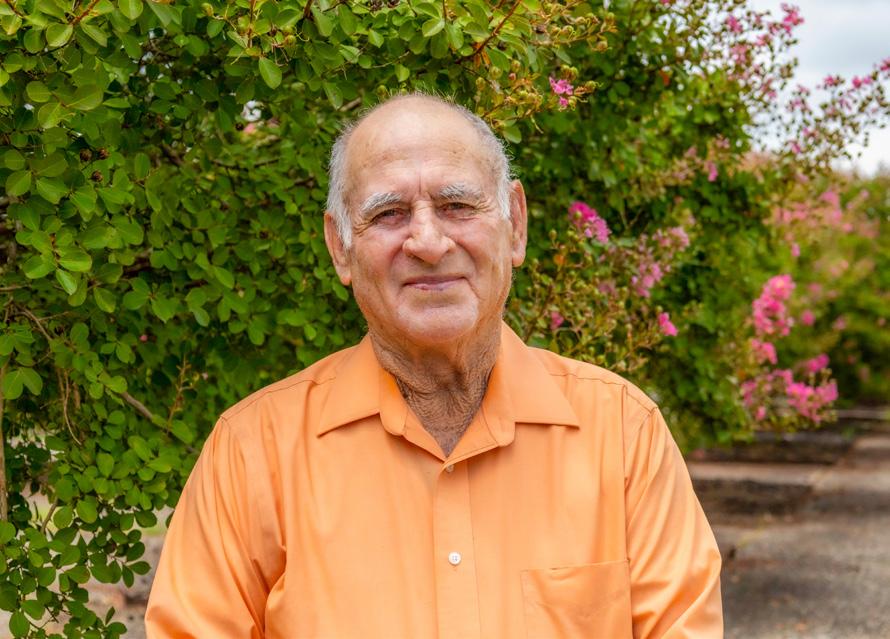
KEN HALL DISTRICT 2
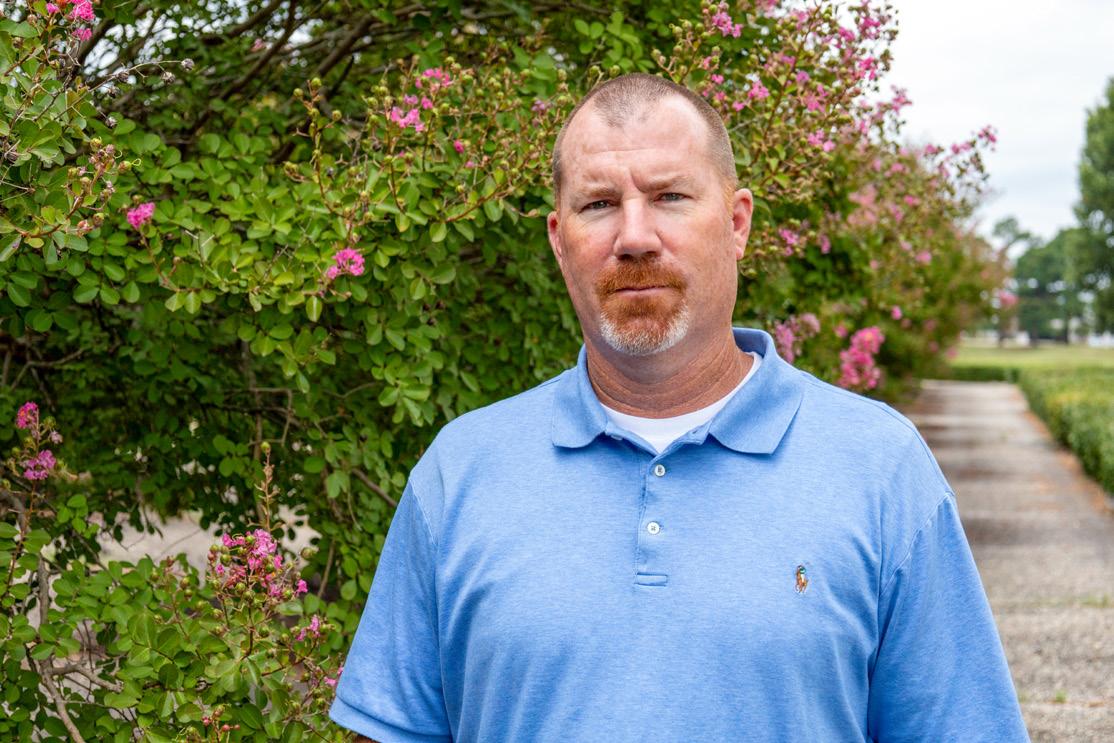
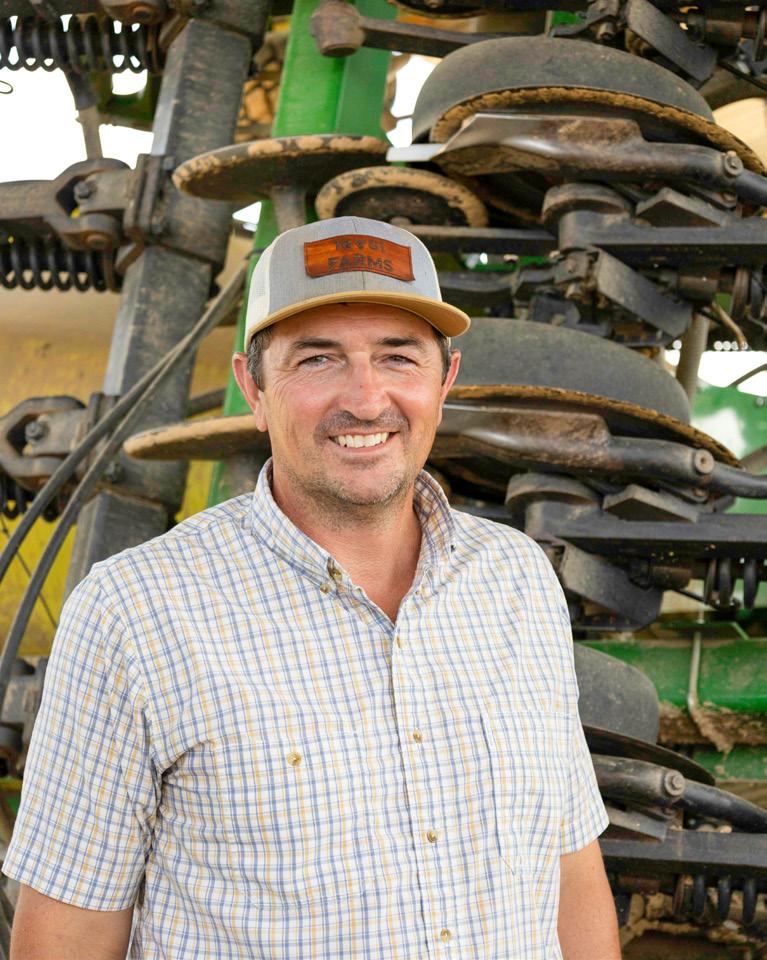
JOHN HAMILTON
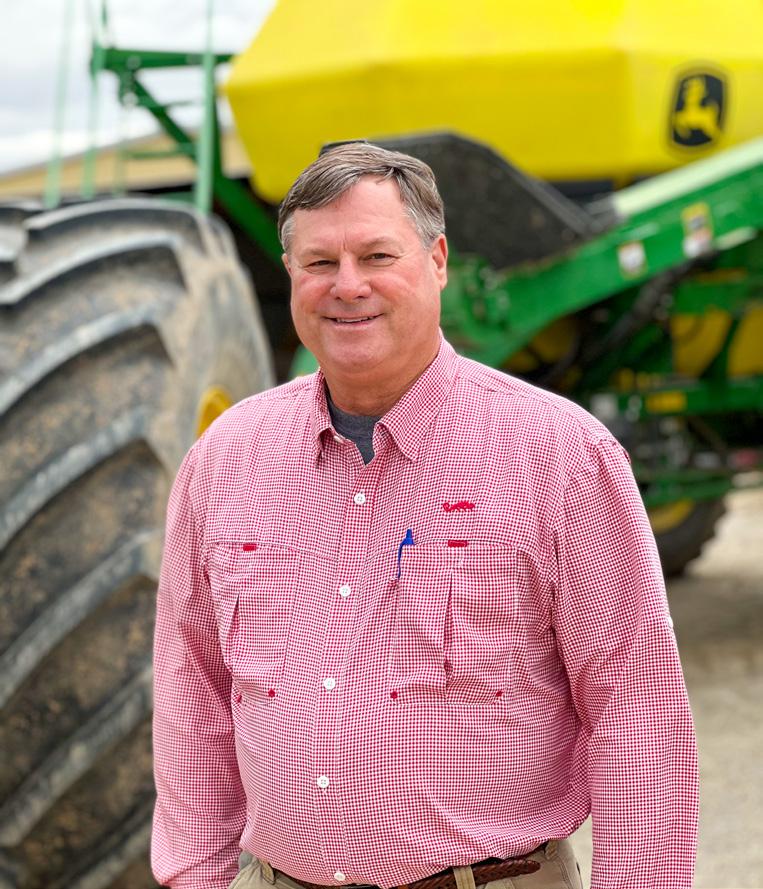
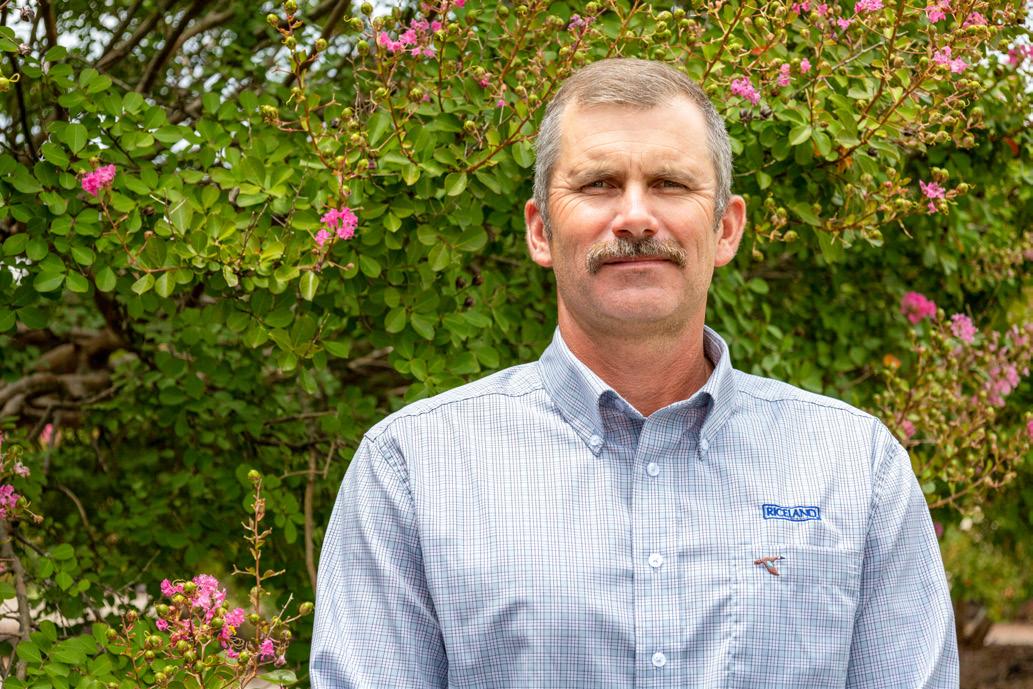
SETH SKARDA DISTRICT 2
MARK AHRENT DISTRICT 4
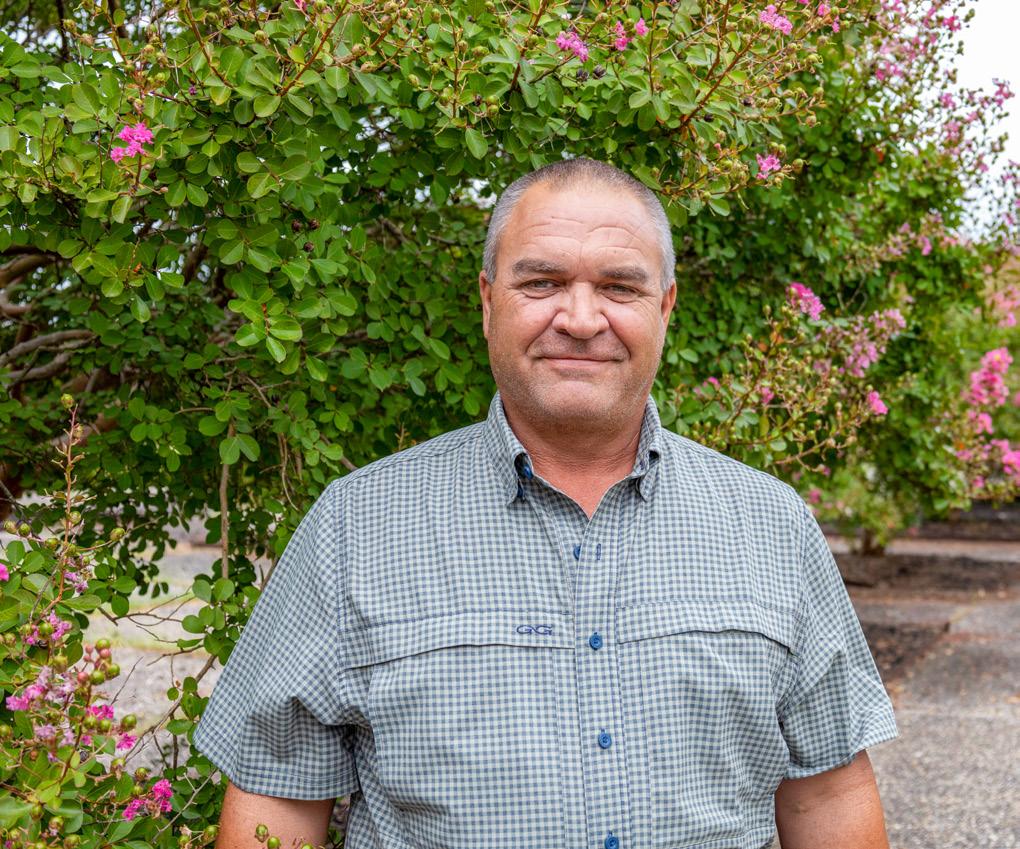
BRITT ALLMON DISTRICT 4

DAVID BAUSCHLICHER DISTRICT 4
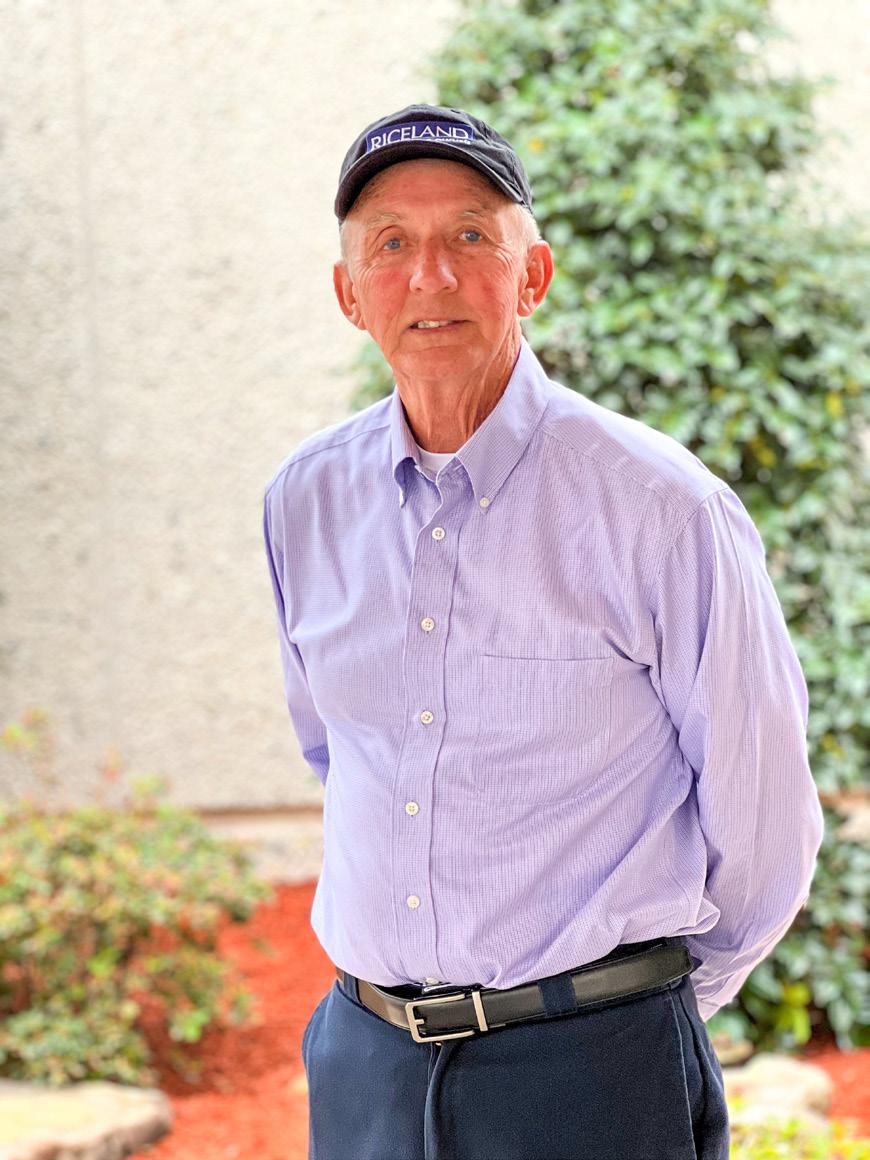
KENNY CLARK DISTRICT 6

ROGER POHLNER DISTRICT 6

WAYNE WIGGINS, III DISTRICT 7
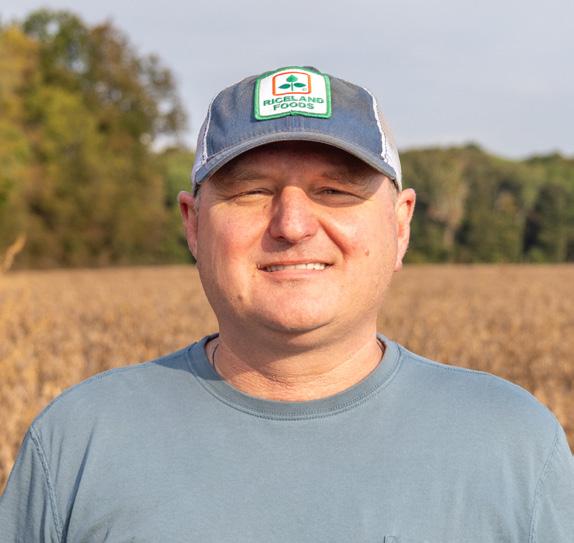
MARTIN HENRY DISTRICT 5
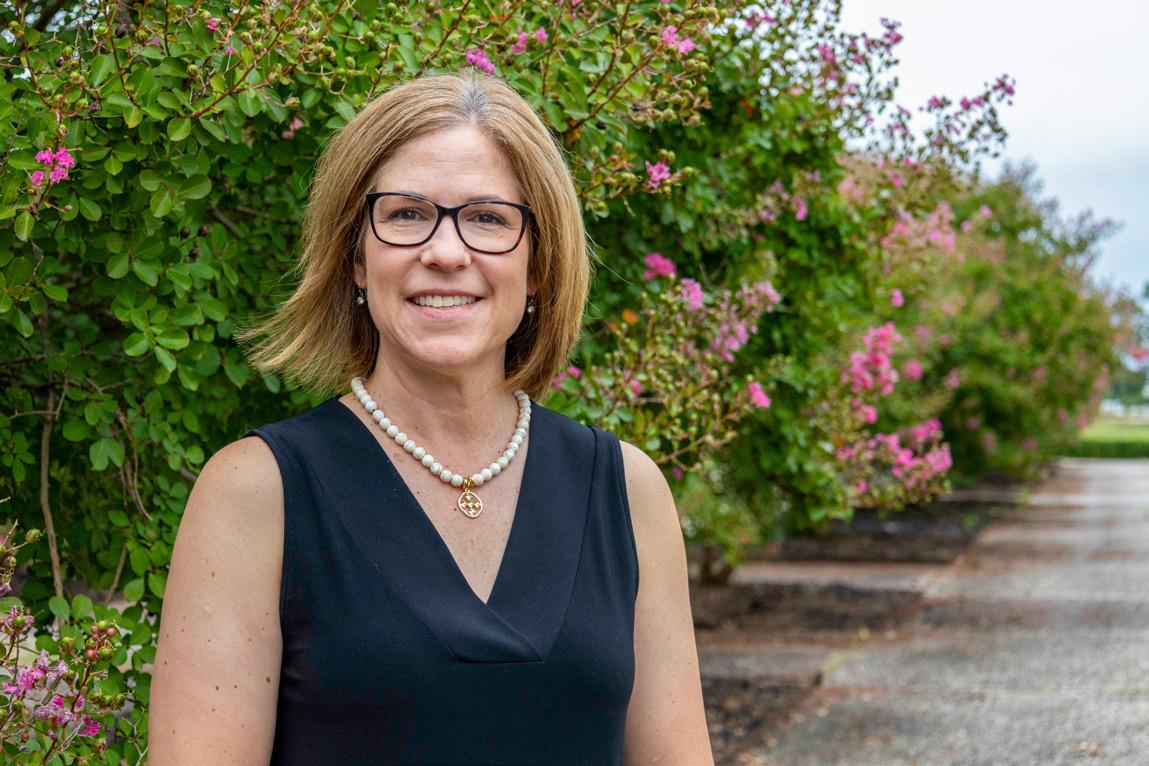
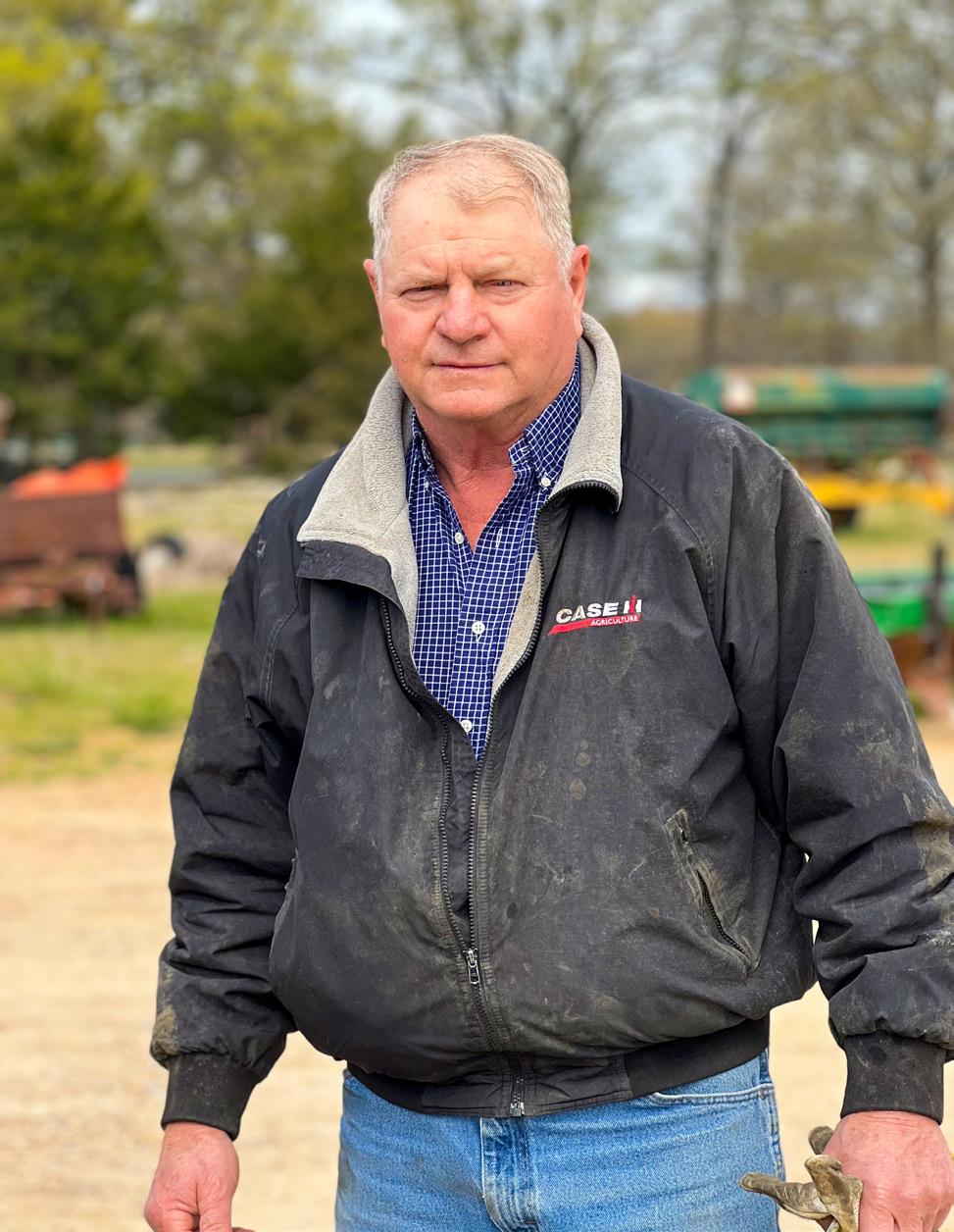
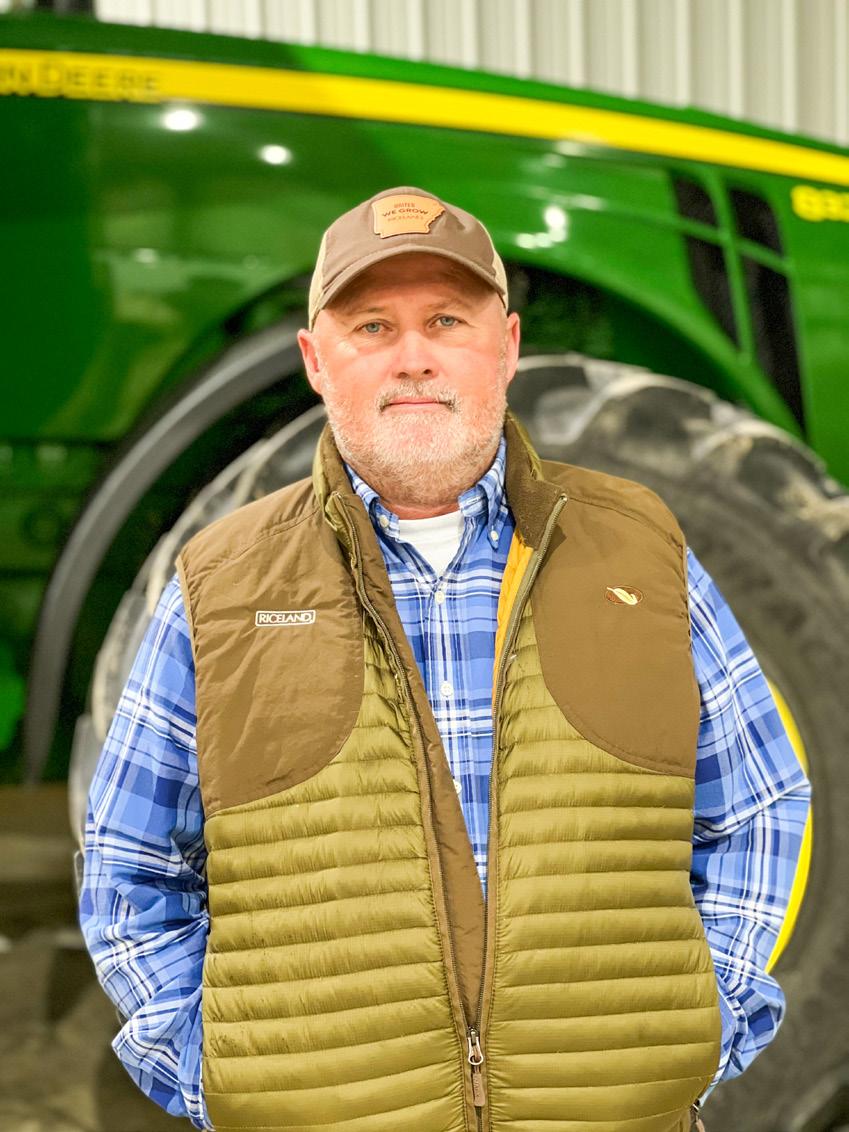
SCOTT BRADY DISTRICT 7
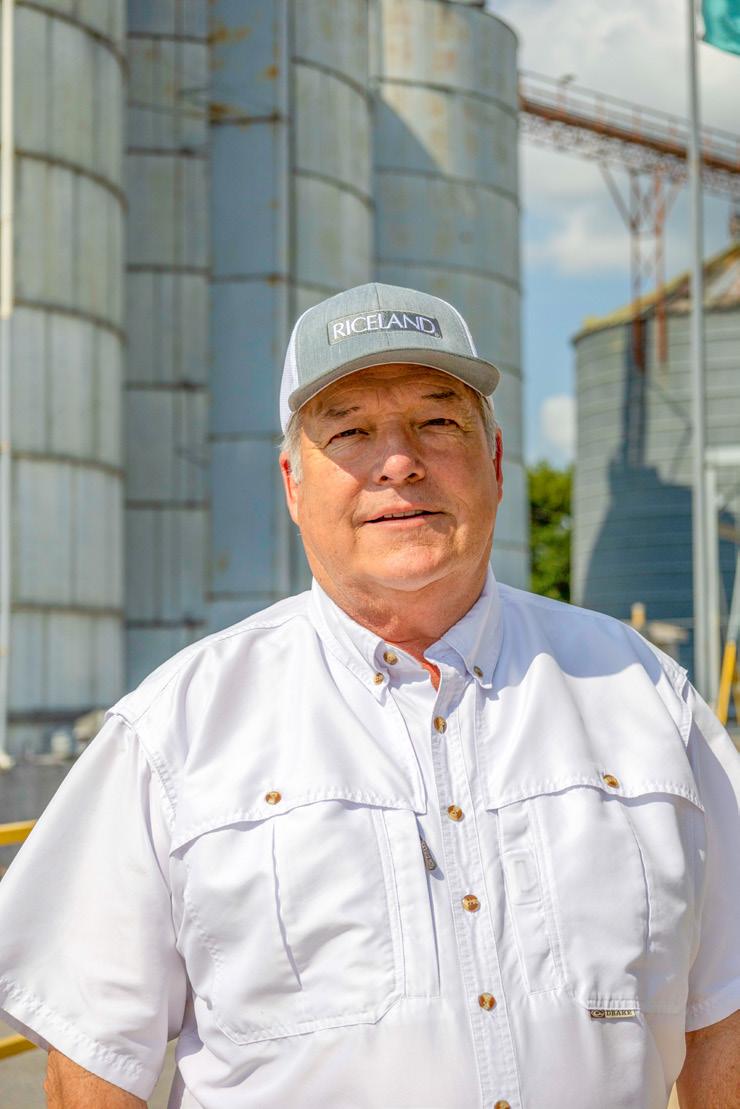
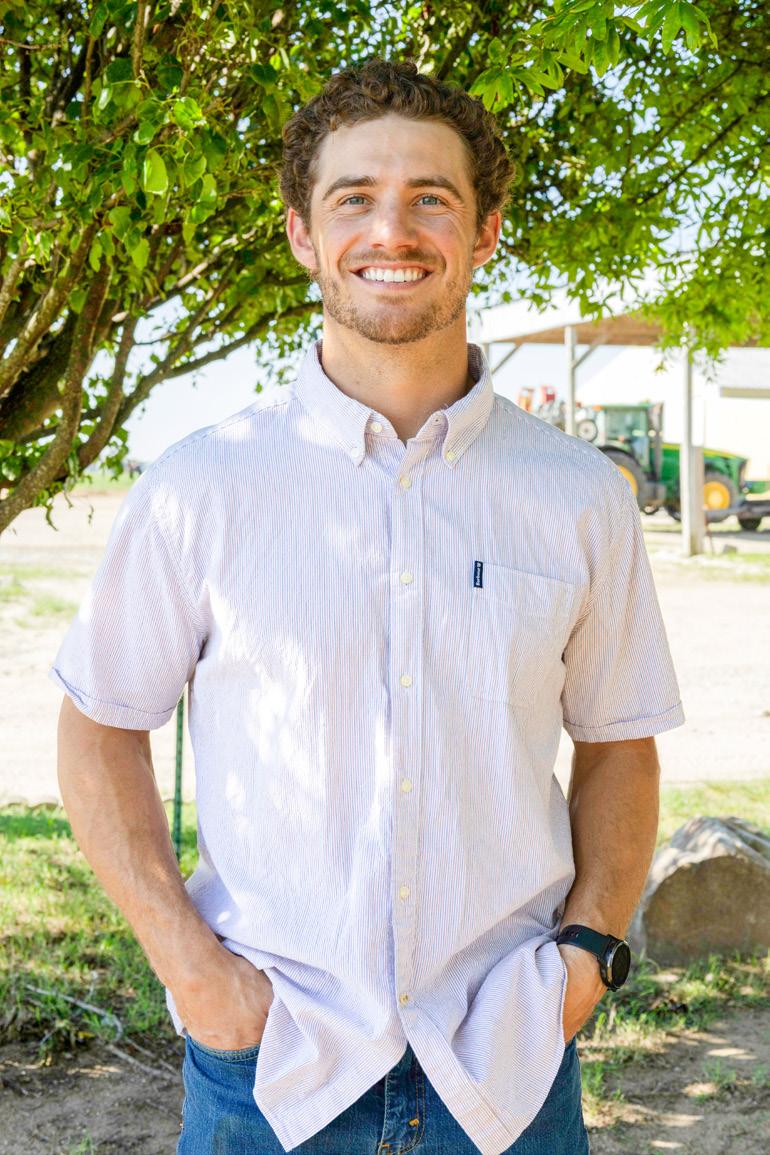
COLE HICKS DISTRICT 7
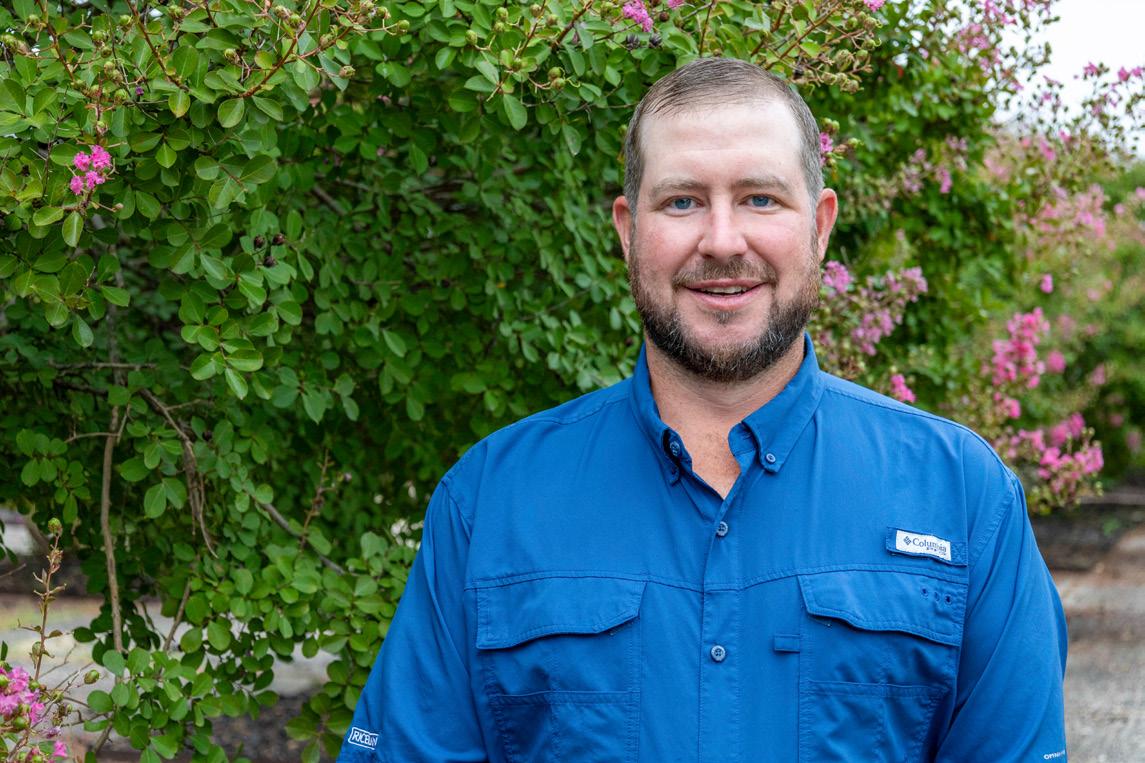
ZANE CLARK DISTRICT 8

CURTIS WORLEY DISTRICT 8
EVP, CHIEF OPERATING OFFICER
As we reflect on the 2023/2024 marketing year, your sales team remains focused on our mission statement: Riceland Foods, helping farmers feed the world, sustainably. We accomplished that in the 2023/2024 marketing year through sales across the United States and around the globe.
Although our export sales for rice are a smaller percentage of our business than 10-20 years ago, they remain an important focus of our efforts. Iraq was our largest export customer during the marketing year. As you know, the United States has a Memorandum of Understanding with Iraq that signifies annual sales will occur at targeted volumes. Due to financing issues within Iraq, consistent shipments to Iraq were challenging towards the second half of the marketing year. Through collaborative efforts with USA Rice and the US Government, we were able to resume sales in July 2024 and remain hopeful Iraq will remain a consistent buyer of US rice in the future.
While Haitian unrest impacted shipments to the region last year, we saw increased interest from the Dominican Republic and are working to expand our market share there. Jordan held promise as a consistent destination for southern medium grain during the first half of the marketing year, but exports from the US to Jordan have reverted to Californian medium grain options now.
On the domestic front, we continue to see strong demand for our parboiled business and bagged

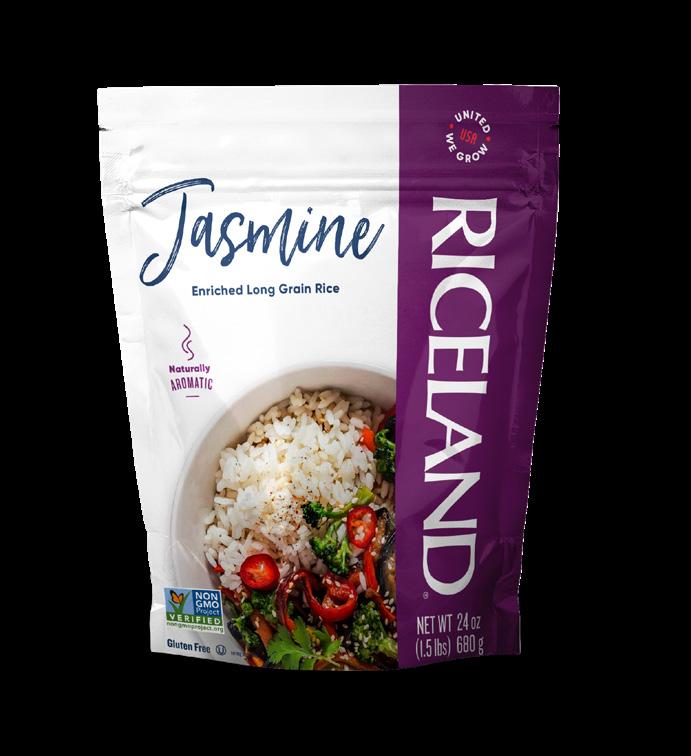
regular rice, primarily from our Ingredients and Foodservice sales divisions. Restaurants have rebounded from the COVID era setbacks, and, pending inflationary pressures on the consumer’s buying habits, we are optimistic that growth opportunities exist in Foodservice for 2024/2025.
Our rice bran oil sales achieved historic highs last year, and our flour sales also rebounded from previous year-over-year declines. Our instant rice sales saw second-half volume growth, and we plan to keep the momentum for these value-added sales sectors moving forward in the next marketing year.
The soybean/oil division remained competitive and productive in our regional markets. Profits for the soy/oil division were favorable again during 2023/2024. Oil sales collaborated with operations to maximize more extended batch runs to boost efficiency. The team also capitalized on excess refining capacity by increasing the volume of higher-margin specialty oils processed in the facility. As always, we continue to diversify our customer base to expand our sales footprint and minimize our risk of high customer concentration. However, crush capacity is increasing in the US, and crush margins may come under pressure in the next marketing year.
The sales team is glad last year is behind us. Our focus is on marketing the 2024 crop with positive results.
For over 100 years, Riceland Foods has served as a pillar to communities across Arkansas and Missouri. Our story is rooted in community because real people built our cooperative with purpose. Riceland Foods has been a pioneer in the rice and agricultural industries, evolving from a small cooperative of farmers into the largest miller and marketer of rice in the United States. Riceland’s deep-rooted history tells a story of perseverance and innovation. More importantly, it highlights our unwavering commitment to quality, sustainability, and community impact, values we hold dear and strive to uphold daily.
As a marketing and communication team, our focus has been and will remain on the roots of our cooperative story: the Riceland farmermember. It starts with farmers and their love of the land they cultivate, and the marketing and communication team has centered their efforts on telling their stories. This past year, the team undertook a significant initiative by creating the first Riceland Sustainability Report, a comprehensive document showcasing the work of the Riceland Sustainability Team and its Carbon Ready™ program results. We also worked to generate press around the Riceland Carbon Ready™ program through press releases, news articles, and podcasts, ensuring that our stakeholders are well-informed about our commitment to sustainability.
In celebration of the Riceland Foods Foundation’s 25th Anniversary, the team worked cross-functionally to support communication efforts on the Foundation’s work in rural communities across our footprint. The
Foundation, with its focus on critical areas of support in agriculture and environment, communities and culture, youth and education, and human services, plays a crucial role in supporting rural communities across Riceland’s footprint. The team will continue highlighting how the Foundation’s work directly impacts and supports these communities. The Foundation’s connection to communities is vital to serving our members and employees where they live and work.
On the marketing front, the team has worked diligently to map out plans for supporting sales through innovative marketing tactics and beautiful creative elements. Consumers today are more aware of where their food comes from and demand more from brands they buy. Our focus on our cooperative story and our farmer-members gives us a unique connection point with which consumers align.
As we look to the future, Riceland is steadfast in its commitment to continuing its legacy of leadership in the rice and agricultural industries. We are constantly exploring new communication technologies and marketing methods that will further enhance our cooperative storytelling power and support the sales of our products. Our rich history is not just a story of where we’ve been; it’s a promise of where we’re going. Together, we can cultivate a better future for farmers, employees, customers, consumers, and communities, inspired by our past and hopeful for what’s to come.
ASHTEN ADAMSON VP, MARKETING & COMMUNICATIONS
Fiscal year 2023/2024 saw the implementation and completion of the USC Management Operational Systems (MOS) at Stuttgart and Jonesboro rice operational areas. The USC MOS has several components, with employee engagement, roles, and work connectivity central to success. The program expanded to include Soy Division, New Madrid, and Waldenburg, with those areas also receiving passing audit scores.
Reflecting on 2023/ 2024, changes in several vital operational positions occurred, including new management at Stuttgart Rice and Stuttgart Soy Division. Moving forward in 2024/2025, the focus on leadership, safety, yields, run rates, and automation will remain a high priority.
This swing in milling yields is significant as the fixed cost of milling a 48-whole kernel is the same as that of a 58-whole kernel, while the 58 would provide 20 percent more whole kernel output and the associated sale value.
Jonesboro and Stuttgart Parboiling operations received significant resources to improve parboil efficiencies and enhance parboil premiums. As parboil production stabilized, we set Mars as a priority status customer, and we received positive feedback from the Mars team regarding the level of service needed to meet their business needs. The Mars project has been challenging but is currently a healthy partnership.
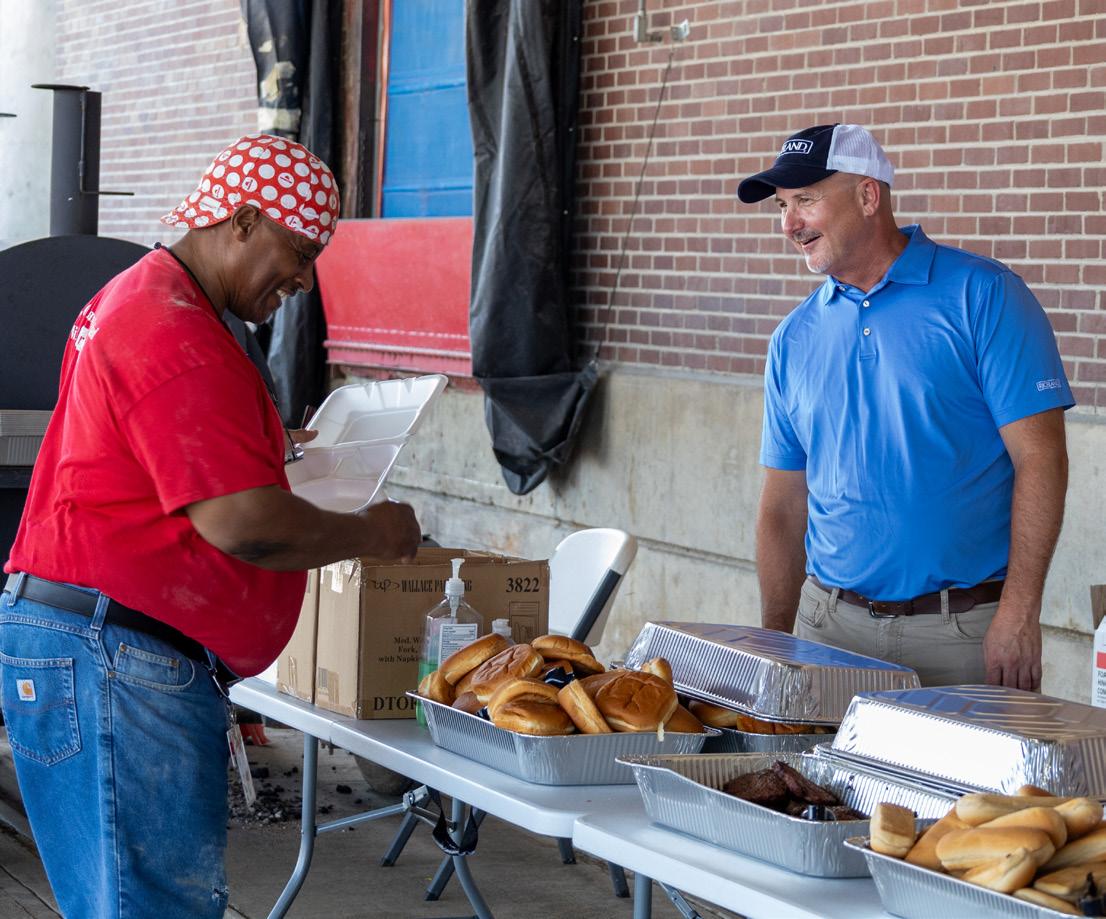
FY 2023/2024 saw marked improvement in safety records, with all areas below comparable industry standards for OSHA recordable accident rates. Jonesboro Rice Division realized the largest improvement in reducing OSHA recordable for the fiscal year.
Rice milling saw slightly higher yields on the north end of the state and at New Madrid, in the low 50s, while Stuttgart faced challenges with rough rice regularly in the upper 40s.
Soy crush had a respectable year, with continued favorable crush margins. Soy oils remained challenging as abundant stocks of soy oils drove down prices, negatively impacting oil processing margins.
The RITO and Rivland partnerships finished the year with favorable returns. Best Rice saw a return to 24/7 operations and strong sales demand. As Best Rice approaches ten years, there is light ahead with favorable margins in the second half of the 24/25 fiscal year.
In current market conditions of high interest rates, inflation, and increasing employee wage competition, streamlining and automation are a MUST. Throughput, yields, and doing more with less are critical to reducing costs and improving the bottom line.
CHARLES BROWN VP, MILLING & MANUFACTURING
In 2023, Congress extended the 2018 Farm Bill instead of introducing a new one, maintaining the status quo until September 2024.
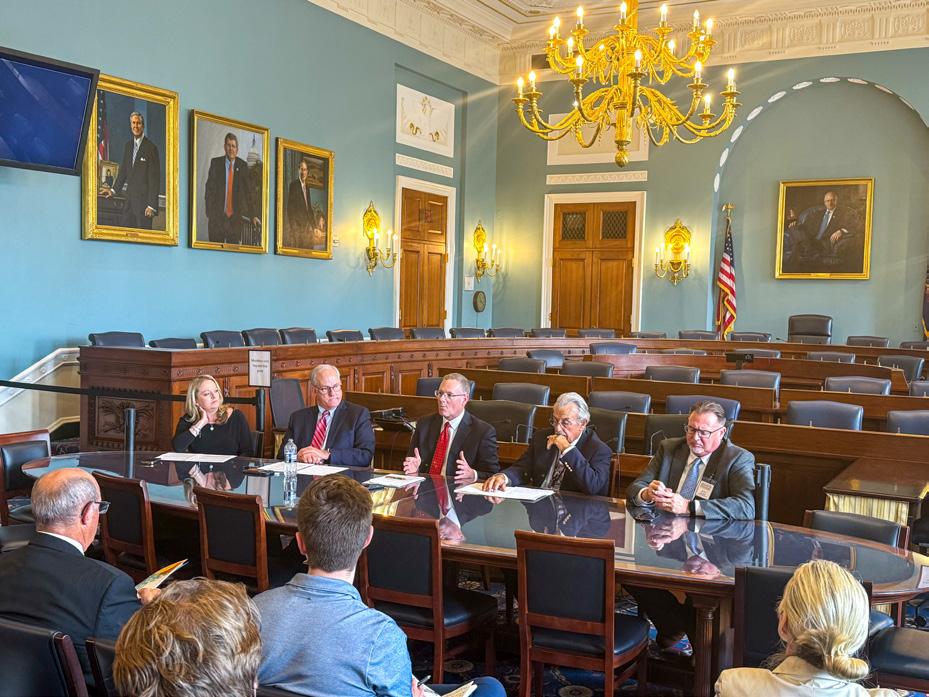
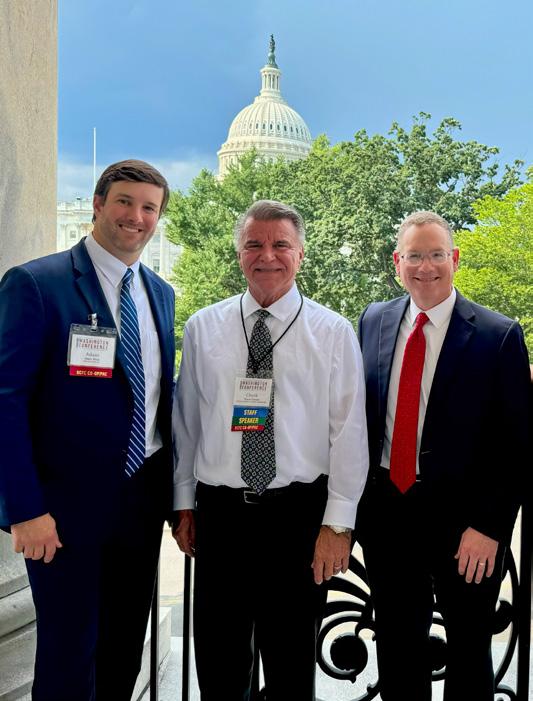
Leadership changes in the Republican-controlled House, with Mike Johnson as the new Speaker, compounded delays in government funding discussions, pushing Farm Bill progress to Spring 2024.
In May 2024, the Farm, Food, and National Security Act of 2024, led by Chairman G.T. Thompson, advanced with bipartisan support. It focused on increased reference prices for the rice industry and enhanced funding for conservation. However, concerns arose over party disputes regarding IRA conservation funding and other spending issues, risking the bill’s passage on the House floor.
While Senate Agriculture Republicans expressed support, actual bill texts did not follow, resulting in uncertainty among agricultural communities. By summer,
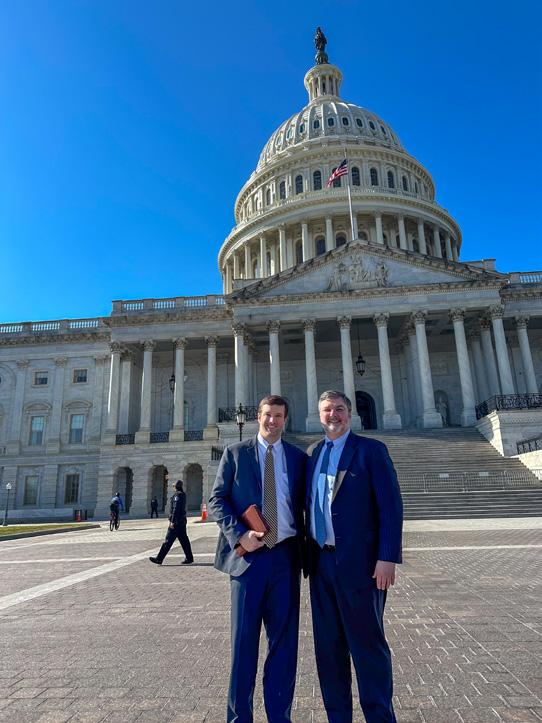
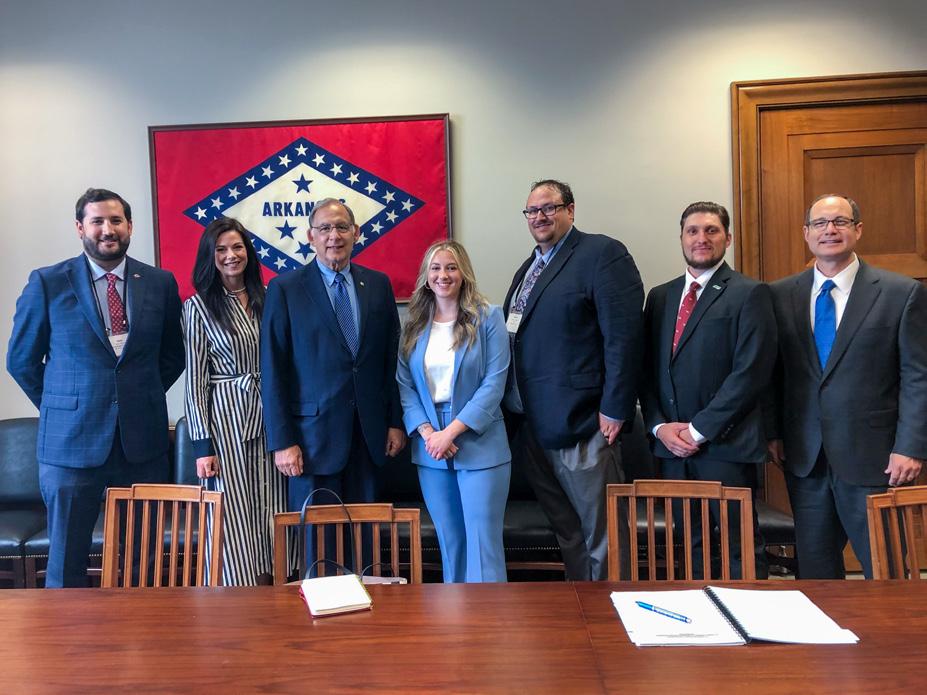
optimism waned as bipartisan discussions diminished, and the House bill’s potential passage faced delays due to government funding priorities.
As of September 2024, formal bill text has yet to emerge, but agricultural groups are advocating for immediate assistance to address economic challenges faced by producers due to declining commodity prices, high interest rates, and inflation.
Momentum appears to be building in the House and Senate for potential aid to help farmers and ranchers navigate these difficulties.
BEN NOBLE EVP, CHIEF OPERATING OFFICER
ADAM SHEA VP, GOVERNMENT AFFAIRS & SUSTAINABILITY
CRAIG PARR CHIEF FINANCIAL OFFICER
Riceland Foods’ 2023-24 marketing year revenue was $1.33 billion, up 3% from the previous year’s $1.29 billion. While consolidated net income posted a decline from a year ago, the soybean crush operation and partnerships performed well. For the 2023-24 marketing year, pre-tax earnings were a loss of $23.99 million, which included a 17% increase in distribution to patrons of $130 million. Total distribution to patrons for the 2023-24 marketing year was $917.9 million compared to $787.8 million a year ago.
Although our balance sheet remains strong, we saw moderate setbacks in total assets and working capital compared to last year. Total assets on July 31, 2024, were $725 million compared to July 31, 2023, of $760 million. Working capital finished the year at $191 million compared to $231 million a year ago and $189 million two years ago. Members’ and patrons’ equity retracted slightly from a year ago to $301 million compared to $323 million last year and $308 million two years ago.
Partnership combined earnings totaled $17 million, with Riceland’s share being $8.5 million. The distribution of earnings back to Riceland totaled $7.25 million.
Riceland’s seasonal pool for long grain rice returned a gross payment of $6.69 per bushel compared to $7.33 a year ago and the USDA average of $7.16. The medium grain rice seasonal pool returned an average gross payment of $6.16 per bushel compared to $9.12 per bushel a year ago and the USDA average of $7.88. The soybean seasonal pool earned patrons $12.74 per bushel compared to $15.93 a year ago and the USDA average of $12.40.
As we enter the 2024-25 season, Riceland Foods has a strong balance sheet, a resilient focus on improving performance, and a specific focus on operating where we have a right to win. Value creation, cost discipline, and being exceptional at the basics will be keys to success this year.
CAPEX DEPLOYED TO SERVE MEMBERS
$147 MILLION
OVER LAST 5 YEARS
$917.9 MILLION 2023-2024 TOTAL DISTRIBUTION TO PATRONS
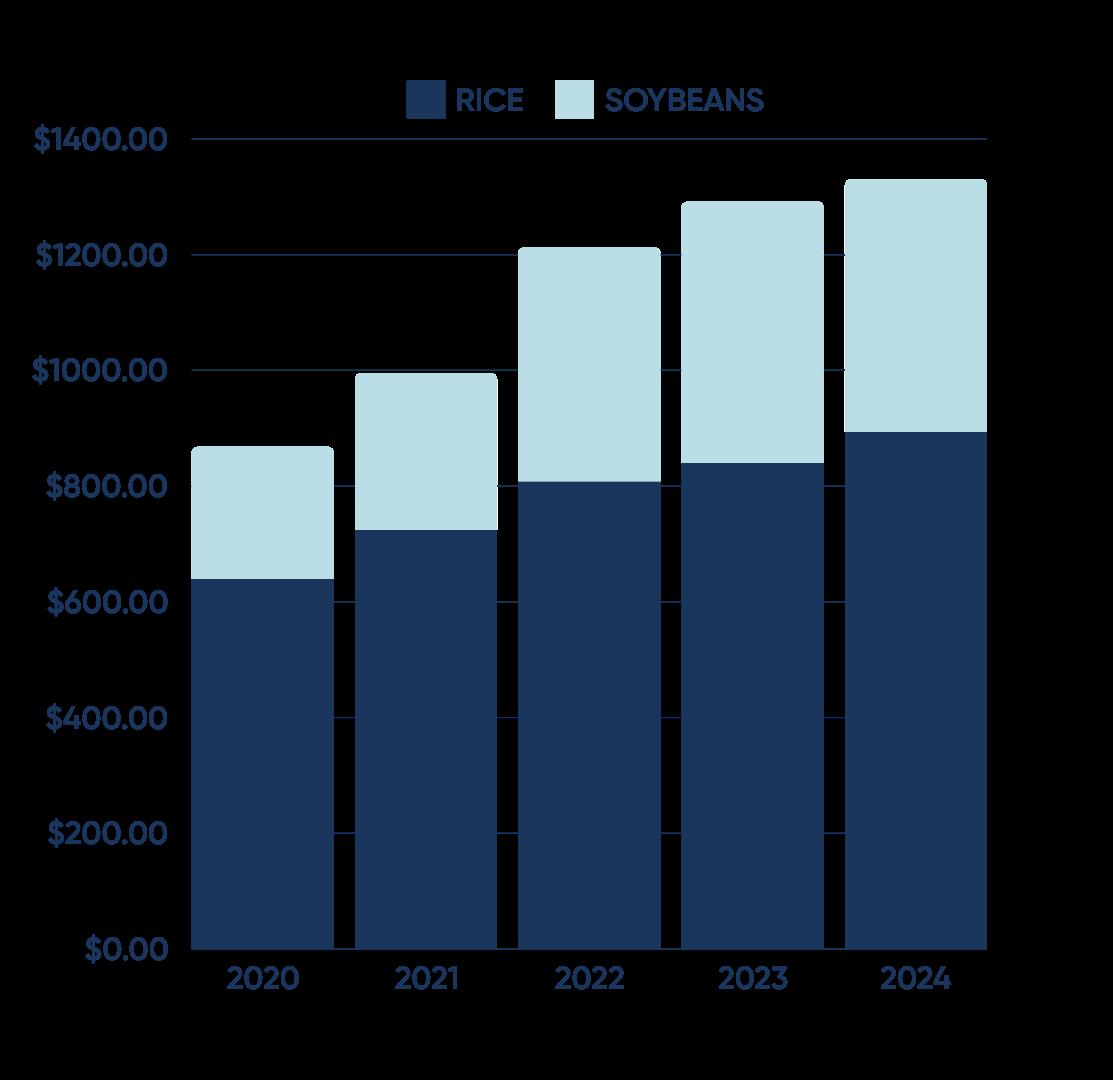


July 31, 2023 and 2024 (IN THOUSANDS)
Current Assets
Cash and cash equivalents
Accounts receivable
Inventories
Margin deposits
Other current assets
Total current assets
Current Liabilities
Commodity loans
Current maturities of long-term debt
Accounts payable Trade Other
Distributions due
Investments and Other Assets
CoBank equities, at cost
Investment in joint ventures
Right-of-use assets - operating leases
Right-of-use assets - finance leases
Other assets
Total investments & other assets
Property and Equipment, at Cost
and equipment
Construction in progress
maturities
Other long-term liabilities
Total long-term liabilities
Members’ and Patrons’ Equity Class “A” stock
Base capital credits
Retained earnings Accumulated other comprehensive income – pension liability
Total members’ & patrons’ equity
Total liabilities & members’ & patrons’ equity
Years Ended July 31, 2024 and 2023 (IN THOUSANDS)
Revenue
Sales
Ending inventory, at net realizable value
Beginning inventory, at net realizable value
Total Revenue
Costs and Operating Expenses
Purchases
Processing, warehousing, packaging and shipping
Selling, general and administrative
Operating Income
Other Income (Expense)
Interest expense
Equity in earnings of unconsolidated joint ventures
Other, net
Income Before Distributions to Patrons and Income Taxes
Distributions to Patrons
Income Before Taxes
Income Tax Provision
Net Income
Farming is more than a profession for Richard and Matt Morris—it’s a way of life passed down through the generations, beginning with their ancestors who first planted rice in the Grand Prairie region of Arkansas over a century ago. As part of the Merlin Morris Farms, this father-andson duo continues to build on a rich family legacy that has deeply influenced the state’s agricultural landscape, particularly in the rice industry. Their commitment to farming and to Riceland Foods reflects the perseverance, innovation, and passion that has sustained their family for generations.
Richard Morris, now 77, began farming in 1965 and has witnessed firsthand the evolution of agriculture in Arkansas. “This particular rice farm began in 1892. We’re the oldest rice farm in the state of Arkansas,” Richard shared, reflecting on the roots of their family’s farm. His grandfather, John Morris, planted the first rice crop in 1902, sparking a legacy that would shape the future of the region. “My great uncle William
Fuller planted the next crop in 1903, and that was the first commercial rice crop recognized in Arkansas,” Richard said, noting that the technology and knowledge for rice farming came from Louisiana.
The early years were challenging, with failures before success, but the Morris family persevered, driven by their belief in the land and the potential of rice as a cash crop. “They had to put down the first irrigation wells for rice here on the farm,” Richard recalled, a significant leap forward for their operation. The farm quickly became a landmark in the state, with people from all over visiting to witness the rise of Arkansas’s rice industry.
For Richard, farming has always been about more than just the crop—it’s about family and heritage. He took over from his father, and now his son, Matt Morris, has joined him, marking another chapter in the Morris family’s generational story. Matt, who has been farming for about 25 years, shares his father’s dedication.
“It just always felt like a way of life,” Matt explained. “Now my boys are out here working, and it just feels like that’s what we’re supposed to do.” Matt, like his father, understands the importance of innovation in farming. From introducing new technologies to refining their irrigation methods, the Morris family has
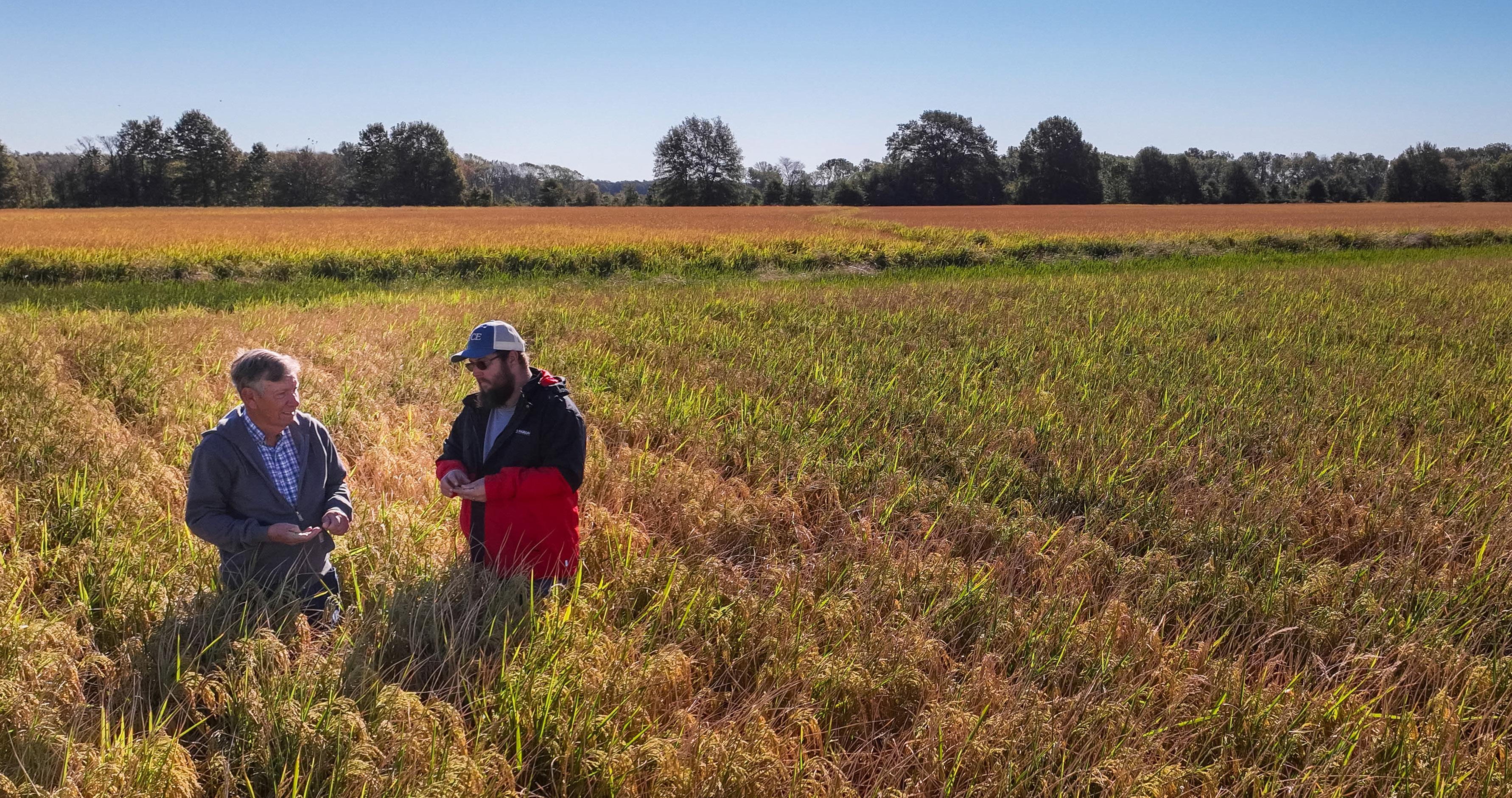
continually sought ways to improve their operation.
“We’ve got sensors for water depth, moisture, and flow,” Matt said, discussing the advances they’ve made in their rice farming techniques. “We’re able to monitor everything remotely, which makes it easier to implement practices like alternate wetting and drying, and it’s helped us cut our water usage by as much as 50 to 75 percent.”
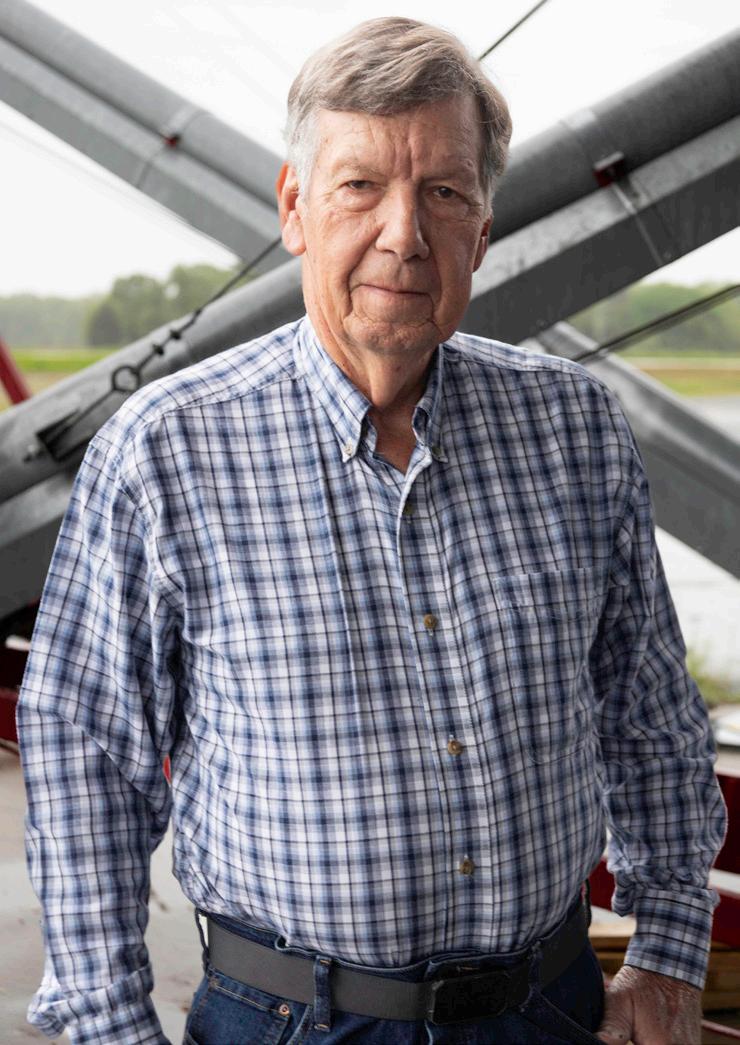
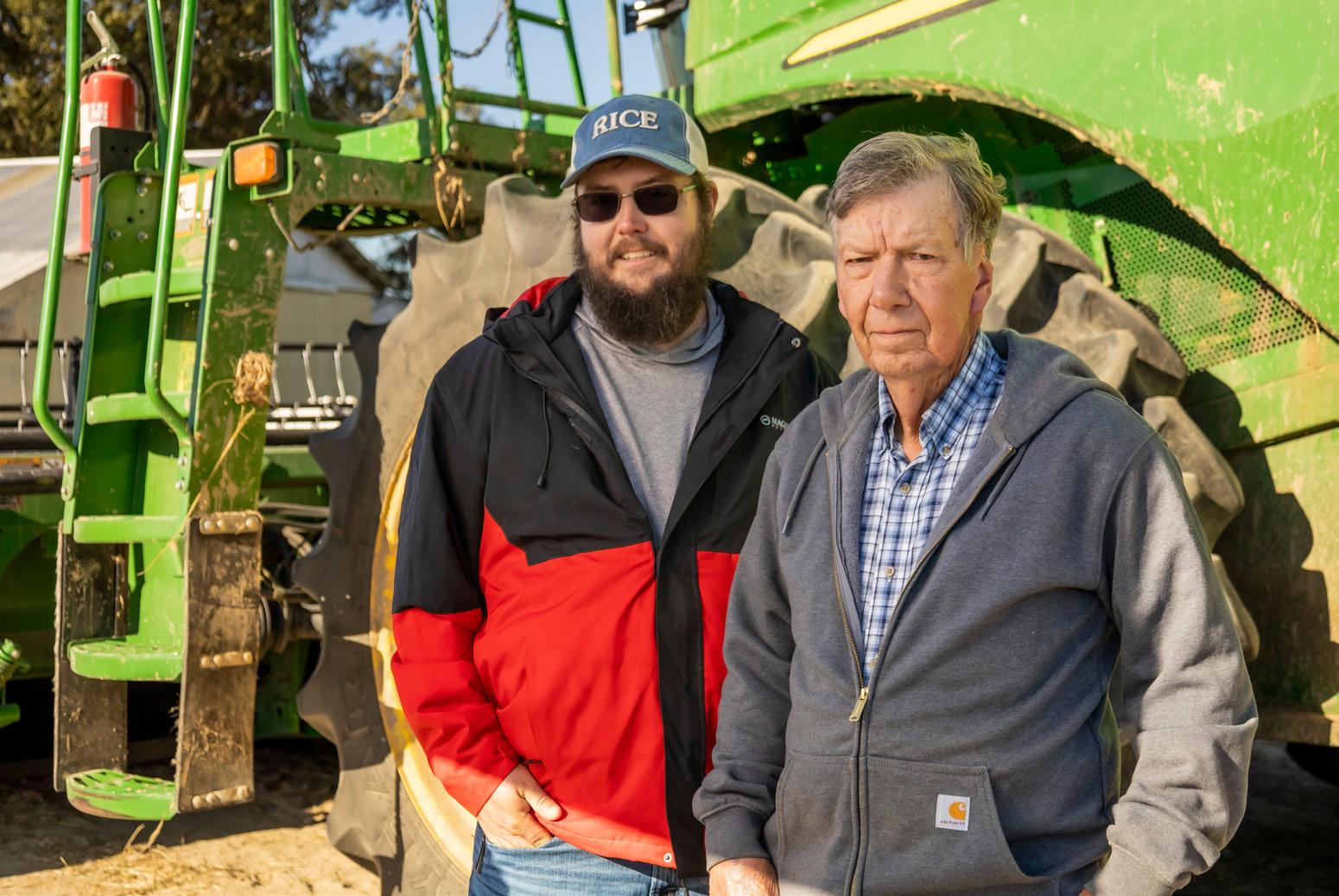
As they look ahead to the future, both Richard and Matt see the value of being part of the Riceland cooperative, which has been a constant in their operation since the beginning. For Richard, Riceland provided much needed stability during tough times. “In the 1970s, when rice was down to three dollars, Riceland was there to market our rice and get the best possible price on the world market,” he shared.
Matt echoes his father’s sentiments, appreciating Riceland’s forward-thinking programs that ensure a stable market and support sustainable farming practices. “We’re seeing good programs come out of Riceland, like the Carbon Ready program,” Matt said. “It’s nice to know that Riceland is thinking ahead, looking toward the future because that’s what my boys will move into.”
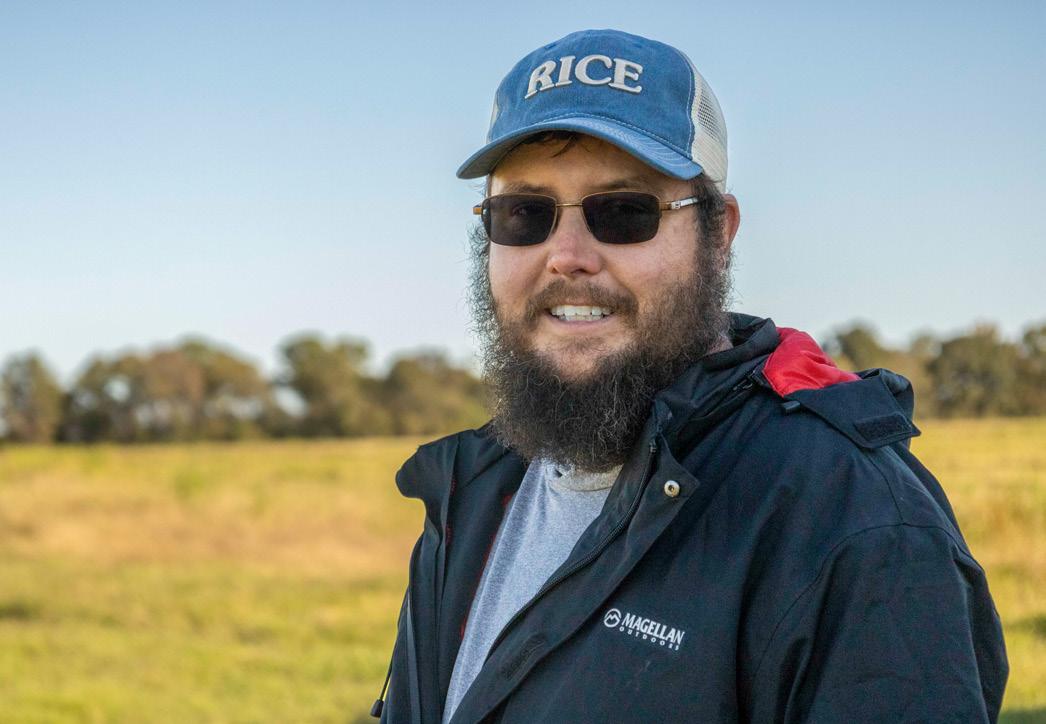
pushing forward. That’s what we do—we adapt, we evolve, and we keep going.”
“THAT’S WHAT WE DO - WE ADAPT, WE EVOLVE, AND WE KEEP GOING.”
As Matt prepares to take on more responsibility for the family farm, he does so with pride in the family’s history and a deep sense of responsibility for its future. “We’re always looking for ways to improve and grow,” Matt said. “Farming is more than a job—it’s our heritage, and it’s who we are.”
For the Morris family, farming is not just about today—it’s about preserving their land and legacy for future generations. “We just don’t give up,” Richard said with quiet determination. “My great-grandfather had a well put down in 1901, and even though they had obstacles, they kept
Together, Richard and Matt Morris embody the heart of what Riceland Foods stands for: a commitment to family, to farming, and to the future of agriculture in Arkansas. Their story is one of resilience, innovation, and the unbreakable bonds between generations that continue to cultivate success for both their farm and the entire Riceland cooperative.
The Risk Management umbrella covers Safety, Quality Assurance, Customer Compliance, Insurance Risk Management, Employee Benefits, Legal and Regulatory, and Corporate Governance. Each has unique attributes and challenges. However, all share a common goal of reducing risks that might cause physical or financial harm to the cooperative, its members, and its employees. When we do our jobs well, members can focus on producing great crops, and employees can focus on turning those crops into the products our customers want. Riceland is all about a community working together to feed the world safe and sustainable food.
Below is a glimpse into a few items our teams worked on in 2023/24 to support your cooperative.
In 2023/24, the team committed to eliminating potential hazards before they became lost time incidents through a program of targeted training and CAPEX projects. For example, Riceland held a grain bin rescue training course at our Newport Grain Drying Facility in conjunction with the Newport Fire Department, Newport Police Department, and the Jackson County Sheriff’s Office. Each year, our members and employees work in and around grain bins. While we work hard to ensure no one gets in a tight spot in a grain bin, having a coordinated emergency response team that
knows how to handle the situation is critical if it does occur.
One of our brave Newport employees volunteered to be lowered into the bin to be rescued by the training participants. The community involvement in this training event was spectacular. Numerous Riceland management and drier division staff members from across the state attended the training. After our employee volunteers mock rescue, we had a chance to say thanks with a meal and fellowship, an example of one of the many interactions with the community in 23/24 that helped strengthen your coop and improve the safety of all involved by training to deal with a potential risk.
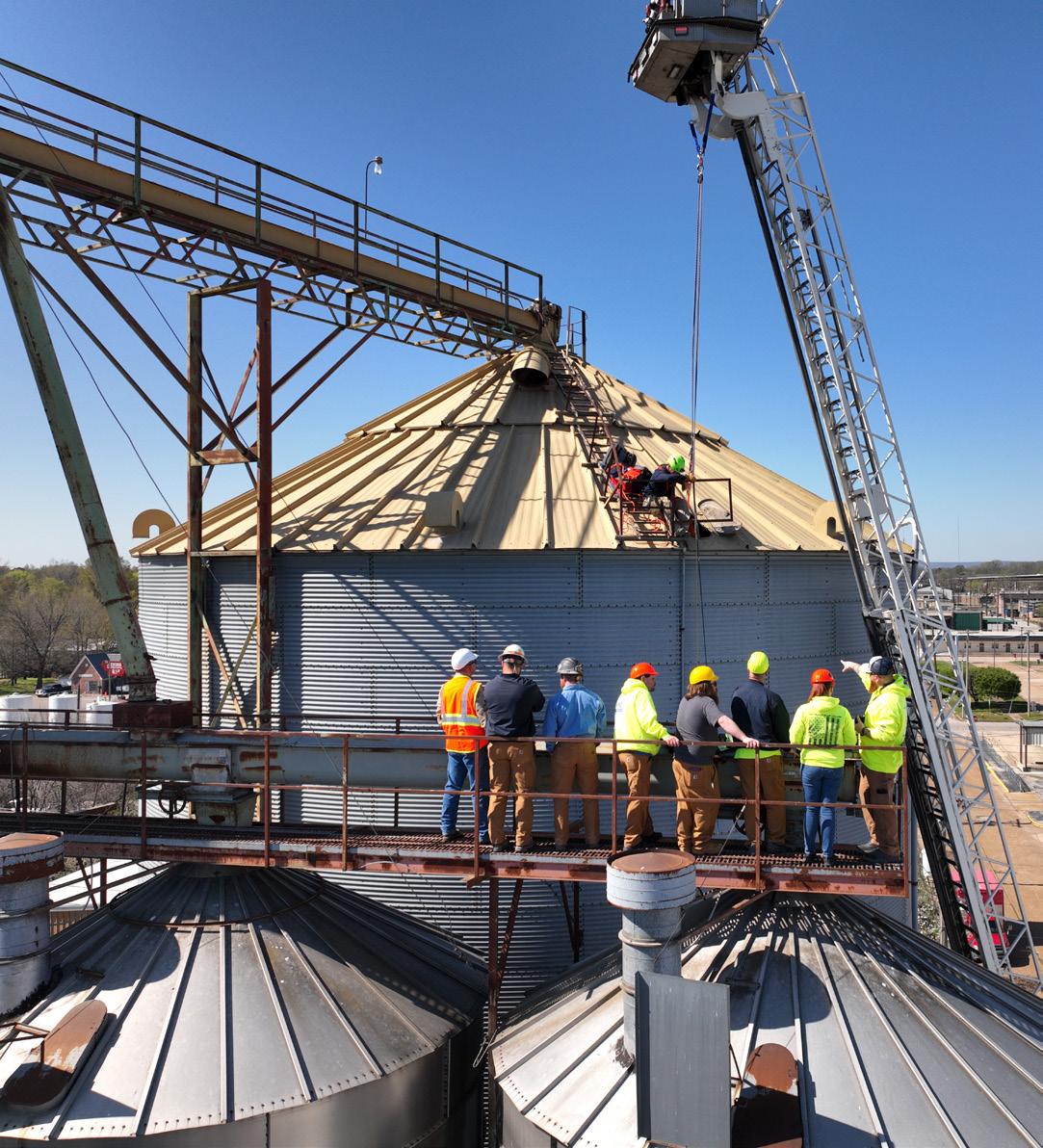
The team focused on improving our food safety defense related to foreign materials potentially entering our process stream in our plants. The team focused on improved communication with operational personnel and joint training sessions. The team is also evaluating several new pieces of equipment to help improve quality, food safety, and plant
efficiency, which would be the best of all worlds. Ultimately, the team focuses on creating wholesome food that meets customer specifications on time, the first time.
ANDREW DALLAS VICE PRESIDENT & LEGAL COUNSEL RISK MANAGEMENT
We continued to modernize our all-risk insurance program this year. We want the right coverage for the right price. As part of this modernization, we conducted an audit to ensure we had suitable property and equipment values data in light of the inflationary environment. We also hired Global Risk Consultants to conduct a risk analysis at our seven largest facilities to help identify issues and solutions to decrease property loss risks. These and other actions helped us achieve our goal of placing our insurance program for a modest premium increase while also increasing our coverage in key areas like cyber, product liability, and fiduciary liability.
"It’s awesome knowing that we’re feeding our family and the world. We might not have farmers markets to sell our products directly, but seeing Riceland rice on the shelves at the grocery store makes it real.
It’s a great feeling knowing that we’re making it to the consumer."
In line with our goal of providing best-in-class employee benefits at the most economical price point, in April 2024, Riceland changed its Employee Health Plans. Riceland adjusted premiums and deductibles slightly to react to inflationary cost trends. However, through vigorous negotiation, Riceland was also able to reduce copays for certain key types of care and classes of prescription drugs and add an air-evac benefit for employees.
Also, in June 2024, Riceland outsourced administration of the trustee, custody, and payroll responsibility of its Pension Plan to Principal Bank to improve Pension administration for our prior employees. Although there are challenges with any changes, and we had to overcome several during implementation, these changes will allow Riceland to address costs and continue the great health benefits our people deserve.
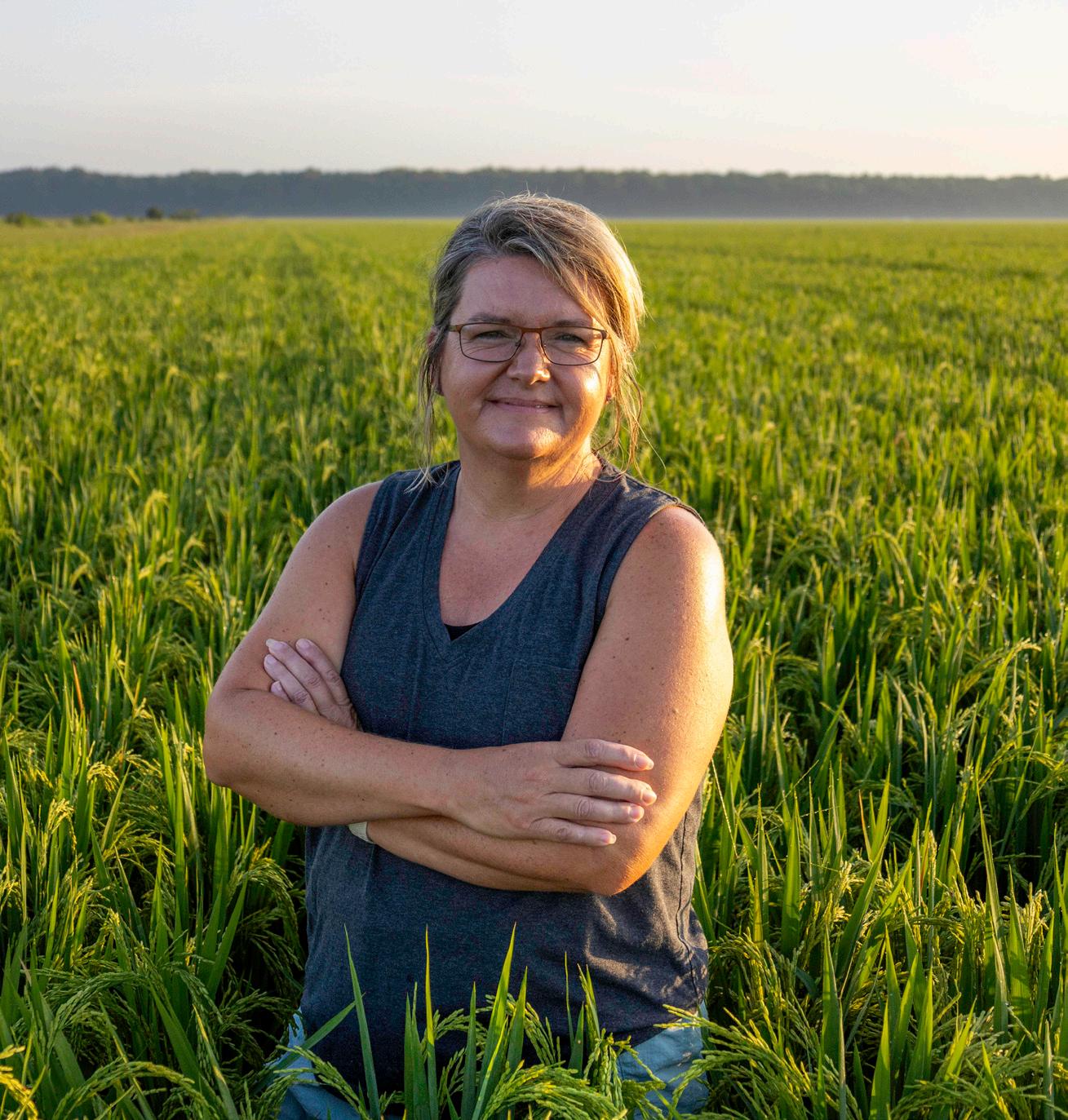
The past fiscal year has been rewarding for the Human Resources (HR) department, but it has been filled with a few challenges, as expected.
Our primary goals included process improvement, training and development, employee engagement, and remaining competitive in a highly competitive manufacturing and corporate environment.
We heard our employees’ desires and provided several new training initiatives and pilot programs. Several in-house produced lunch and learn training events, team buildings, and leadership and communication training from external experts (if you consider former Navy SEALs an expert) are a few examples.
The overwhelming response has been positive, and the employee base is yearning for more. We are reviewing all the feedback and will continue to offer new training and solution-based experiences this year.
In addition to in-house training, we have continued to maximize our partnerships with local colleges and universities and the Department of Workforce Development and participate in grant reimbursement training programs.

We have updated several policies and improved our process flow to be more efficient. Some challenges we have faced are increasing labor costs, spikes in employee turnover, and a challenging workforce population. We are focusing on adjusting our recruitment strategies to attract qualified candidates.
We recently completed an Employee Engagement Survey, and I’m excited to review the data and analyze the feedback. I’m thrilled to share that we set a goal to have a 70% participation rate, and I am pleased to share that our total participation rate was 71.67%! I’m glad our employees shared their voices and participated in the survey. Once we review the data, we will share the results and work on creating action plans.
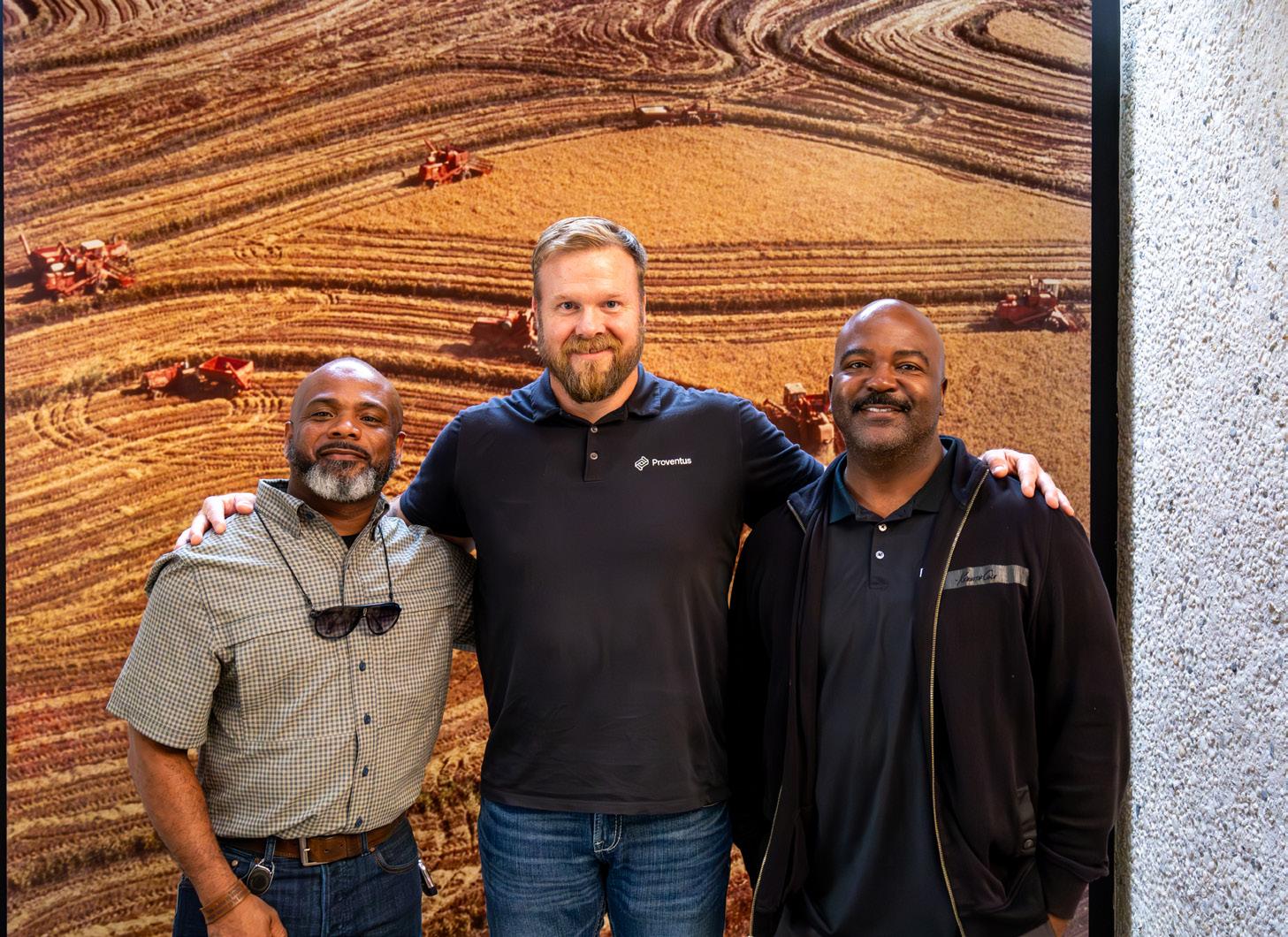
The HR department remains committed to aligning its strategies with the organization’s goals and driving positive outcomes. We will continue to cultivate connections through collaboration and look forward to continuing to take care of our people, our number one asset.
LIONEL RILEY CHIEF HUMAN RESOURCES OFFICER
Riceland was founded with the community at its roots. As a farmer-owned cooperative, our story is centered on our members. The Member Relations Committee, comprised of members of our board of directors, spent time restructuring our drier councils into a new district council system.
During the Winter District Membership Meetings in February, the team shared its plan to revamp the individual drier councils into a more robust district council system.
Through the support of the Board of Directors, the management team created a more engaging meeting format for the winter district meetings and set plans for the new district councils to meet more frequently throughout the year.
The goal of the district councils is to keep members across the districts engaged and connected in the cooperative’s functions and

connected. We were thrilled with the turnouts at both the winter and summer district council meetings, and we are excited to keep the momentum going in this new fiscal year.
We also launched RF Insights, which is member-specific content available exclusively in the Riceland App and through our monthly member emails. In this space, we share the latest news from our government affairs team, member-exclusive market updates from our grain merchandising team, and other important information.
You can find a link to all RF Insights updates in the Riceland App.
BILL FREE DIRECTOR OF MEMBER RELATIONS
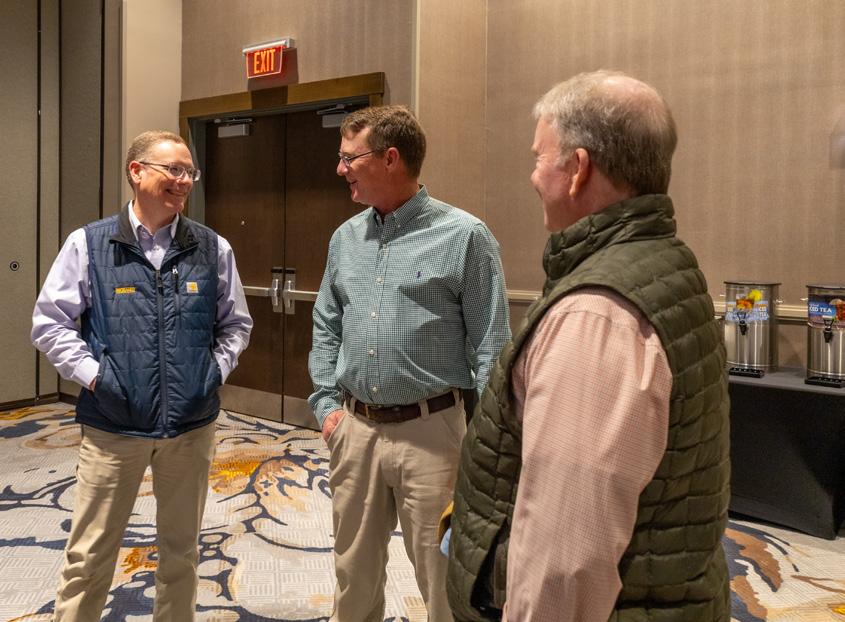
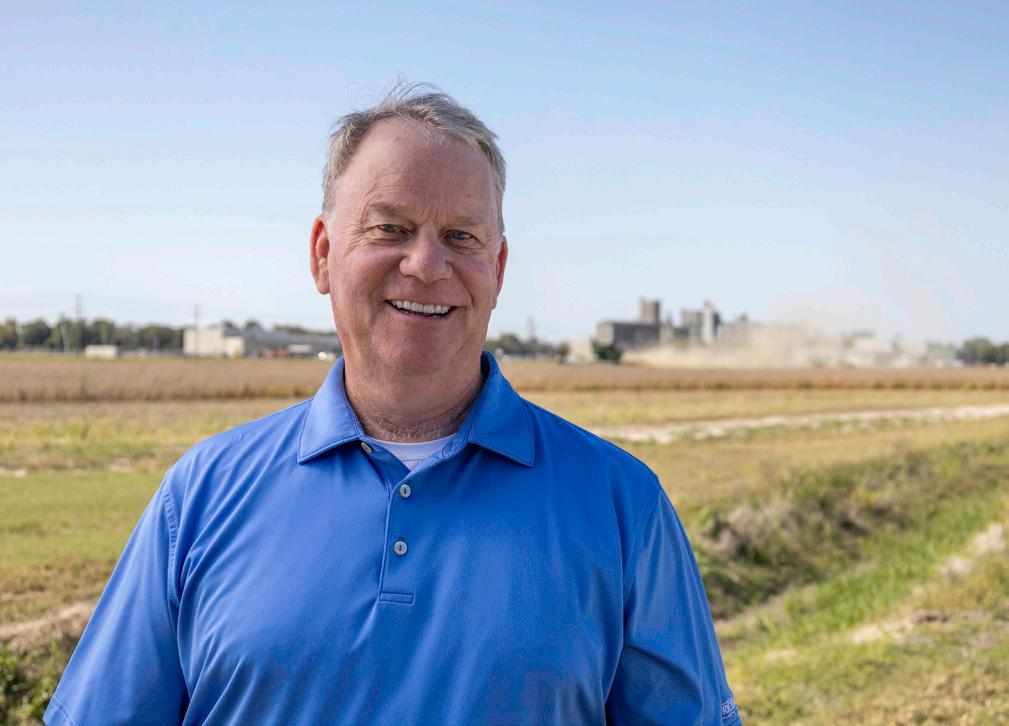
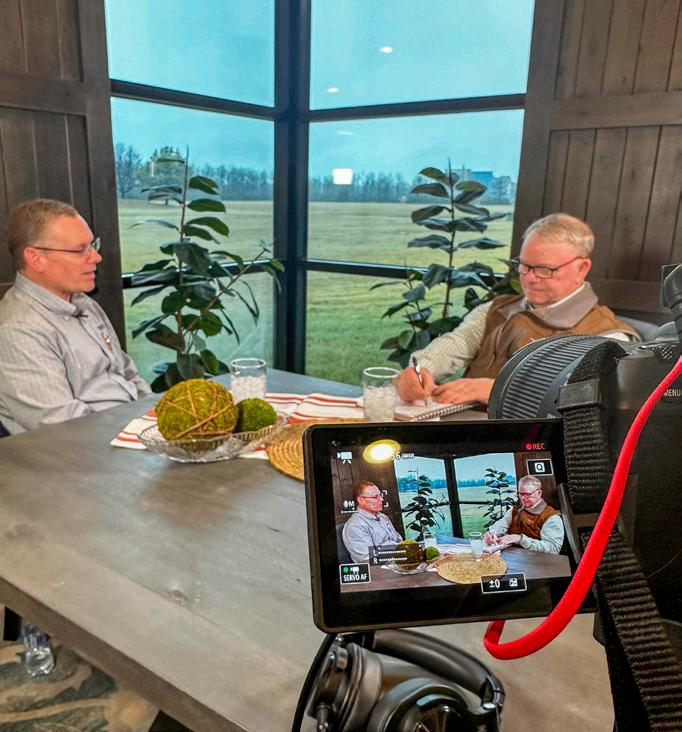
Rice acres rebounded strongly in 2023 after decreasing in 2021 and 2022. Rice yields were higher in Arkansas and Missouri than in 2022 but below record levels achieved in 2021. The larger production pressured rice prices but held up better than other commodities.
The 2023 harvest season saw a repeat of the challenging low water levels on the Mississippi River. The industry was better prepared for the challenges and didn’t see as much disruption as the previous year, even though river levels were lower. Dredging projects completed during the low water of 2022 paid great dividends.
Rice acres in 2024 are only slightly changed from the previous year, although long grain acres gained while medium grain acres declined. Rice export demand was strong in 2023, and we are optimistic that demand will
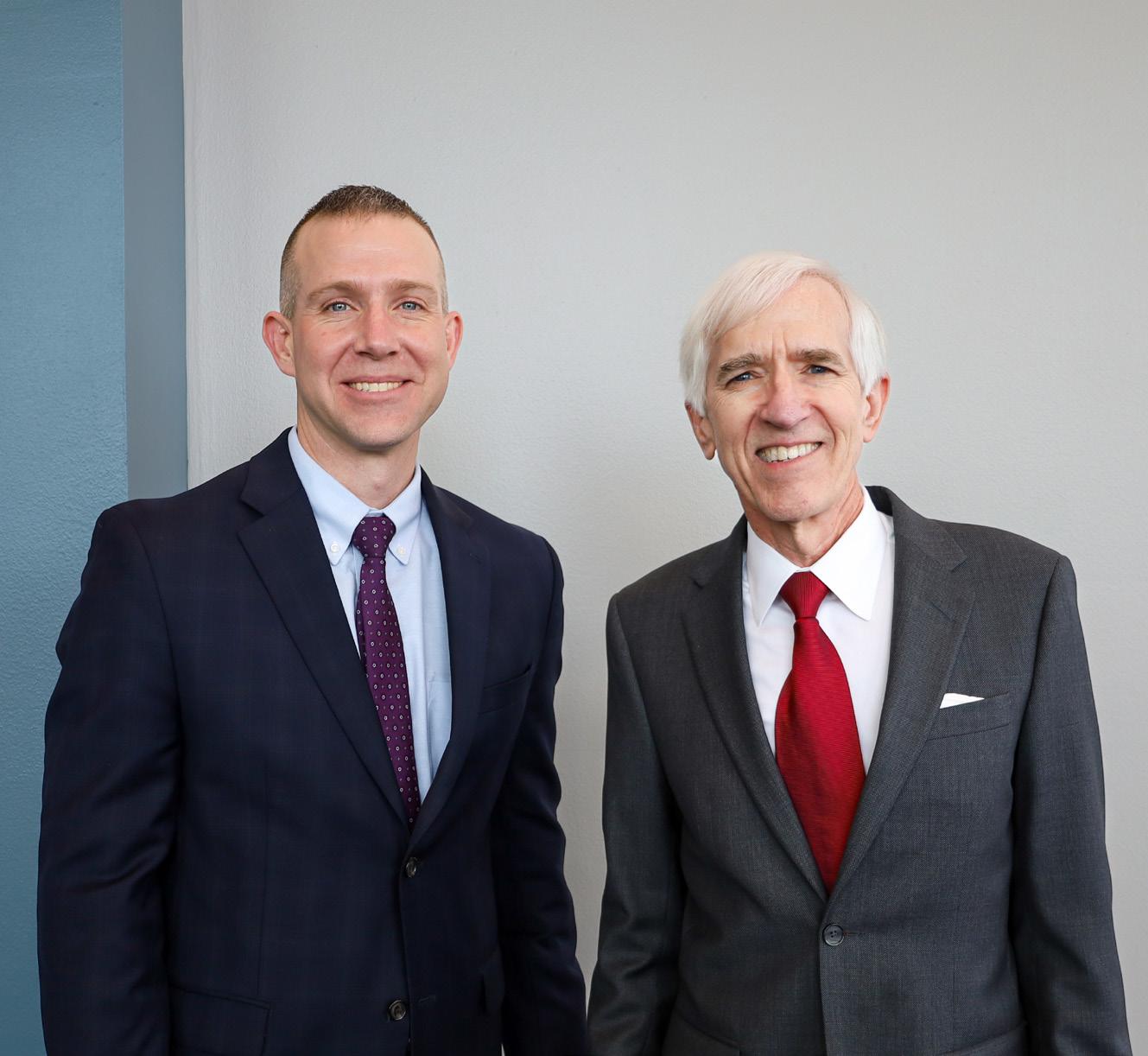
be good again as we continue to process and market your crops for a new crop year. Arkansas Soybean acres were down slightly in 2023, although yields set a new record at 54 bushels per acre. The soybean futures market has steadily declined throughout the old crop marketing year. Soybean crush margins have receded from record highs but are still historically good. Soybean meal demand remains strong, but soybean oil demand is less than expected. Crush margins will be under pressure as more US soybean crush expansion comes online.
We encourage you to try the Make Offer functionality to book your crops in the Riceland App. Members who have utilized the Make Offer function seem to like its convenience. The Grain Merchandising team is very thankful for your patronage and looks forward to navigating this year’s marketing challenges with you.
VP, GRAIN SALES AND PROCUREMENT
"My whole life I've been aware of Riceland Foods. If I go to my mother's kitchen window, I can see the Hazen Grain Drier down the road.
I grew up riding through the lines and attending membership meetings with my father and grandfather. Both served on the Riceland Board of Directors through pivotal moments in the industry. "
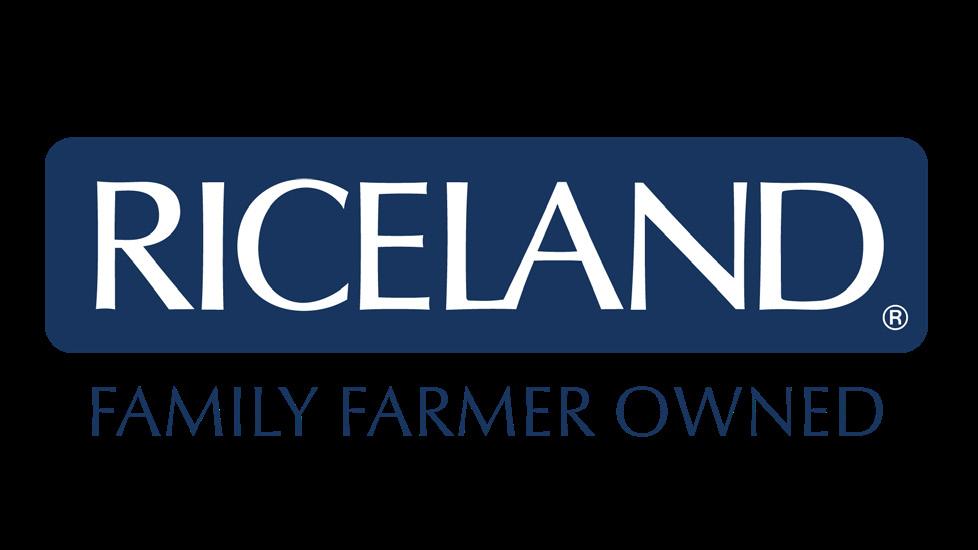
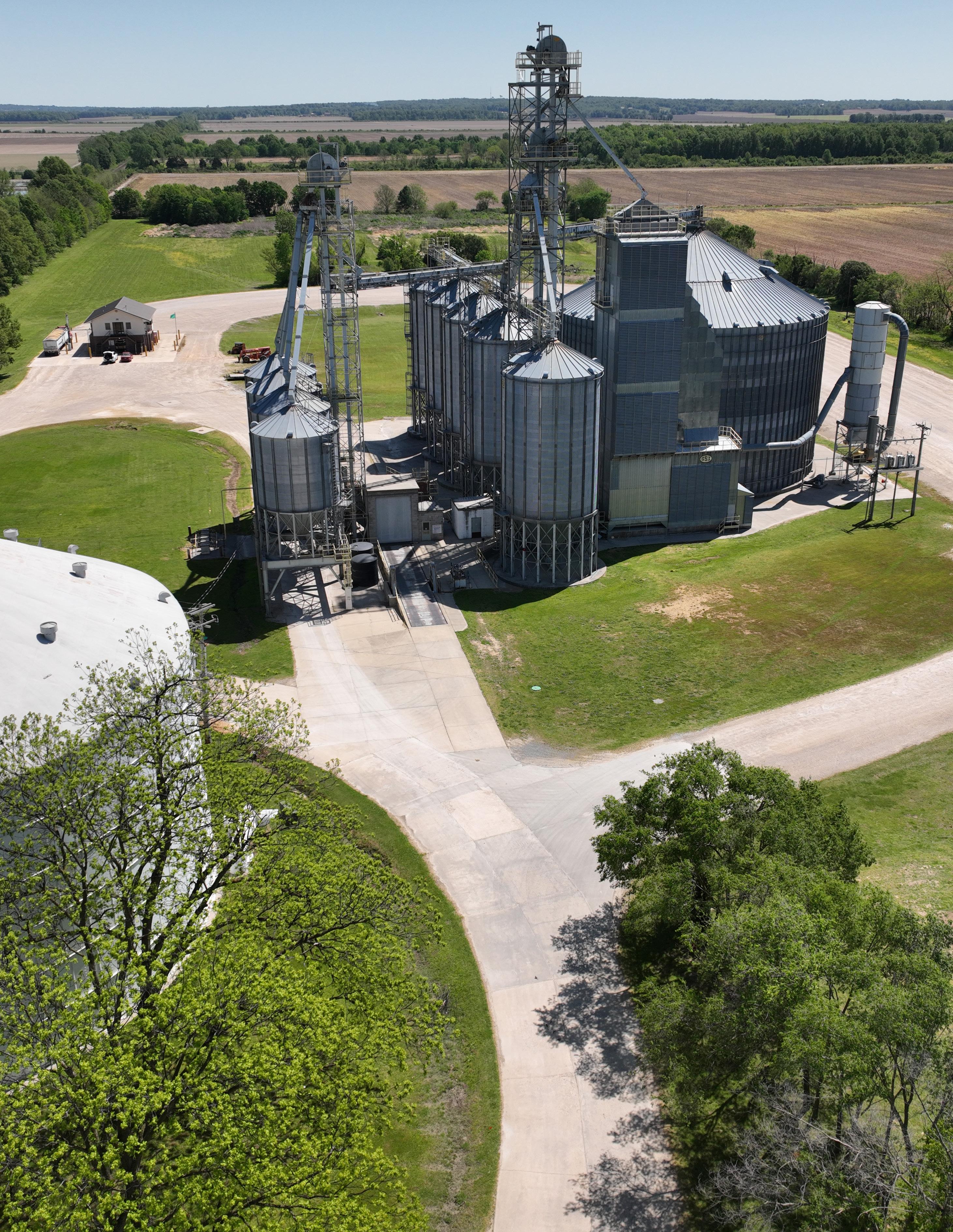
NEW MADRID
918 NEW MADRID COUNTY PORT NEW MADRID, MO 63869 870-259-3244
300 W. WOOTEN CORNING, AR 72422 870-857-3582
DES ARC DES ARC
708 HIGHWAY 11 DES ARC, AR 72040 870-256-4125
HAZEN HAZEN 1101 RICELAND LANE HAZEN, AR 72064 870-255-4531
HEADQUARTERS
HEADQUARTERS
2120 PARK AVE
STUTTGART, AR 72160
870-673-5500
DELAPLAINE
3342 AR-90 DELAPLAINE, AR 72425 870-249-3238
DUDLEY
10442 SOUTH ST. DUDLEY, MO 63936 870-624-5853
DUMAS
491 HIGHWAY 159 N. DUMAS, AR 71639 870-382-4828
FAIR OAKS
4 CR 503
MCCRORY, AR 72101
870-697-2277
GRIFFITHVILLE
FAIR OAKS GRIFFITHVILLE
106 JONES ISLAND RD.
GRIFFITHVILLE, AR 72060
501-323-4347
HICKORY RIDGE
HICKORY RIDGE
201 S. FRONT ST. HICKORY RIDGE, AR 72064
870-255-4531
JONESBORO
JONESBORO
216 GEE ST. JONESBORO, AR 72401 870-933-8231
755 MAIN ST. KNOBEL, AR 72435 870-259-3244
6321 RANCH DR. LITTLE ROCK, AR 72223 501-485-7006
815 W. 3RD LONOKE, AR 72086 501-676-6100
NEWPORT
200 PLUM ST. NEWPORT, AR 72112 870-523-6251
PARKIN
109 CR 819 HWY
PARKIN, AR 72373
870-755-5482
PENDLETON
271 HIGHWAY 212 E DUMAS, AR 71639
870-382-2198
POPLAR BLUFF
3295 CRAVENS RD POPLAR BLUFF, MO 63901 573-785-6821
STUTTGART
1200 N. PARK AVE. STUTTGART, AR 72160
870-673-5489
310 E. 1ST ST. TUCKERMAN, AR 72473 870-349-2254
6854 HIGHWAY 956 WEINER, AR 72479 870-934-3015
137 EWEN RD. WEINER, AR 72479 870-684-2217
133 DENNIS ST. WHEATLEY, AR 72392 870-457-3211

With the growing demand surrounding organizational climate initiatives, the Riceland Carbon Ready program offers Riceland farmer members the opportunity to generate climate solutions by implementing sustainable farming practices.
Through this program, members can capture, quantify, and market farm-level data to create environmental assets. CPG and retail companies within the agricultural supply chain then purchase these assets to help meet their emissions reduction goals. The program has proven successful and has been positively embraced by our farmer members. It rewards those currently implementing sustainable farming practices and equips them with the tools and support necessary to adopt new sustainable methods in the future.
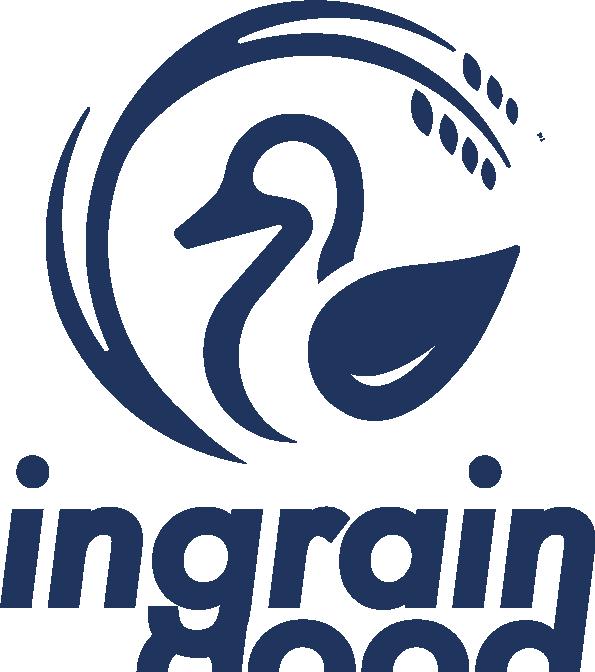

"The program helps identify how different management practices can help us produce our crops in a more climate friendly way.
I had the confidence Riceland had done their due diligence to develop such a program and select the right partners to bring value to the program participants."
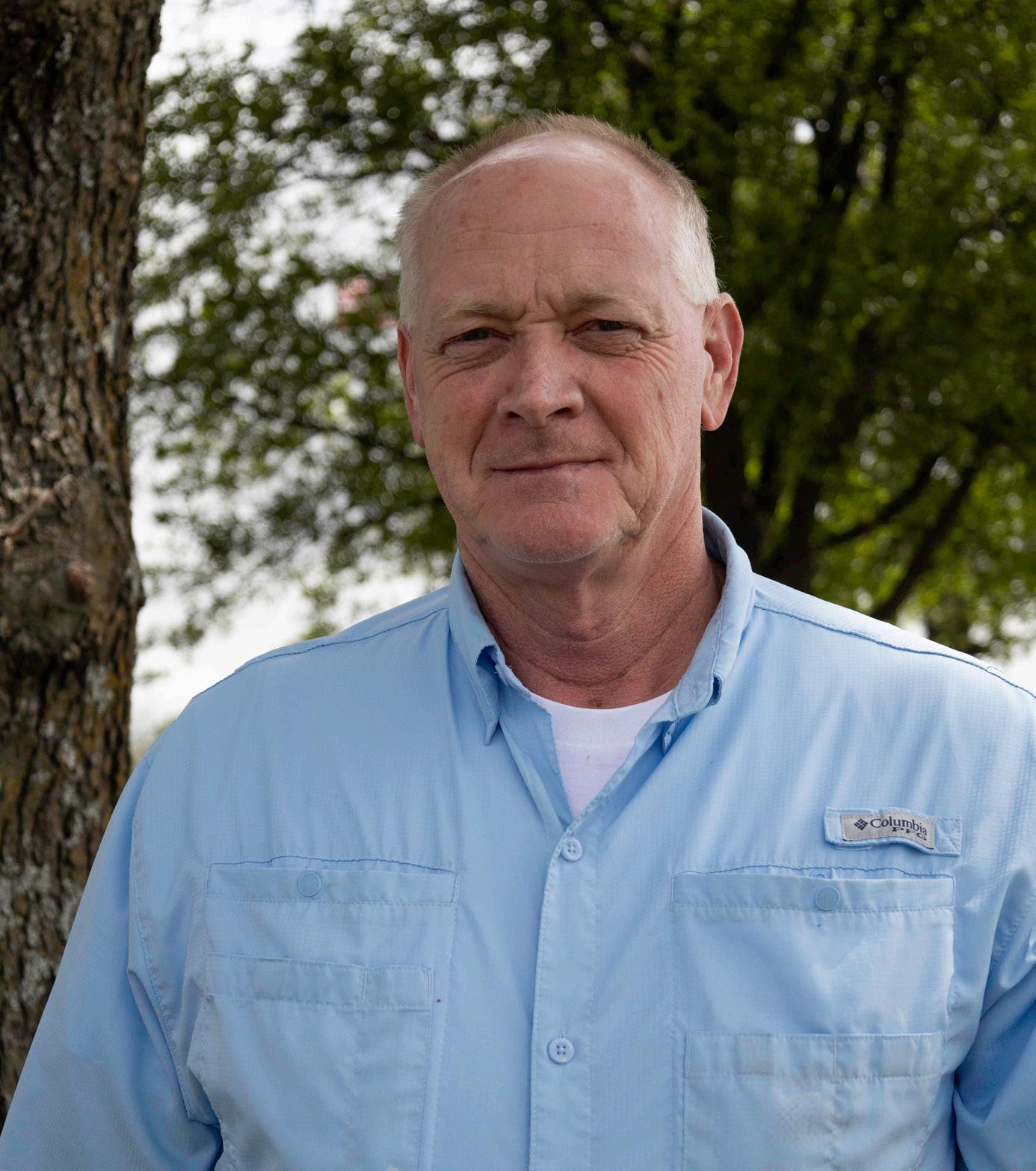
$4 MILLION IN
Riceland Foods distributed over $4 million to its farmer-members enrolled in the 2023 Riceland Carbon ReadyTM program. Through this program, Riceland farmer-members are not only utilizing sustainable practices but are being rewarded for them.
Our team is focused on growing the program and seeking out additional opportunities for climate smart practices to be showcased on the farm and throughout the supply chain.
400% INCREASE IN FARMER ENROLLMENT

$
1,249%
1,235% INCREASE IN ACREAGE INCREASE IN FARMER PAYOUTS

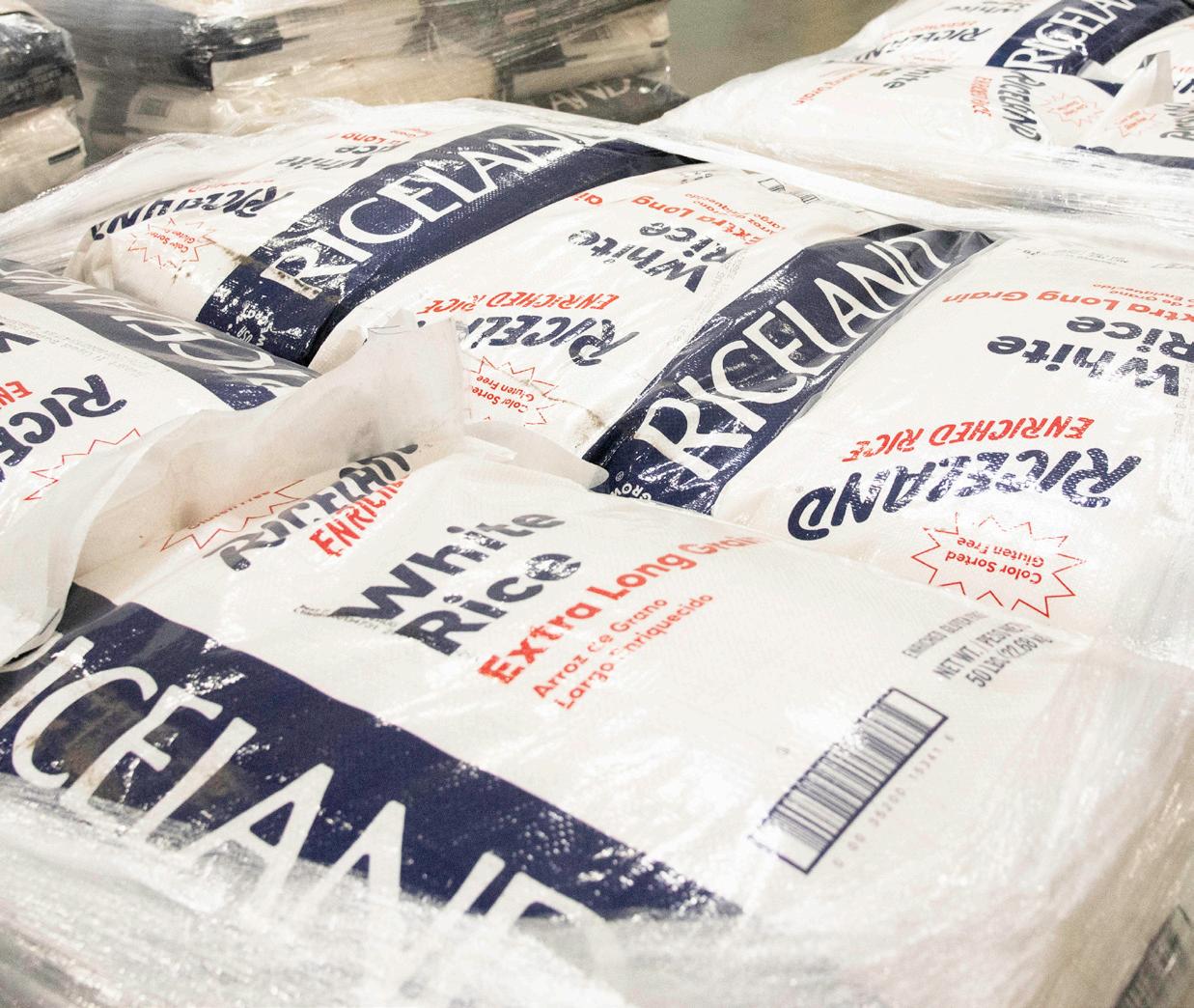
As we reflect on the 25th anniversary of the Riceland Foods Foundation, I am filled with gratitude for the work we’ve accomplished and the communities we’ve touched across the Arkansas Delta and Bootheel of Missouri.
Over the past quarter-century, the Foundation has given nearly $2 million in grant awards and donations, all with a singular mission: to give back to the communities that support our cooperative and the farmer-members we serve.
Today, the Riceland Foods Foundation has become a cornerstone of support for numerous projects and organizations. As a regional philanthropic organization, we strive to improve access to essential services, cultivate educational opportunities, create community resilience, and invest in the future of agriculture across our cooperative footprint to continue feeding the world, sustainably.
This year, we have continued to invest in key areas that matter most to our communities:
Supporting initiatives that directly impact production agriculture and environmental stewardship, such as agricultural research, employment opportunities, and partnerships with organizations like 4-H and FFA.
Investing in projects that enhance the quality of life in our communities, such as support for first responders, arts and culture initiatives, community facilities, and volunteer services.
Providing scholarships and supporting educational programs that benefit our farmer-members and youth within our footprint, including youth athletics, leadership development, and the new Riceland Foundation Scholarships.
Focusing on essential services, such as food banks, pantries, and healthcare access improvements, to ensure that the fundamental needs of our communities are met.
We are particularly proud of our ongoing commitment to supporting projects like the Arkansas FFA, the Children’s Advocacy Centers of Arkansas, the Rice Stewardship Partnership, and local food banks, among many others. These partnerships and projects are a testament to the diversity of our giving, ensuring that our communities’ unique needs and rich cultures are celebrated and sustained.
The Riceland Foods Foundation’s impact has been amplified by contributions from CoBank, alongside Riceland Foods, Inc., and we are actively seeking to expand our base of supporters. By welcoming new partners and investors, we aim to increase our reach and deepen our impact, ensuring that we continue to serve as the primary charitable giving source for Riceland Foods, Inc. and our farmermembers.
Looking back on the past 25 years, I am reminded of the lives we have touched and the communities we have strengthened. It has been an honor to witness firsthand the transformative power of our giving. Looking ahead, we are excited to continue sharing the stories of the Riceland Foods Foundation’s impact and expanding on the incredible work that has been done. We believe that by investing in our communities, we invest in
our collective future. We invite you to join us in this journey, whether as a partner, donor, or advocate, to help us build a stronger, more resilient, and thriving future for the communities we call home. Together, we can make a lasting difference and cultivate together.
DIRECTOR OF SUSTAINABILITY EXEC. DIRECTOR, RICELAND FOODS FOUNDATION
Riceland Foods and Arkansas FFA have a longstanding partnership that has spanned decades. We recently had the opportunity to sit down with Jason Binz, Arkansas FFA Executive Secretary, and Jacob Marek, Event Planner & Leadership Development Coordinator, to understand the partnership’s impact on the Arkansas FFA mission.
“IT
IS OUR RESPONSBILITY TO HELP OUR HIGH SCHOOL STUDENTS MEET AND EXCEED THE EXPECTATIONS OF THE MODERN AGRICULTURAL WORLD.”
- JASON BINZ, ARKANSAS FFA EXECUTIVE SECRETARY
Before joining Arkansas FFA, Binz was an agriculture education teacher and saw firsthand the organization’s impact on its members.
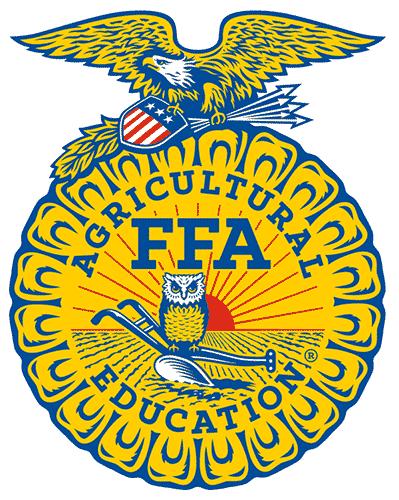
Arkansas has a diverse agricultural landscape, from livestock to row crops to specialty operations. By developing and nurturing robust partnerships, the organization can provide opportunities
like mentorships and hands-on experiences. Binz summarizes, “A student may not work directly on a farm, but could start a career in equipment sales, at Riceland, or as a field technician. A fundamental understanding of agriculture is critical.”
The recent renovation of the Marion D. Fletcher Center was made possible by partnerships like the one with Riceland and is critical in providing opportunities for those involved in Arkansas FFA. “This space is pivotal as it allows for increased learning opportunities, not only for our students but for our teachers,” says Marek.
Thousands of students and teachers come to Camp Couchdale in Hot Springs each summer for various camps and trainings focused on new technologies, trends, and increasing industry knowledge. Marek highlights the connection between the Arkansas FFA and Riceland Foods missions: “Those who attend the camps can grow and continue to cultivate a positive difference in the Arkansas agriculture industry.”
The Riceland Foods Foundation values its partnerships and looks forward to the next 25 years of industry connections and community impact.

The Grow Good Award is the standard of excellence we hold for our team members. This prestigious award is awarded to the team members that go above and beyond for the team.
They have an outstanding work ethic, always take time to help others, maintain a positive attitude, represent Riceland well inside and outside the workplace and just add good to everything they do.
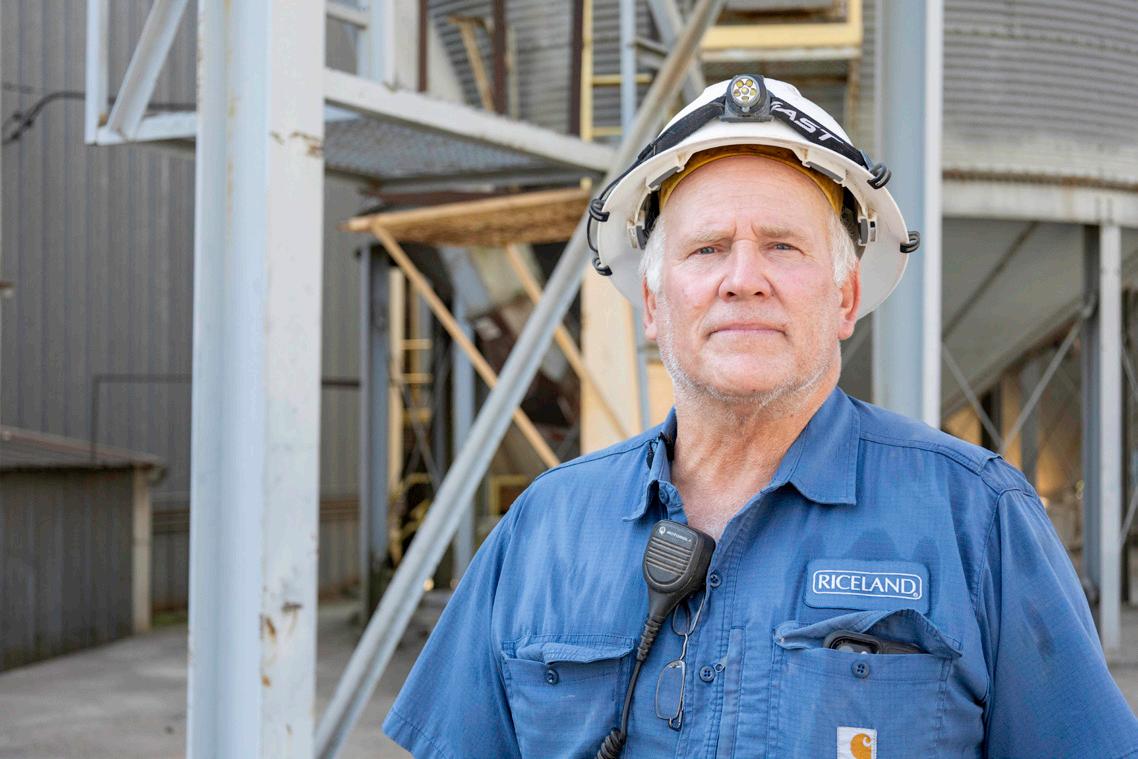

CORTNEY SCOTT HEADQUARTERS, R&T, T&E
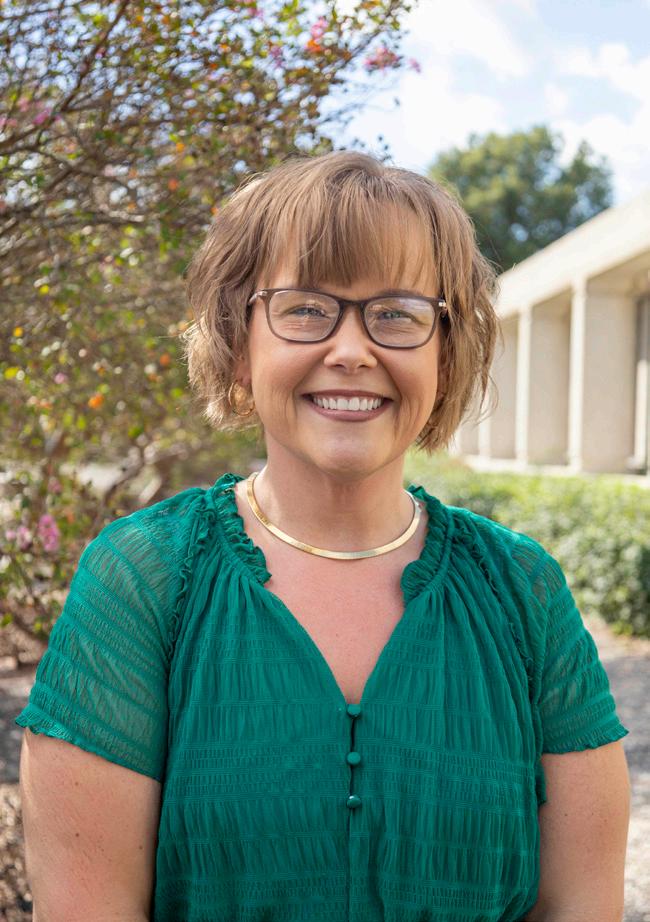

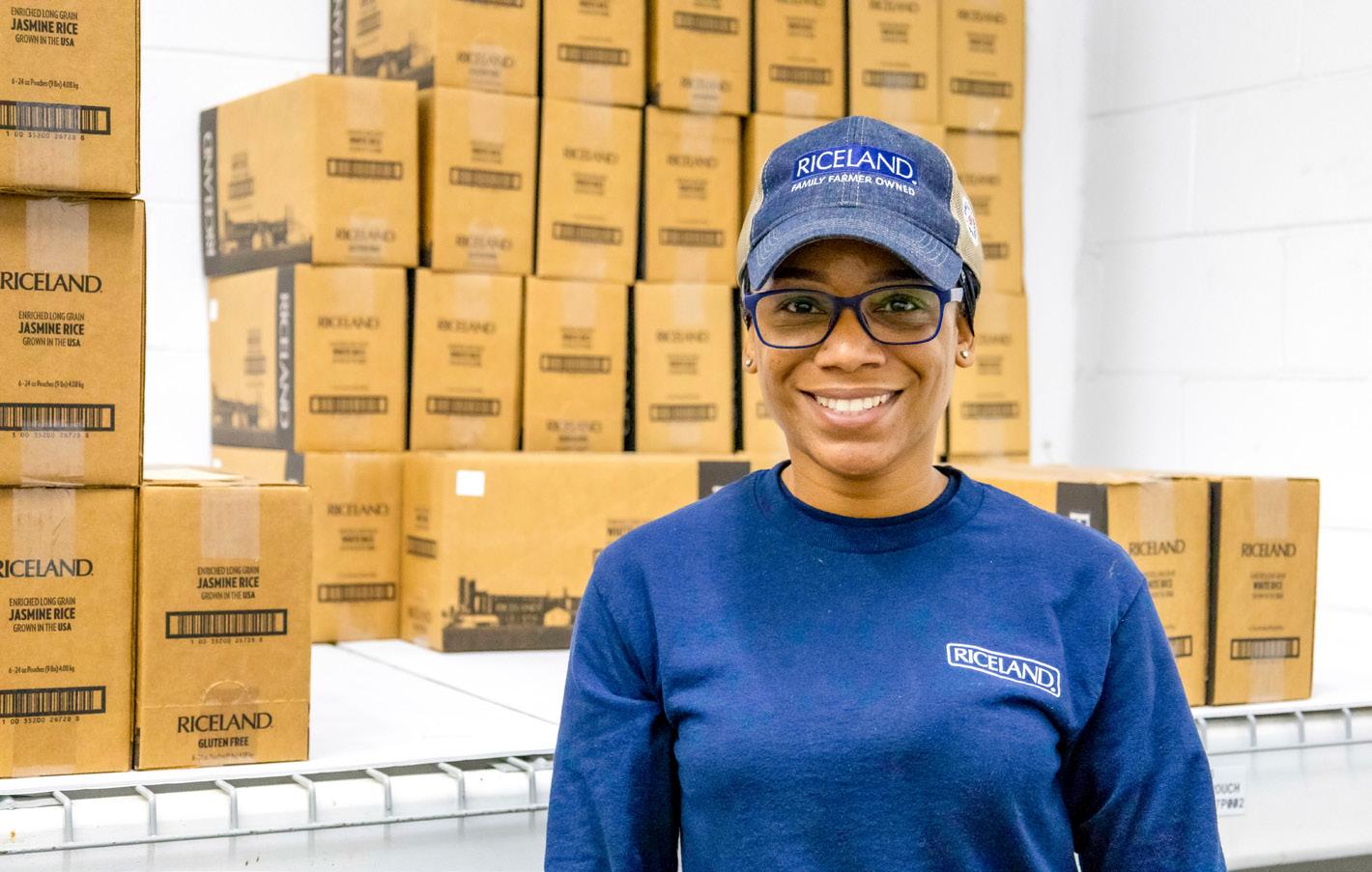
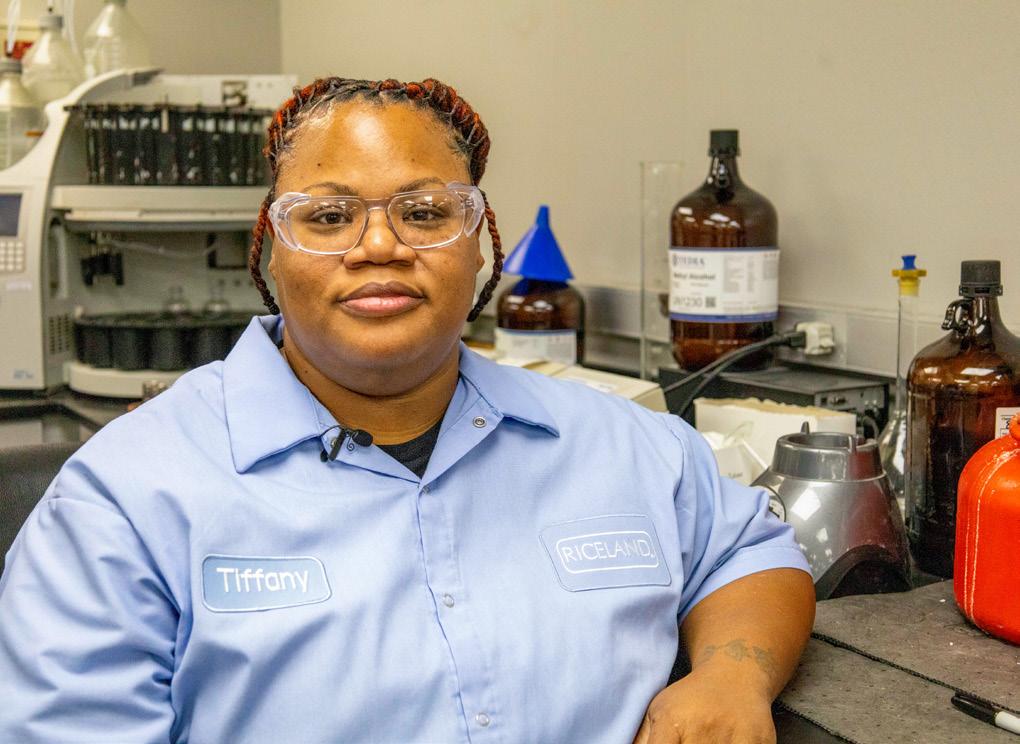
TIFFANY REEVES STUTTGART SOY DIVISION
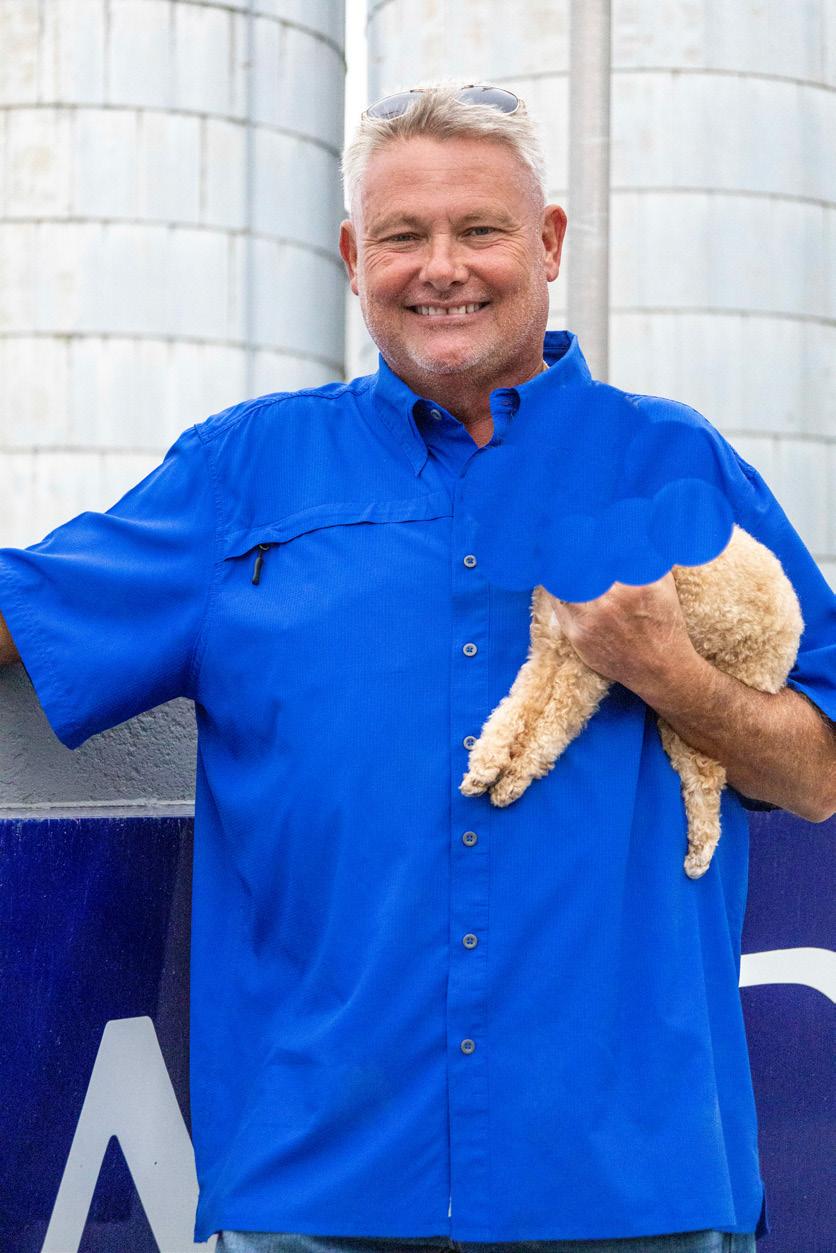
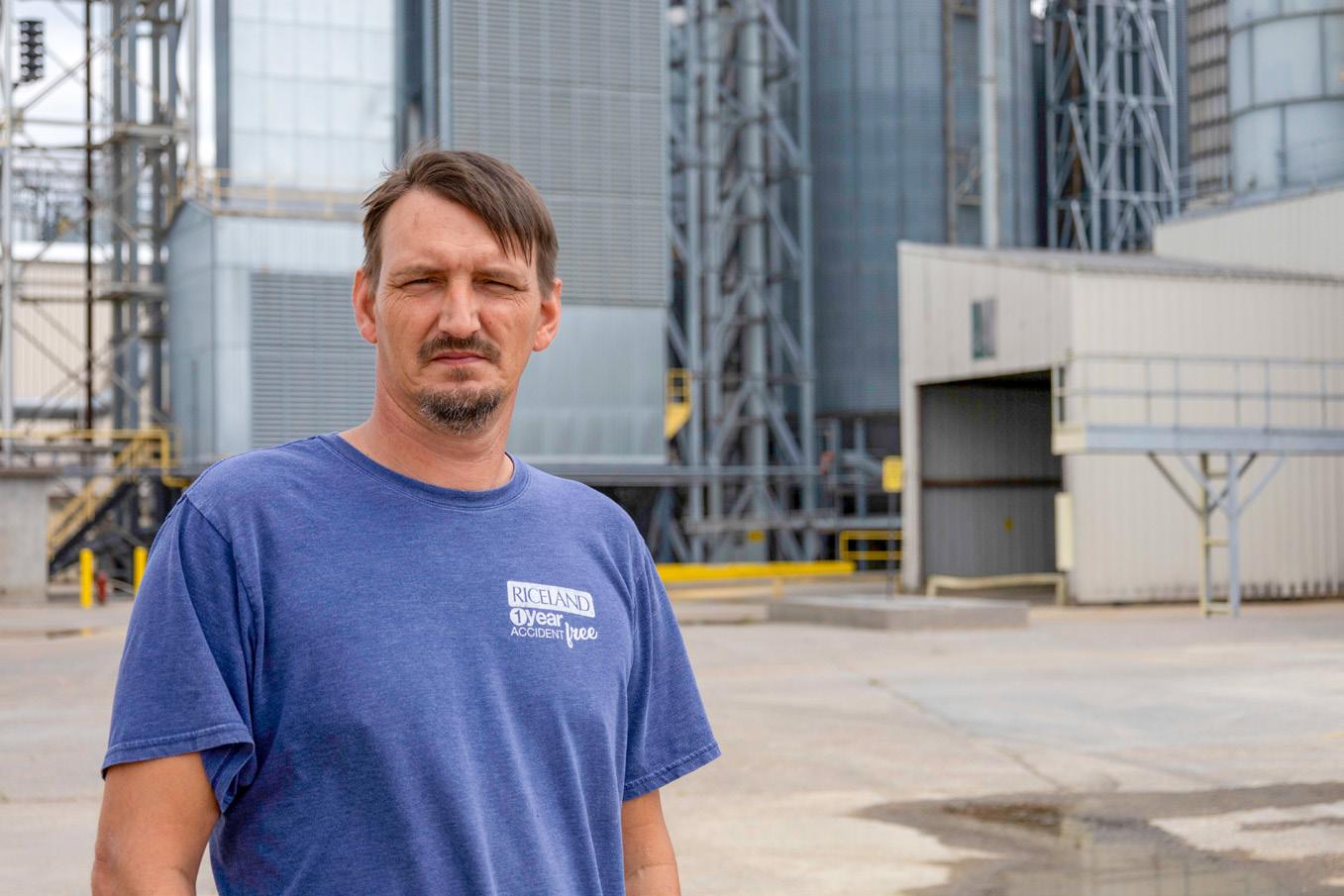
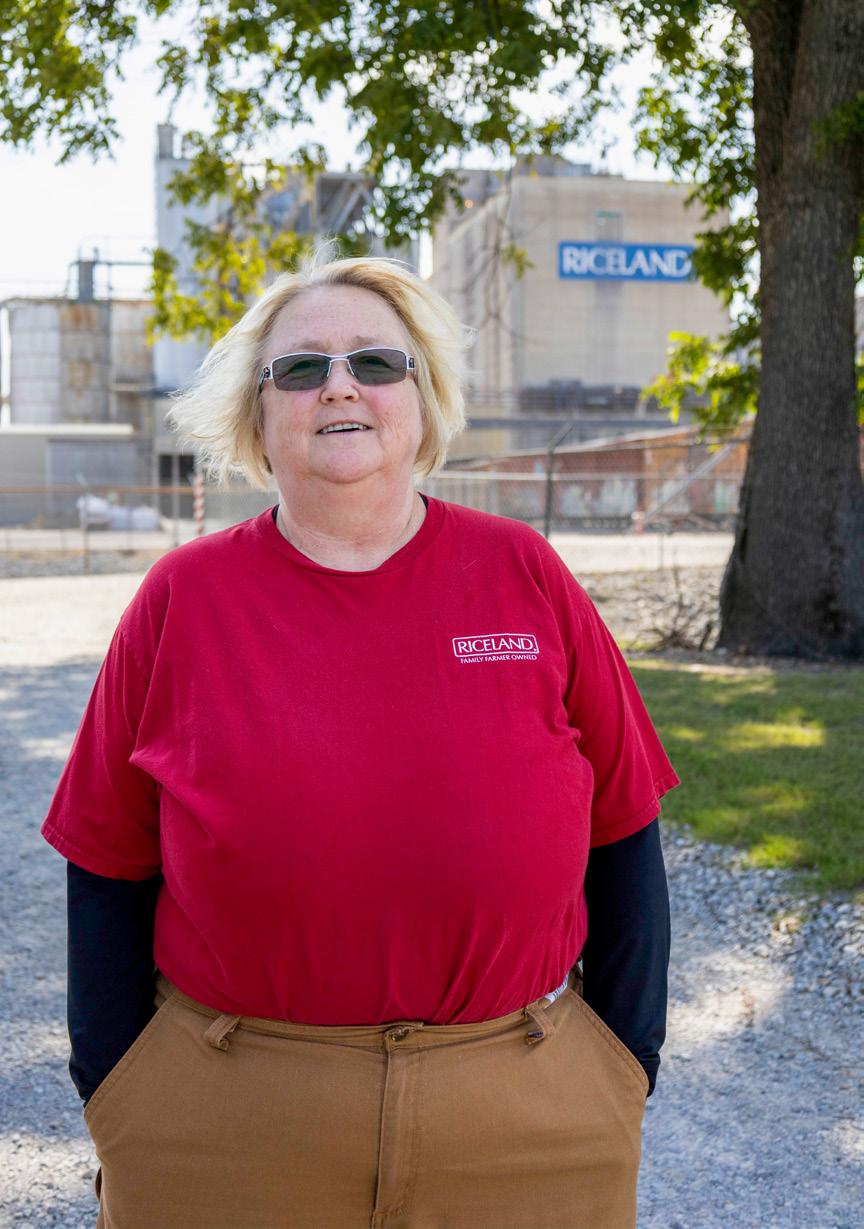
JIMMY BRUMLEY NORTHERN DRIER DISTRICTS - NEWPORT
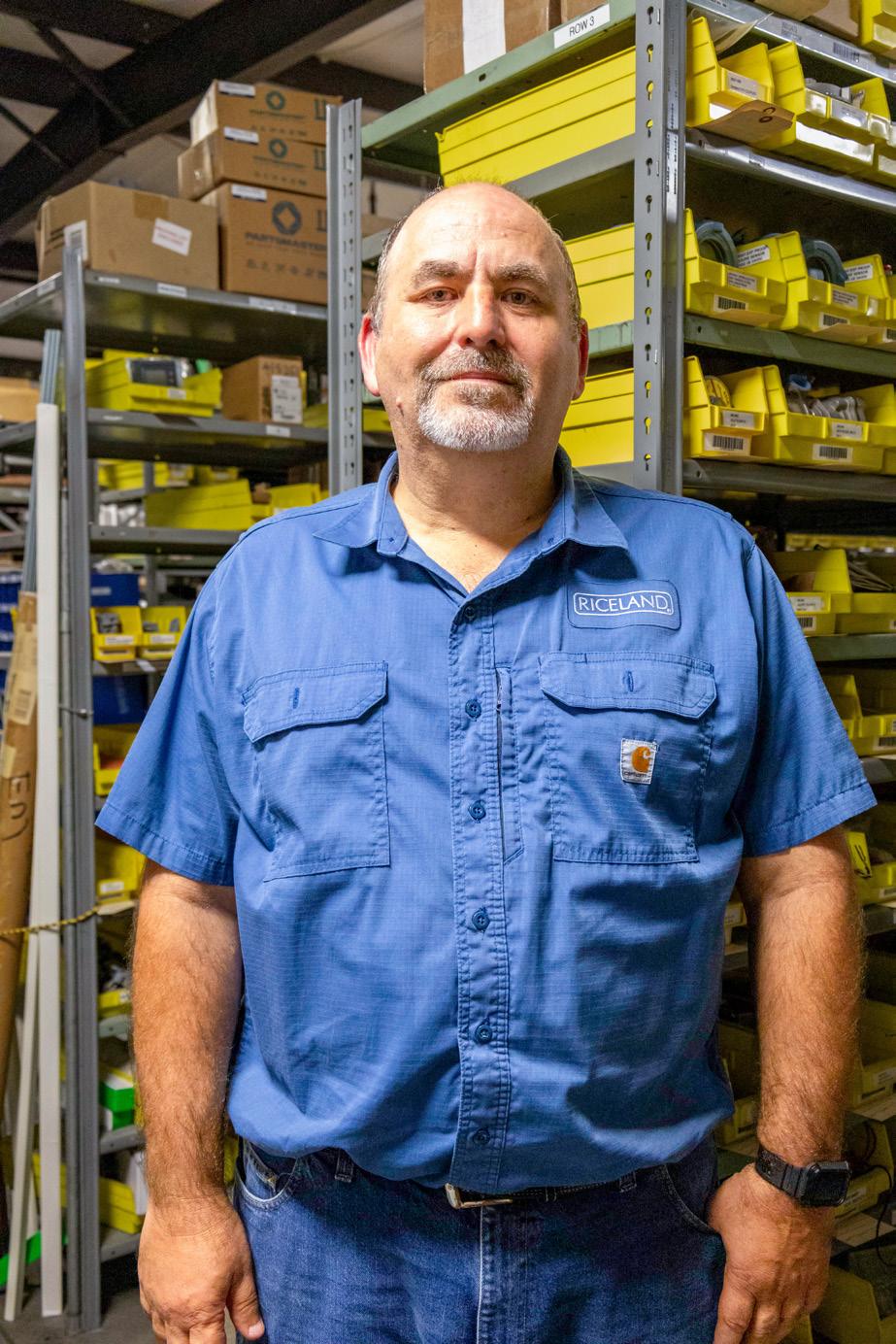
ROBERT CHIDISTER STUTTGART SOY DIVISION
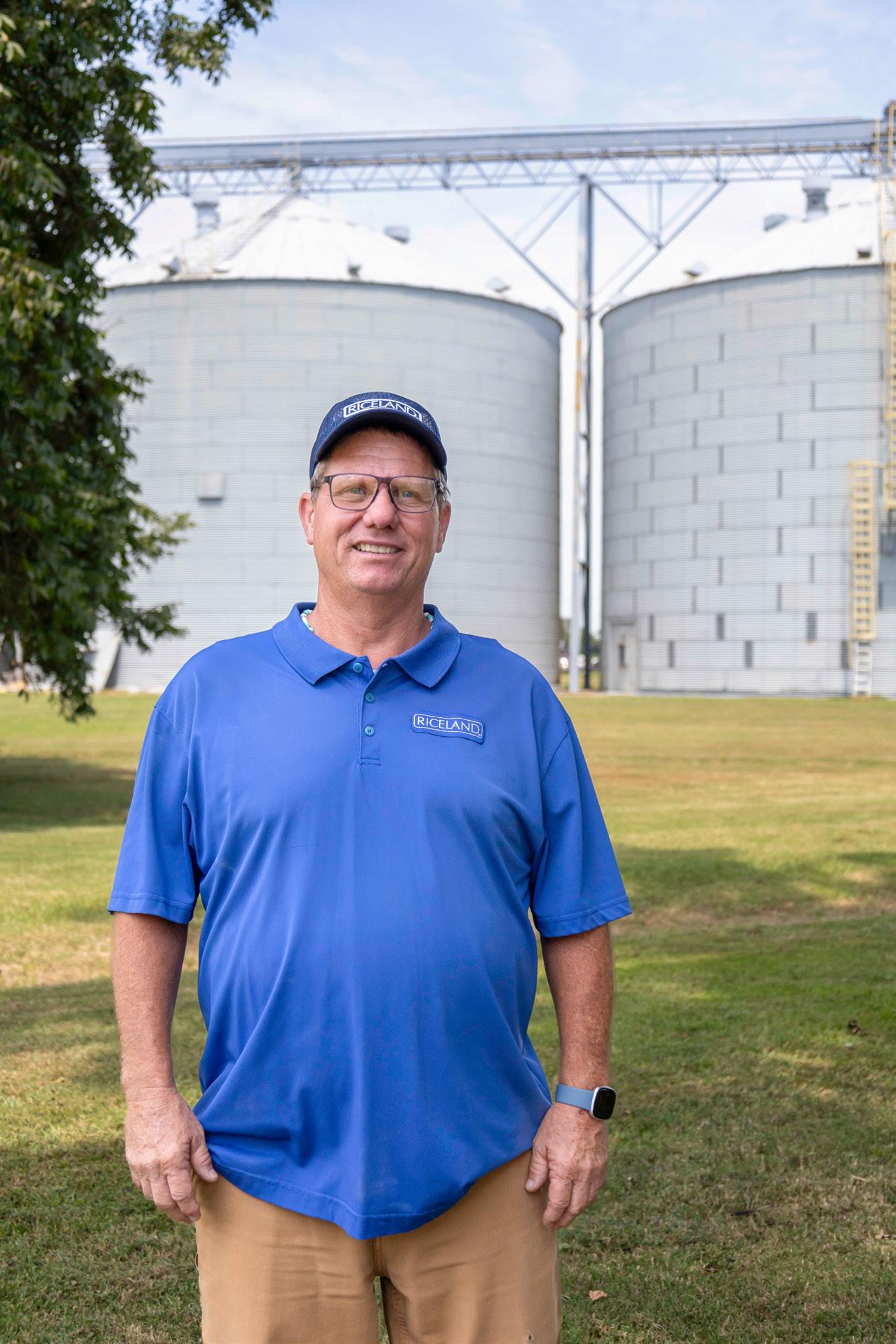
MADRID RICE DIVISION
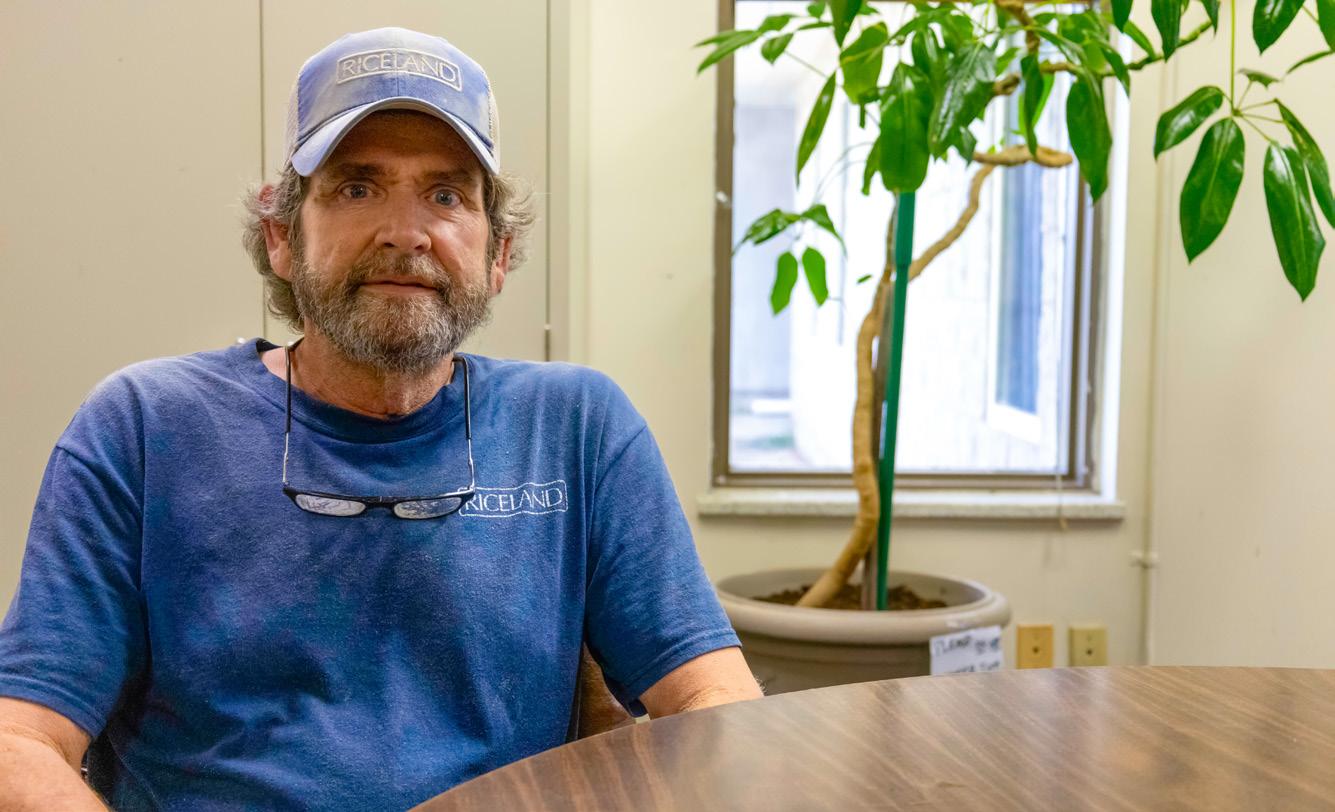
ROLLA JOHNSON WALDENBURG RICE DIVISION
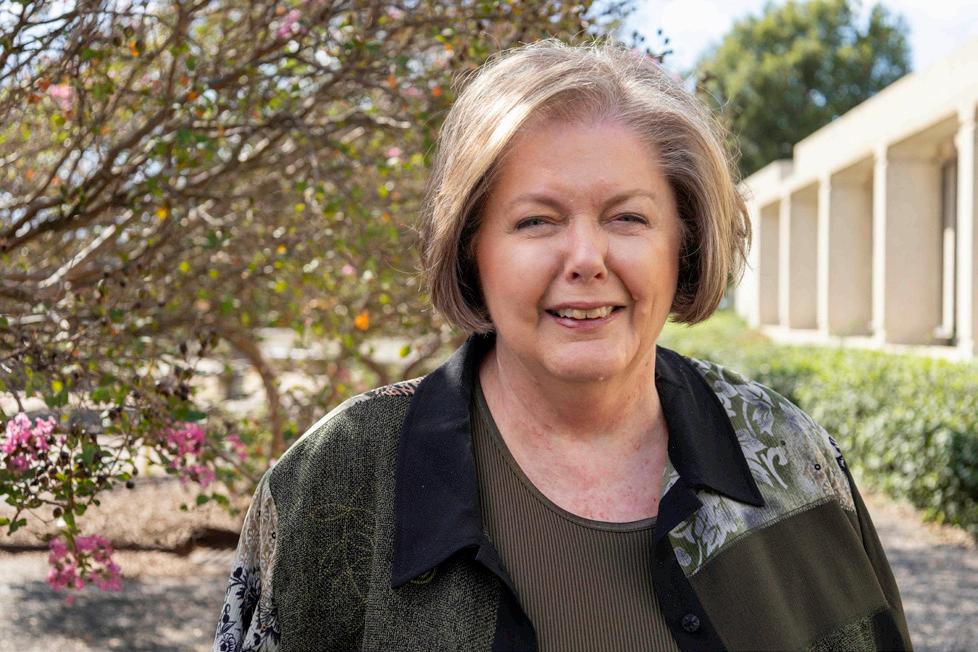
SHEILA WHITED JONESBORO RICE DIVISION
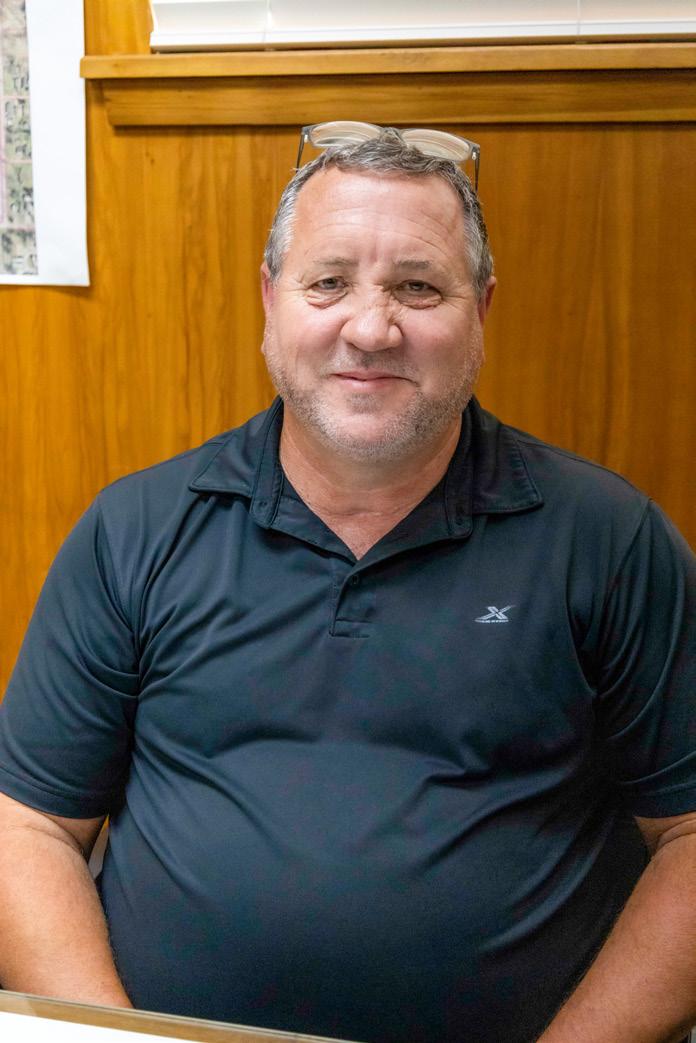
MIKE SULLIVAN STUTTGART RICE DIVISION
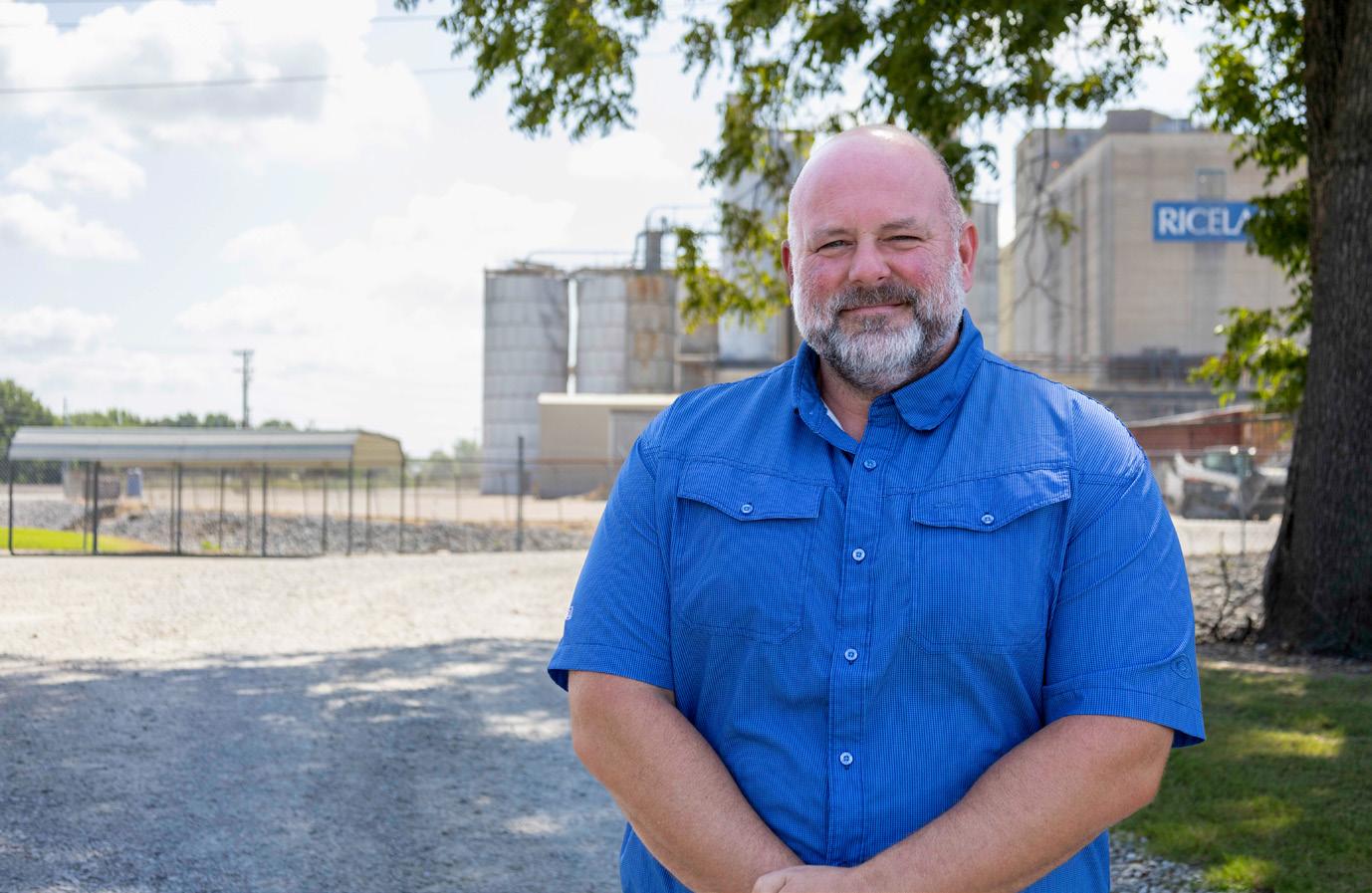
EDDIE EDWARDS JONESBORO RICE DIVISION
MARTHA FRIZZELL HEADQUARTERS, R&T, T&E

HILL WALDENBURG RICE DIVISION
